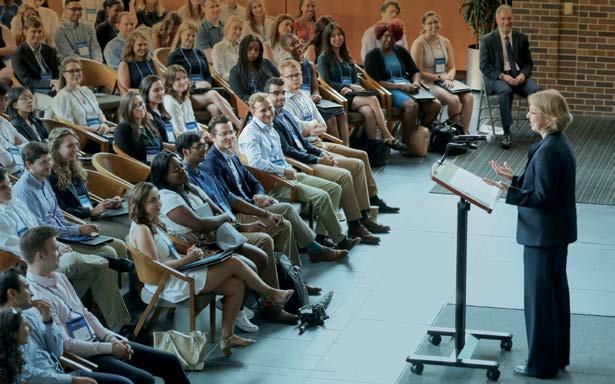


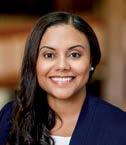





















Our new faculty are an impressive group — innovative thinkers, brilliant writers, seasoned practitioners, and passionate educators. They will have a tremendous impact on this law school for many years to come and I couldn’t be more thrilled to welcome them to Durham.
Duke Law SchooL’S facuLty are what makes this school so extraordinary, from the exceptionally high quality of their classroom teaching and the pathbreaking research and scholarship they publish to the challenging training they provide students through clinics and other opportunities for experiential learning. Indeed, many of you tell me about the significant impact your Duke Law professors had on your lives as teachers, mentors, and friends. that’s why I put faculty excellence at the top of my agenda as dean. Maintaining the excellence for which we are known requires supporting the wonderful professors who have built their careers here while also recruiting new faculty who bring fresh expertise, experiences, and perspectives.
as this issue of Duke Law Magazine goes to press, we have just concluded our best recruiting season ever: a record 11 scholars and teachers are set to join us in the upcoming academic year. I think you’ll enjoy reading more about them, beginning on page 30. our new faculty are an impressive group — innovative thinkers, brilliant writers, seasoned practitioners, and passionate educators. their interests range widely across corporate, criminal, international, and environmental law, bankruptcy, health care, tax, judicial studies, and intellectual property. they will have a tremendous impact on this law school for many years to come and I couldn’t be more thrilled to welcome them to Durham.
a hiring year like this is a collaborative effort. we could not have done it without the leadership of the faculty, especially our appointments com-
mittees, who worked tirelessly to identify and interview impressive candidates from an astonishingly broad array of fields. for each new professor we have hired, our committee considered many, many more, identifying those who they thought would bring something truly special to our community.
we also can’t do it without our alumni. Supporting faculty excellence through philanthropic giving is one of the most important things you can do for Duke Law. there’s no better example than Rick horvitz ’78 and erica hartman-horvitz, whose recent gift endowing the Richard a horvitz Program in constitutional & Public Law will help us continue to recruit and retain the best scholars in this critical field (page 4).
our community is still grieving the loss of one of those great constitutional law scholars, walter Dellinger, who died feb. 16 (page 26). walter embodied the excellence of the Duke Law faculty for more than 50 years, and his extraordinary career in the law, legal education, and public service will forever be associated with this institution. But it was walter’s caring, optimism, and zest for life that left the greatest mark. I miss him dearly, as I know so many of his faculty and staff colleagues and former students do, too.
I was honored in april to be reappointed for a second five-year term as dean, beginning July 1, 2023. I am looking forward to continuing to lead this wonderful community and building on the great momentum that our faculty, staff, students, and alumni are creating every day. thank you for your continued friendship and support.

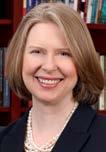 James B. Duke and Benjamin N. Duke Dean of the School of Law and Distinguished Professor of Law
James B. Duke and Benjamin N. Duke Dean of the School of Law and Distinguished Professor of Law

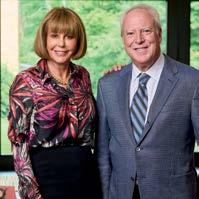

















KeRRy aBRaMS, the James B. Duke and Benjamin N. Duke Dean of the School of Law and Distinguished Professor of Law, has been reappointed to another five-year term as dean through June 30, 2028.
Duke university President Vincent Price and Provost Sally kornbluth announced abrams’ reappointment on april 8, following the recommendation of a review committee chaired by Georg Vanberg, the ernestine friedl Distinguished Professor of Political Science in trinity college.
a nationally recognized scholar of immigration, citizenship, family, and constitutional law who has served as dean since 2018, abrams has diversified the faculty and student body, overseen an expansion of the school’s support for public interest law, and secured record amounts of financial support for scholarships, legal clinics, and other priorities.
“kerry is an impressive leader with an exciting vision for the future of Duke Law, and I am very happy to have the opportunity to continue to work with her,” kornbluth said. “She has led the school through the many challenges of the pan-
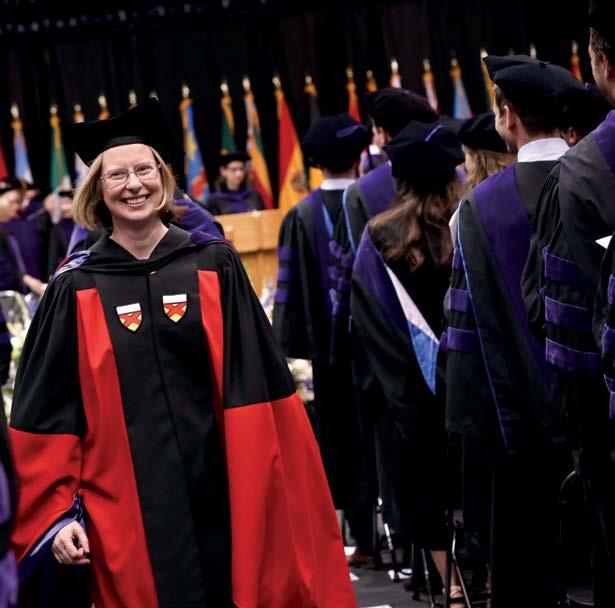
is reappointedIdeas, achievements, and events from around Duke Law School
demic while also successfully advancing faculty and student recruitment, faculty scholarship, and clinical legal education.”
under abrams’ leadership, Duke Law has welcomed the most diverse entering classes in its history, including four consecutive years where the majority of the incoming JD class is comprised of women, a first for the Law School. the school has made significant hires of both entry-level and mid-career faculty as well, and has invested in efforts to foster an inclusive environment for students, faculty, and staff. abrams has also overseen substantial investments in the school’s clinical program, including the launch of the Immigrant Rights clinic and the new criminal Defense clinic. (Read more, page 6.)
“kerry’s commitments to fostering an inclusive law community and innovating in legal education and research are building on the Law School’s established strengths to ensure continued success,” Price said. “under kerry’s leadership, Duke Law is very well positioned for the future.”
abrams has undertaken multiple initiatives to support students who seek careers in public interest and government service, establishing two post-graduate fellowships to help students pursue public interest careers and overseeing the growth of the certificate in Public Interest and Public Service. Duke Law has also launched an interdisciplinary research center, the wilson center for Science and Justice, focused on criminal justice reform.
“kerry has been a strong and proactive leader committed to building faculty excellence in a variety of ways, including through a diversity of scholarly methodologies, viewpoints, and backgrounds,” said Lanty L. Smith ’67 Professor of Law Joseph Blocher, who was a member of the review committee. “She not only navigated the pandemic, but guided the Law School through a time that saw threats to the rule of law and also new demands and opportunities for lawyers to address social injustice. and she’s done it all while maintaining Duke’s traditional commitment to training students for the practice of law in a demanding and fast-changing world.”
added Board of Visitors chair Porter Durham ’85: “kerry is truly a dean for the entire Duke Law School. She has a keen understanding of how best to educate and support our students, hold up and celebrate our faculty, and acknowledge and honor

the contributions of our many alumni. we are extremely fortunate to have her stewardship of our school for another five years.”
abrams came to Duke following 13 years on the law faculty of the university of Virginia, where she also served as vice provost for faculty affairs from 2014 until 2018. She is well known for her scholarly writing on family-based migration, the legal regulation of immigrant families, and the history of immigration law.
She earned a bachelor of arts degree in english literature with highest honors from Swarthmore college, and graduated with distinction from Stanford Law School, where she was president of the Moot court Board and the co-chair of women of Stanford Law. She is a member of the New york State Bar, the united States Supreme court Bar, and the american Law Institute.
Meha Shah JD/LLM ’94, president of the Duke Law alumni association Board, praised abrams’ engagement with alumni on a range of challenging issues. “She has tackled everything from online instruction and virtual post-graduate employment to enrollment of international students unable to travel to the united States, all at a time in which it was exceptionally difficult to build community,” said Shah. “the board has also seen her commitment to advancing participation in public interest work and to inclusive law school education and teaching. we look forward to continuing to work with her.” d
“
kerry is truly a dean for the entire Duke l aw school. she has a keen understanding of how best to educate and support our students, hold up and celebrate our faculty, and acknowledge and honor the contributions of our many alumni.”
— Board of Visitors Chair Porter Durham ’85
Duke uNIVeRSIty haS ReceIVeD a $5.46 million gift from Rick horvitz ’78 and his wife erica hartman-horvitz to permanently endow a Duke Law School program devoted to constitutional and public law.
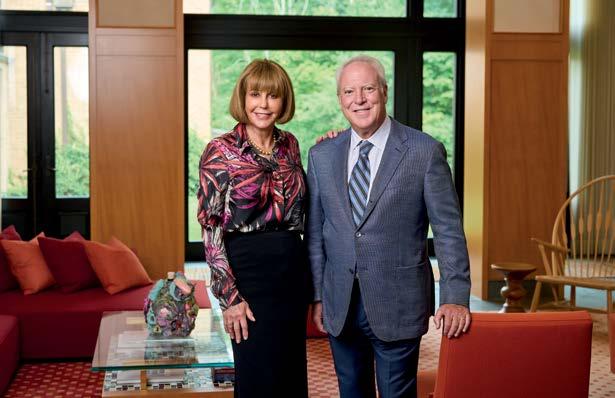
the Program in Public Law, which horvitz has supported since it was established at Duke Law in 1998, has been renamed the Richard a horvitz Program in constitutional & Public Law.
the gift brings horvitz’s cumulative donations to the program to more than $10.4 million and his lifetime support of the Law School to now more than $15 million.
“we are so grateful to Rick horvitz and erica hartman-horvitz for this transformational support, which will help Duke continue to offer one of the preeminent constitutional law programs in the nation,” said Duke university President Vincent Price. “Building on the long history of trailblazing public law initiatives at Duke, the horvitz Program will bring leading scholars to our campus and prepare our law students for careers in the public arena.”
the horvitz Program in constitutional & Public Law has a mission to promote better understanding of our nation’s public insti-
tutions, the constitutional framework in which they function, and the principles and laws that apply to the work of public officials. Its activities have included hosting visits to the Law School by Supreme court justices, convening conferences for scholars, practitioners, and public officials on current issues in constitutional and public law, and presenting lunchtime talks for students by leading figures from government, private practice, and the media.
horvitz said he wanted to ensure that the program could continue to promote scholarship in constitutional law, support faculty and students, and showcase the Law School to the legal profession. he hopes that maintaining funding for faculty research and scholarship in the field will help the Law School continue to recruit “preeminent constitutional and public law faculty.”
“I thought it was time to endow the gift so that I could know that the program would continue forever,” said horvitz, who is chairman of investment firm Moreland Management co. in cleveland.
“I always felt that constitutional law was of interest even if you’re not a lawyer, even if you don’t practice law. constitutional law and public law are what differentiate our country from the rest of
the world, particularly some of the autocratic regimes where you see what the lack of a meaningful constitution means for the people of the country.”
kerry abrams, the James B. Duke and Benjamin N. Duke Dean of the School of Law, said the gift would ensure the program remains a center of critical inquiry and open debate.
“the horvitz Program in constitutional & Public Law will continue to be a model of how the legal academy can facilitate dialogue on vital issues facing our democracy,” abrams said. “I am deeply grateful to Rick and erica for endowing this important program and being such stalwart and generous supporters of Duke Law School for so many years.”
horvitz, who is an honorary member of the Law School’s Board of Visitors, cited late Professors william Van alstyne and walter Dellinger, both legendary constitutional law scholars and teachers, as inspirations for his support of the Law School. he also credited Deans abrams, Pamela B. Gann, katharine t Bartlett, and David f. Levi as well as Stanley and elizabeth Star, longtime friends and major donors to the Law School, whose gifts include scholarships, professorships, and the Star commons.
“I encouraged them, they encouraged me, and we encouraged each other to try to do what we could to help make the Law School the best it could be,” he said.
horvitz has made previous gifts to help establish the fund for faculty excellence, endow a professorship currently held by Professor Matthew D. adler, endow a scholarship, provide fellowships to support students whose summer positions are unpaid, and create “Marcy’s Garden,” the lawn and garden area along the front of Duke Law School named for his late first wife.
The Duke eNDowMeNt has given a $10 million award to Duke university to create new financial aid opportunities in the Law School and help remove economic barriers for students to study law and launch their careers. the challenge grant will provide matching funds for endowments supporting scholarships, summer and post-graduate public interest fellowships, and loan repayment assistance.
“James B. Duke’s original vision for Duke university included the training of lawyers and the endowment is delighted to support this continuing tradition,” said Minor Shaw, chair of the Board of trustees at the Duke endowment.
the grant will help the Law School continue to attract a diverse student body and enable more students and recent graduates to pursue their interest in public service, said Duke university President Vincent Price.
“I am deeply grateful for this transformational grant, which will prepare law students for careers that can uplift our region and the world,” Price said. “It will advance the shared priorities that have guided our partnership with the Duke endowment for nearly a hundred years.”
In addition to augmenting scholarship support, the award will leverage endowments to help relieve the burden of loan repayment and create summer and post-graduate fellowships covering salary, benefits, or stipends for public interest work. while interest in such work has risen among law students at Duke and nationwide, internships are often unpaid, public interest jobs can be more challenging to secure, and entry-level salaries typically are much lower than those in the private sector.
“Duke Law is deeply committed to meeting the financial needs of our students who come from diverse social and economic backgrounds, as well as helping to meet the great need for public interest lawyers,” said James B. Duke and Benjamin N. Duke Dean kerry abrams.
“this grant from the Duke endowment will catalyze investment in legal training that will help students prepare to address pressing needs. we are profoundly thankful.” for arturo Nava ’22, a first-generation college graduate, a donor-supported scholarship opened the door to a Duke Law education. During law school he had the opportunity to work for the Mexican american Legal Defense and educational fund, the Brennan center for Justice, and the civil Justice clinic, where he assisted clients in cases involving housing, public benefits, domestic violence, and other issues. the opportunity to work in the clinic was what initially drew him to Duke.
Donor support also made it possible for Mary Beth Reed ’21, to begin her career in public service. Reed was the inaugural recipient of a year-long fellowship that supported her work at a Durham organization providing legal services to children and survivors of human trafficking and other traumas. She is working with undocumented children who have been abandoned, abused, or neglected to find a caregiver and obtain legal status, and with local organizations to equip them to identify children eligible for immigration relief, including legal and other services.
“these opportunities will attract to Duke an even greater number of students who are committed to the public good,” said william hoye, the Law School’s associate dean for admissions and Student affairs. “they will have a significant impact on the lives of individuals, give back to their communities, further good and effective government, and serve legal organizations that help transform our society.”
Based in charlotte and established in 1924 by industrialist and philanthropist James B. Duke, the Duke endowment is a private foundation that strengthens communities in North carolina and South carolina by nurturing children, promoting health, educating minds, and enriching spirits. Since its founding, it has distributed more than $4 billion in grants. the endowment shares a name with Duke university and Duke energy, but all are separate organizations.d
d
“The horvitz Program in constitutional & Public l aw will continue to be a model of how the legal academy can facilitate dialogue on vital issues facing our democracy.”
— Dean Kerry Abrams
$10 million challenge grant from The Duke Endowment supports financial aid, public interest fellowships
Duke Law SchooL IS LauNchING a clinic focused on criminal defense in January.

funded by a $2.5 million commitment from the Barton family foundation, the criminal Defense clinic will train students in the practice of criminal representation and equip them to be leaders in ending mass incarceration and racial injustice.
“ending racialized mass incarceration will require investments and efforts across the nation and in many different types of institutions. Duke university and Duke Law School provide the ideal home for an important part of this undertaking,” said James B. Duke and Benjamin N. Duke Dean kerry abrams.
“with the right policy and litigation strategies, supported by research in disciplines across the university, we can begin to turn the tide on the pernicious effect of racism in our criminal legal system. we are grateful to the Barton family foundation for so generously supporting the training of future justice leaders.”
the Seattle-based Barton family foundation, begun in 2004 by Sarah and Richard Barton, focuses its support on organizations working to reform the criminal justice system in the united States and rectify societal inequities that lead to incarceration.
“america’s criminal legal system is broken,” the Bartons said in a statement. “Biased and discriminatory, it also begets racial, gender, and income disparities and breeds despair. our reliance on mass incarceration has not enhanced public safety but has weakened communities by separating families and undermining mental, physical, and economic well-being. we are pleased to support a new clinic at Duke Law that will leverage the resources of the university and train future leaders in the fight against injustice.”
the criminal defense clinic will be led by elana R. fogel, who most recently served as a federal public defender in San Diego, where she gained substantial experience teaching, training, and mentoring young lawyers. a graduate of Nyu Law School, fogel has also served as a public defender in Boston and a fellow in the
criminal Justice Policy Program at harvard. She has joined the faculty as a clinical professor. (Read more, page 42.)

fogel will supervise students in providing pro bono legal representation to indigent clients in local criminal cases. Students also will be trained in scientific literacy and data analysis so they can effectively incorporate research into both their representation of individuals and policy advocacy.
the clinic, the 12th at Duke Law, promises to increase learning and practice opportunities for students interested in working in the criminal legal system and build on the Law School’s existing strengths in this area, including the wilson center for Science and Justice, the wrongful convictions clinic, the center for criminal Justice and Professional Responsibility, the appellate Litigation clinic, and interdisciplinary collaborations with faculty and students throughout the university.
Such skills are especially important for criminal lawyers given the need to respond to disparities, including racial disparities, in outcomes in criminal cases, the high rate of mental health and substance abuse issues among the incarcerated population, and the need to understand and respond to forensic evidence presented in criminal cases, said L. Neil williams, Jr. Professor of Law Brandon Garrett, director of the wilson center.
“Research and policy work alone will not solve the problem of racialized mass incarceration,” Garrett said. “however, working with data, science, and research is a critical part of being an effective advocate. we aspire to combine our established success in community-engaged research with experiential education that will enable law students and graduates to pilot new lawyering strategies and bring their skills and knowledge to new communities.” d
ANoRth caRoLINa MaN sentenced to life without parole as a juvenile was released from prison on March 24 after adelyn curran ’22, working with clinical Professor Jamie Lau ’09, successfully petitioned the governor for a commutation.
on March 10, Gov. Roy cooper issued grants of executive clemency for three men who were sentenced to 20 or more years for crimes committed as juveniles, including anthony willis. curran, a member of Duke Law’s pro bono Nc clemency Project, prepared the materials for willis’s clemency petition. willis received a sentence of life in prison without parole in 1997 for killing a fayetteville store owner when he was 16.
two weeks after cooper announced the commutations, willis walked out of Gaston correctional center in Dallas, N.c., where he had spent 25 years. arms upraised and flanked by a beaming curran and Lau, he walked away from the prison gates and into a waiting crowd of family and friends.
Lau, who leads the Nc clemency Project, said that willis had earned his second chance and was prepared to make the most of it.
“[the governor’s] decision recognizes that the interests of justice include mercy for people who have demonstrated rehabilitation while incarcerated,” he said.
willis had worked diligently to change from the person he was at 16, earning bachelor’s and master’s degrees while incarcerated and learning sign language to assist an incarcerated deaf person, Lau said, noting that more than 30 people attested to “the kind and humble person” he has become.
added curran: “During his 25 years of incarceration Mr. willis has made an impact on every person he’s met, at every prison he’s been to, and he has built dozens and dozens of close friendships. he is an extraordinary person and I feel lucky to know him.”
another of the three commutations, the first in North carolina since 2009, had a Duke Law connection; Joshua Mckay, who also was released on March 24, was represented by Johanna Jennings ’11, founder and director of the Decarceration Project, a Durham-based nonprofit.
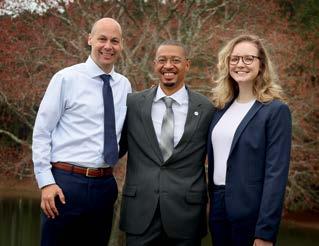
During his 20 years in prison Mckay, incarcerated at 17, completed two apprenticeships to become a journeyman carpenter and welder and earned the right to live in minimum custody and participate in work release. Nine of his supervisors wrote letters in support of his clemency petition.
willis’s release is curran’s second successful effort on behalf of a client facing a life sentence, and the fifth release facilitated by student members of the Nc clemency Project, which Lau launched in January 2020 to identify people who have served a substantial amount of their sentence and whose demonstrable rehabilitation and lack of infractions in prison qualify them for clemency. the project has since become a formal student group under his supervision, focusing on cases in which individuals were tried and sentenced in adult criminal court for acts committed before they were 18.
Student volunteers interview the clemency candidates, prison officials, family members, and other supporters. they then prepare memos on each case which are reviewed by attorneys affiliated with the Law School’s center for criminal Justice and Professional Responsibility and then turned into petitions submitted to cooper’s clemency office.
willis’s release is the first commutation the project has secured from the governor, while the first four involved other pathways to release. curran and kate Goldberg ’22 helped calrutha Johnson gain release in 2020 by arguing that he had not had a single infraction during his 31-year incarceration, had earned a bachelor’s degree, and was particularly vulnerable to severe illness from coVID-19 due to a pre-existing medical condition and his inability to take essential precautionary measures in prison.
In another case, edward Scott was released in June 2020 after the state reviewed materials prepared by angela Sbano ’22 that documented Scott’s successful completion of a GeD and multiple self-help programs over 29 years in prison. his petition was referred to the parole commission, which approved his accelerated release. another client gained release with the assistance of Michael chen ’21.
the Nc clemency Project received the North carolina Bar association’s 2022 Law Student Group Pro Bono Service award. d
The nc clemency Project received the north carolina bar a ssociation’s 2022 l aw s tudent g roup Pro bono service award.
IN ADDITIoN To THEIR DIRECT ASSISTANCE to clients seeking asylum and relief from deportation, student attorneys in the Immigrant Rights Clinic have been building resources and support for asylum-seekers who cannot pay for an attorney or secure help from nonprofits. They are supervised in these efforts by Clinical Professor Kate Evans and Senior Lecturing Fellow Shane Ellison, the clinic’s director and supervising attorney, respectively.
Earlier this year, third-year students Kate Weaver, Luis Basurto Villanueva, and Andrea Guzman launched a website and toolkit to provide guidance to asylum seekers following a federal settlement in Mendez Rojas v. Wolf. The resource was designed to aid parties assisting asylum-seekers from any country and pro se claimants themselves.
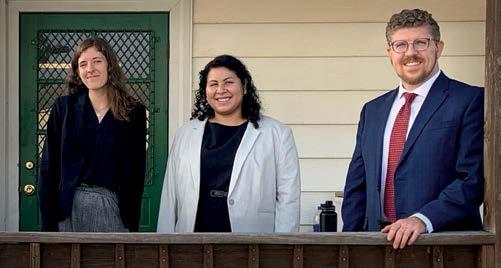
Guzman and Weaver presented the electronic toolkit in a webinar hosted by the American Immigration Council in March that attracted nearly 450 participants nationwide, making it one of the organization’s best attended sessions ever.
Twenty-four Duke Law students teamed up with students from UNC’s School of Law and the Charlotte Center for Legal Advocacy to volunteer their time and provide the first workshop in the state for asylum-seekers who do not have attorneys and are facing deportation in immigration court. The pro se workshop assisted 20 families in filing their asylum applications in order to secure their rights in immigration court.
Student have also developed a toolkit of resources to aid pro bono student volunteers and attorneys working with Afghan evacuees who arrived in North Carolina after the mass airlift from
Kabul last August. To date, the state has accepted about 1,200 evacuees, many of whom require assistance with the complex process of pursuing long-term immigration relief, including screening for asylum eligibility.
The initiative emerged from the work of Weaver and Mary Chandler Beam ’22 in guiding a client through the process of seeking a Special Immigrant Visa through a program that grants permanent residence to people who worked for the U.S. government abroad (his visa was approved in March) and preparing his application for asylum.
The toolkit includes a draft legal asylum brief and an indexed library of relevant country conditions and human rights reports. It was used by 32 first-year law student volunteers with the Duke Afghan Asylum Project who assisted 10 Afghan families seeking asylum.
“These asylum-seekers and their families risked so much to help Americans in Afghanistan, so I am glad that we are now able to make their immigration process easier as part of our duty to them,” said Guzman, who was the lead writer for the template legal cover letter. “I hope that this work can be shared with other law students and attorneys across the nation so that many more Afghan refugees can have legal assistance in applying for asylum.”
Launched in 2020 at Duke Law with a gift from the Ting Tsung and Wei Fong Chao Foundation, the Immigrant Rights Clinic recently received an additional commitment from the foundation that will support its operations for the next five years. d
L-R: Kate Weaver ’22, Andrea Guzman ’22, and Immigrant Rights Clinic Supervising Attorney Shane EllisonIN FEBRUARy, the International Human Rights Clinic launched an interactive website that tracks international responses to the CoVID-19 pandemic that advance civil and political, equality, governance, and socioeconomic rights.
The index, titled “Catalyzing Rights: Index of Advances During CoVID-19,” contains more than 200 measures across 20 categories of human rights ranging from digital rights and fiscal policy responses to racial and gender equality. It serves as both an accountability tool and a way to help advance a more rights-centric approach to the pandemic and beyond, said Clinical Professor of Law Aya Fujimura-Fanselow, the clinic’s supervising attorney.
“While the pandemic has both uncovered and intensified human rights violations, governments have also put into place measures that not only protect but even promote and advance rights,” she said. “By identifying such measures, our tracker will help hold governments to account, enable a re-imagining of what is possible, and equip human rights advocates with additional strategies to achieve these goals.”
More than 20 clinic students and summer interns contributed to the project, identifying, researching, and analyzing hundreds of measures, extensively reviewing a wide range of human rights laws, and interviewing representatives of civil society groups. Rights addressed include civil and political rights (freedom of association and assembly, freedom of expression, technology and digital rights); equality (children, indigenous peoples, LGBTQI+, migration, asylum, and trafficking, persons with disabilities, racial and ethnic minorities, reproductive rights, and violence against women); governance (economic and fiscal policy responses, environmental justice, rule of law, voting and elections); and socioeconomic rights (education, employment, health, housing, water, and sanitation).
To determine which measures to include in the tracker, the clinic engaged in a rigorous process of reviewing international human rights treaties and guidance from human rights bodies, regional and international institutions, and NGos focused on the protection and fulfillment of rights during the pandemic. Measures were included if, on their face, they contain at least one element tracking international human rights norms.
“The tracker fills an important gap in current human rights analyses of the pandemic,” said Clinical Professor Jayne Huckerby, the clinic’s director. “By developing and applying comprehensive criteria for what constitutes progress in rights’ protections, it provides concrete and detailed examples of where governments are moving in the right direction, even if they are not yet fully complying with all of their obligations.”
Said Gaby Jassir JD/LLM ’22, who was involved in the project from inception to launch: “During a time in which we were dealing with so much uncertainty, imagining a world where policies can be used to further the field of human rights is very inspiring. The global scope of the project, including centering within our research methodology strategies to identify measures from countries whose successful policies tend to receive less attention, was extremely fulfilling as well.”
The clinic will continue to add measures to the index through user submissions and will include in-depth analytical briefing papers on how certain rights can be advanced rather than undermined during a pandemic. d
N DECEMBER, North Carolina Gov. Roy Cooper granted a pardon of innocence to Wrongful Convictions Clinic client Howard Dudley, who spent nearly 24 years in prison rather than take a plea or parole deal and admit to a crime he didn’t commit. The pardon marked the fourth facilitated by the clinic over the course of a year.
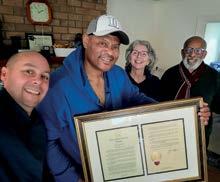
Dudley, a Kinston, N.C., resident, was convicted in 1992 of sexually assaulting his then 9-year-old daughter, who soon afterward recanted her claim of abuse. Sentenced to life in prison, he was released in March 2016 by a superior court judge who called Dudley’s conviction “an injustice.” The judge cited legal flaws in his trial that included an inexperienced defense attorney who never filed a motion or consulted an expert witness, according to The News & Observer, which published a four-part series on the case in 2005 that led to its referral to the Wrongful Convictions Clinic.
Charles S. Rhyne Clinical Professor Emerita Theresa Newman ’88, who led the clinic team that represented Dudley, and Supervising Attorney Jamie T. Lau ’09, notified Dudley of his pardon, a prerequisite to his subsequent and successful application for compensation from the state for his wrongful conviction and incarceration. Dudley received the maximum amount allowed by North Carolina law, $750,000, as did three other clinic clients:
» Ronnie Long, for whom Lau was lead counsel, who was exonerated in August 2020 after spending 44 years in prison and received a pardon of innocence in December 2020;
» Dontae Sharpe, for whom Newman served as lead counsel, who was exonerated in August 2019 after spending 24 years in prison and received a pardon of innocence in November 2021; and
» Charles Ray Finch, who was exonerated in May 2019 after spending more than 40 years in prison and who received a pardon of innocence in June of 2021. John S. Bradway Professor of the Practice of Law James E. Coleman, Jr., the clinic’s director, took up Finch’s case before the clinic was established in 2007 and led a 15-year legal battle on his behalf. Finch died on Jan. 24 at the age of 83. d
Professors Jamie Lau, Theresa Newman, and James Coleman framed and delivered Howard Dudley's pardon to him at his home.— Professor brandon garrett, referring to the “blizzard of error” he found in reviewing the forensic testimony in hundreds of wrongful convictions cases. (The Atlantic, May 12, 2022)
ignores the plumbing of the financial markets until periods of crisis or uncertainty. And that’s when we find out that the banks’ back-office functions are essential, but somewhat antiquated and fallible, particularly in the bond market.”


— Professor elisabeth de Fontenay, noting the scrutiny paid to Russia’s wartime payment on dollar-denominated bonds.
(Bloomberg, March 22, 2022)
“Everyone
“There are so many different ways that forensics can go wrong. It’s about the whole forensics enterprise and how poorly we regulate it.”
“Not all African Americans have the same views. There are differing trajectories along their career and personal paths that will lead to different experiences. That’s why more diversity — more representation — is always preferred, because then you’re going to get the full array of perspectives at the table.”
— Professor Trina Jones, discussing the implications of having two Black justices on the Supreme Court for the first time, Justice Clarence Thomas and the recently confirmed Ketanji Brown Jackson. (USA Toda y, April 8, 2022)
“This major questions doctrine is being treated at least by advocates as a distinct limitation on Congress’ delegations to agencies — not only an exception to deference to agencies for ambiguity but even perhaps where the statute is clear.”
— Professor Jonathan wiener, addressing a key issue before the Supreme Court in West Virginia v. EPA, a case stemming from challenges to the Environmental Protection Agency’s efforts to regulate vehicle emissions and the social cost of carbon. (Greenwire, April 11, 2022)
“What the leak and the draft have in common is a disregard for the legal and public legitimacy of the court — and a failure to register that the justices and their clerks are temporary occupants of an institution that is greater than themselves.”
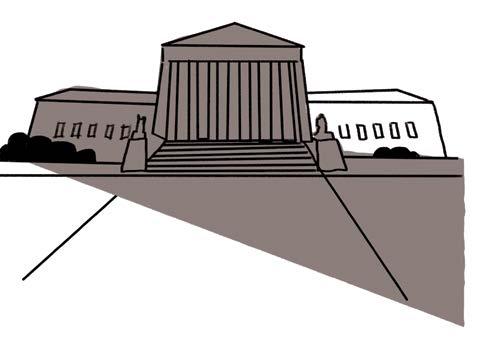
— Professor neil siegel, commenting on the leak of a draft Supreme Court opinion that would overturn Roe v. Wade. (McClatchy News Service, May 3, 2022)

amanda Joos ’23 received Duke University’s 2022 Algernon Sydney Sullivan Award at an April 22 ceremony. She was one of three recipients of the award that recognizes outstanding commitment to service.
Joos has dedicated more than 400 pro bono hours to the Civil Justice Clinic, Veterans Assistance Project, Fair Chance Project, and the Health Care Planning Project. She has also served as the coordinator for the Civil Justice Clinic’s pop-up Eviction Advice Clinic held weekly at the Durham County Courthouse for residents facing eviction actions. (Read more, page 64.)
“While many students volunteer with one of roughly 13 student-led projects or a handful of independent projects, it is rare for students to even come close to Amanda’s level of volunteerism,” said Stella Boswell, assistant dean of Public Interest & Pro Bono.
Joos, who toured as an opera singer prior to entering law school, has been on the editorial staff of Law & Contemporary Problems as well as the Moot Court Board and the board of the Transactional Law Society. During her 1L summer she interned with the National Labor Relations Board in representation appeals in addition to working with the Civil Justice Clinic.

Joos also received the Duke Bar Association’s 2022 Richard Lin Service Above Self Award, which is given to a student who embodies the qualities of optimism, integrity, humility, and generosity of time and energy. one of her nominators wrote, “Her heart for service influences every aspect of her life, from her involvement in pro bono to her enthusiasm for her classmates. She believes in doing what is right, and she is a role model to all who meet her.” d
alshaymaa alharbi llm ’21 began a year-long fellowship with the Permanent Court of Arbitration (PCA) in The Hague, Netherlands, in January. Alharbi is the first LLM graduate from Duke to receive the fellowship with PCA, the world’s oldest institution for international dispute resolution. According to the PCA’s website, fellowship recipients gain experience in the operation of its International Bureau, with an emphasis on both the practical and legal aspects of international arbitration. Fellows are known as assistant legal counsel in their role. Jabrina Robinson, director of LLM career development and outreach, said that Alharbi “is known for her dedication and giving 110% to everything she pursues. It is not a surprise that she was selected for this prestigious fellowship program.” During her LLM Alharbi worked on the Duke Law Journal and volunteered in the Community Enterprise Clinic. She also served as a teaching assistant at the Summer Institute on Law, Language, and Culture and as a private equity extern at DUMAC.
Alharbi worked as legal counsel at Dr. Mohammed Al-Muhanna and Partners in Saudi Arabia after graduating from Princess Nourah Bint Abdulrahman University in Riyadh in 2015. During university she started a nonprofit organization, “Support your Sibling,” to provide free legal assistance to indigent clients. The first program of its kind in Saudi Arabia, it now has nearly 500 volunteers and four advisory committees. d

aliyah salame ’22 was the recipient, in April, of the Law School’s Keller Fellowship, which will fund her work for a year at Legal Services of Eastern Missouri in St. Louis.
Legal Services of Eastern Missouri, which serves 21 counties, offers free legal assistance to low-income clients on a range of civil matters and recently expanded its services to address the specific needs of immigrant and refugee families, veterans, community economic development, and small-business and minority entrepreneurs, according to its website.
Salame, a double Duke graduate who plans to craft a long-term public interest career, prioritized practical experience during law school. In addition to spending both her 1L and 2L summers at public interest organizations, she contributed more than 350 hours of work over three semesters in the Duke Law clinics.

In the Children’s Law Clinic, Salame successfully advocated on behalf of low-income students with various disabilities for specific assistance in their schools. In the Health Justice Clinic she worked toward proving the eligibility of two clients with mental and physical disabilities for disability benefits, helped a transgender asylum-seeking client change her gender marker and her name on her legal documents, and wrote estateplanning documents for clients who had long-term health difficulties. And in the Immigrant Rights Clinic, Salame co-wrote a Ninth Circuit brief on behalf of a client who was facing deportation and interviewed and co-wrote an asylum declaration for the transgender client she had helped in the Health Justice Clinic.
Members of the Class of 1987 created the fellowship in honor of their classmate, John Keller, who has spent his career with Legal Aid of North Carolina. It was first awarded in 2021. d
The following recent graduates are entering or have recently entered federal government service through acceptance to highly competitive Legal Honors and similar programs, many of them after completing judicial clerkships.
» matt eible ’19 Department of State
» andrew lewis ’19 Federal Trade Commission
» eileen ulate ’19
Civil Rights Division, Department of Justice
» David gardner ’20 Civil Rights Division, Department of Justice
» logan Johnson ’20 Departmental Appeals Board, Department of Health and Human Services
» maddy mumma ’20 Criminal Division, Department of Justice
» bridgette ekland ’21 Department of Agriculture (Presidential Management Fellows Program)
» lindsey martin ’21 Department of Labor (Presidential Management Fellows Program)
» christopher meadows ’21 Federal Public Defenders office, Miami (fellowship)
» Jordan ryan ’21
Drug Enforcement Administration office of Chief Counsel, Department of Justice
» anderson vereyken ’21 National Labor Relations Board
» kayla Fries ’22 Federal Bureau of Investigation, Department of Justice
» will stupski ’22 Government Accountability office
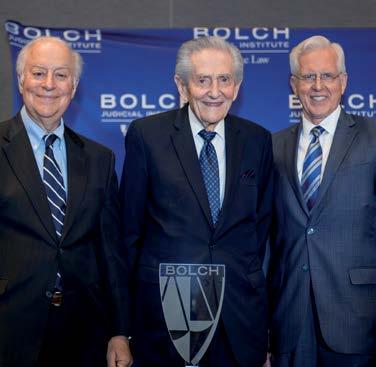
ChIef JuDGe
eMeRItuSJ. cLIffoRD waLLace of the u.S. court of appeals for the Ninth circuit, received the 2022 Bolch Prize for the Rule of Law during a ceremony in San Diego on March 18.
Several distinguished speakers praised wallace’s efforts to improve the administration of justice in his circuit and in the federal courts over more than 50 years on the federal bench, as well as his service to his community and church through a wide variety of leadership roles. they highlighted his commitment to the rule of law and the administration of justice globally, noting that through travel to more than 70 countries, often at his own expense, he has worked with judges and governments to strengthen judicial processes, improve court structures, and develop innovative solutions to logistical and legal challenges.
wallace said he has focused his life’s work on strengthening the rule of law because it offers “the hope of fundamental fairness, distinguished from a rule developed by an individual such as a political executive or some other person in power.” But, he said, the rule of law cannot be effective in countries that do not have a separate, independent judicial system to enforce laws.
“however well-intentioned each country’s constitution and declarations may be, the judiciary must be strong enough to implement the rule of law. It was this realization that started me on the path 50 years ago, of strengthening judiciaries worldwide, so that the rule of law could be implemented. My five decades with this effort has taught me that we will never finish with this project. there will always be more to be done, in some country somewhere, to strengthen a judiciary, so the judiciary in turn can protect the rule of law.” d
JuDGe J. MIcheLLe chILDS MJS ’16 of the u.S. District court for the District of South carolina urged Duke Law School’s class of 2022 to trust their preparation and allow destiny to direct them in her convocation address May 7.
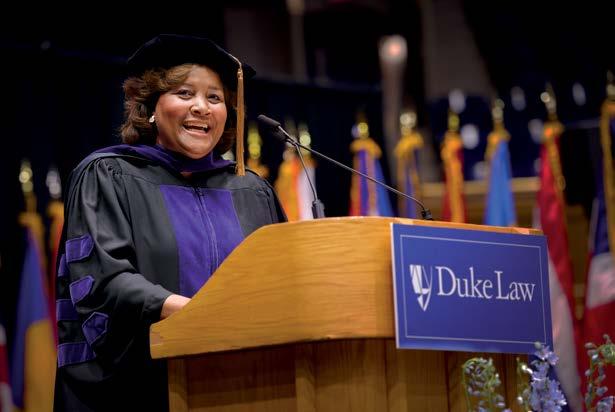
“Serve people, not just professional accomplishments,” childs said. “Step into your role for your community, your clients, your environment, and your nation. Do not shy away from opportunities, and know that when you are ready, they will find you. My task, always, and your task now, is to use your education, your skills, and your hope for the future, to ensure that when these doors open, you are prepared to walk through them and pull others through with you.”
the convocation ceremony in cameron Indoor Stadium honored 212 JD graduates, 19 of whom also earned a Master of Laws, or LLM, in international and comparative law, and seven of whom also received an LLM in law and entrepreneurship. Seven JD graduates also earned a graduate degree from another department or school at Duke university in addition to their JDs. twenty-four JD graduates received the Public Interest and Public Service Law certificate.
Sixty-two graduates of law schools in other countries received their LLM degree. two graduating students received the Doctor of Juridical Science (SJD), the highest degree in law. also recognized were five trial and appellate judges who received a Master of Laws in Judicial Studies (MJS) in 2020 but did not have an in-person ceremony.
“you have honed your powers of persuasion, problem-solving, empathy, and how, in Dr. king’s words, to bend the arc of history toward justice. Now it’s time to go out and exercise your power with care,” James B. Duke and Benjamin N. Duke Dean kerry abrams told the graduates in her opening remarks.
“as Duke Law alumni, you will have the opportunity to join the many graduates of this institution who use their power as lawyers to effect critical change in the world. you will have an obligation, wherever your career takes you, to serve your community and help those who are less fortunate, as so many of our alumni do. and you will have a responsibility to uphold the tenets and traditions of the legal profession and the rule of law for all people, even when doing so doesn’t serve your personal interests. this is what it means to be a lawyer, and it makes me so proud that you have all chosen to be one.”
“
s tep into your role for your community, your clients, your environment, and your nation. Do not shy away from opportunities, and know that when you are ready, they will find you.” — Judge J. Michelle Childs
childs told assembled graduates and guests that Duke Law’s Master of Judicial Studies Program had prepared her for the high-profile opportunities that recently have come her way. childs currently is awaiting confirmation to a seat on the u.S. court of appeals for the District of columbia circuit, for which she was nominated by President Joe Biden in January; her nomination was advanced by the Judiciary committee on May 26. She was also one of three judges the president considered this spring to replace retiring Justice Stephen Breyer on the u.S. Supreme court.
“the skills and knowledge instilled by this fine institution, and the treasured connections it allowed me to foster with faculty, colleagues, and new friends, undoubtedly prepared me to meet challenges of which I could only dream,” childs said. “when I finally had my confirmation hearing for my nomination to the D.c circuit before the u.S. Senate Judiciary committee last week, I knew no matter the question, no matter the level of scrutiny, a life’s worth of aspiration, preparation, and determination had trained me for that moment. you too, are ready for the most unimaginable and unexpected opportunities.”
Reflecting on the role of the courts and of lawyers, childs reminded the class that they will serve their profession not only as counselors and advocates but as
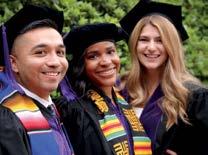
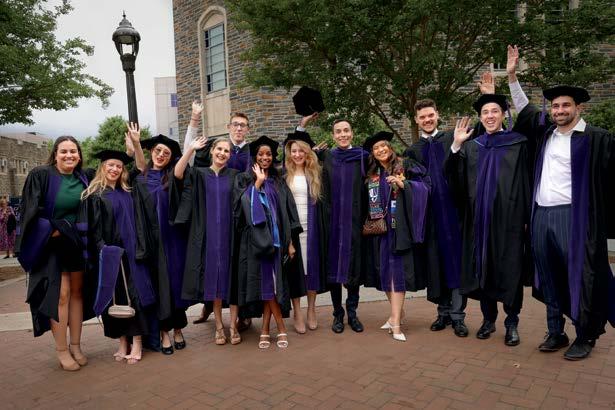
officers of the court who hold the practice and administration of law in trust, especially in times of conflict and strife.
“In these three short years, you have encountered and participated in legal debates surrounding the pandemic, challenges to civil rights laws and individual liberties, and witnessed the atrocities of a war. and as you prepare to meet the challenges of our time, elevate yourself to this promise of democracy,” childs said.
“But of course it has perils,” she continued. “you have to ensure the unpopular, the poor, and those on the margins are protected equally, just as those
“Uphold the rule of law, but fight the gaps in its application”
who are rich and powerful, and that all voices, yearning for justice, will be heard. whether you represent individuals, organizations, plaintiffs or defendants, this nation or its states, uphold the bedrock promise of the constitution, and enforce its guarantees for all. you uphold the rule of law, but you also have to fight the gaps in its application.”
a graduate of the university of South florida and the university of South carolina, where she earned a JD and a master’s degree, childs rose at Nexsen Pruet to become the first Black woman partner at a major law firm in South carolina and received gubernatorial appointments to the state’s Department of Labor, Licensing, and Regulation and worker’s compensation commission. In 2006 the South carolina legislature elected her to serve as an at-large circuit court judge and in late 2009, President Barack obama nominated childs to the u.S. district court. She was confirmed by the Senate in august 2010.
childs is president-elect of the federal Judges association and a member of the american Law Institute. She sits on the Leadership council of Duke Law School’s Bolch Judicial Institute. In april, she received the Duke Law alumni association’s charles S. Murphy award for achievement in civic Service honoring her commitment to the common good through service to the community.
childs closed her address by exhorting the graduates to remember they are part of the profession’s continuum, holding up judges and attorneys who display courage in the face of personal threats and Duke Law clinical professors and alumni who expand access to justice and serve as ethical prosecutors and zealous public defenders.
“these lawyers and judges represent the best of us,” she said. “commit to these principles and allow them to reach your work: Be courageous, play fair, display your honest character, for your reputation is always at stake.
“as you enter the practice of law, don’t place a premium on competition and self-advancement, but remember the shoulders upon which you stand, and recognize that sometimes your extraordinary contribution may be how you inspire someone else. I leave you with this quote from thurgood Marshall, who urged that ‘in recognizing the humanity of our fellow beings, we pay ourselves the highest tribute.’”
JD class speaker tranae felicien also asked her classmates to keep humanity first as they proceed in their careers.
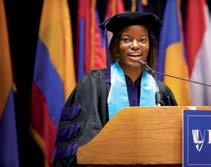
“In all that we do, let us remember the humanity of others and ourselves,” she said. “everything we do as attorneys will affect other people. So let us never let complacency, fear, the chasing of prestige, or any other paralyzing agent stop us from validating the humanity of others. even when people disappoint us, as we all have disappointed others at times, let us give compassion, grace, and mercy. those things are not separate from the pursuit of justice. they are intertwined.”
She urged them to use their powers for the betterment of systems and institutions, also quoting Justice Marshall on the constitution: “‘we the People no longer enslave, but the credit does not belong to the framers. It belongs to those who refused to acquiesce in outdated notions of “liberty,” “justice,” and “equality,” and who strived to better them.’”
arthur adler, who earned his law degree from université Paris II Panthéon-Sorbonne, delivered the LLM address. he recalled that the class was able to spend the fall semester with LLM students from the class of 2021, who started their program the previous January due to the pandemic. those students introduced the class to Durham and became mentors and friends, adler said, further expanding their global network.
“Never will we experience such a multicultural environment, where over 30 nationalities live together and bond,” he said. “we learned many new words in foreign languages, from arabic slang to famous Spanish interjections. we discovered and enjoyed each other’s cooking and traditions. Most importantly, we treasured hearing new opinions and ideas during our very lively conversations. this spirit of open-mindedness and acceptance is central to our program.”
During the convocation ceremony abrams presented the 2022 Justin Miller awards, given to JD graduates by their peers in the categories of leadership, integrity, citizenship, and intellectual curiosity, and one to an outstanding LLM student selected by classmates. the Justin Miller award recipients were:

» Leadership: emmy wydman and Meredith criner
» Integrity: adelyn curran
» citizenship: chloe Shostak
» Intellectual curiosity: Brendan clemente and olivia Daniels
» LLM award for Leadership and community
Participation: Laura Quick Lourenco de Lima. abrams closed the ceremony by wishing the class a fulfilling career in the law and urging them to return. “Please come back often and maintain a strong connection to your professors, your classmates, and the next generation of Duke Law students,” she said. “this is just the beginning of what we hope will be a long relationship with your loving alma mater.” d
“remember the humanity of others and ourselves”JD class speaker Tranae Felicien
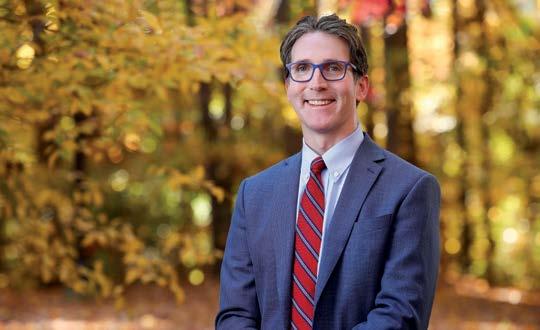
ARecoMMeNDatIoN by Professor Michael frakes to strategically add resources to the u.S. Patent and trademark office (Pto) is gaining traction among policymakers debating how to cut the cost of pharmaceutical drugs.
according to frakes, the a. kenneth Pye Professor of Law and professor of economics, investing just $20 million to give examiners more time to review applications for secondary patents on pharmaceutical drugs would reduce the number of invalid patents they approve, saving some $32 million in avoided litigation expenses and leading to several billion dollars per year in cost savings from the accelerated entry of generic drugs into the market.
frakes and Melissa wasserman make that recommendation in “Investing in ex ante Regulation: evidence from Pharmaceutical Patent examination,” forthcoming in the American Economic Journal: Economic Policy, in which they analyze the effect of time constraints on pharmaceutical patent reviews, particularly for secondary patents on peripheral drug features, and the costs of invalid patents caused by poor quality examinations. wasserman, frakes’ frequent collaborator on Pto scholarship, is the charles
By spending $20 million to give examiners 50% more time to review secondary drug patent applications, the Pto could avoid $32 million in administrative costs associated with downstream litigation, frakes and wasserman write in the working paper. further, they estimate that the aggregate accelerated entry of generics stemming from examiners’ increased scrutiny would result in consumer savings of between $2.53 and $5.28 billion per year from lower prices and increased access to drugs.
“of the areas where you probably would get more bang for the buck in investing in examiner resources, this is where the kind of invalid patents being issued could arguably do the most damage,” says frakes, a law and economics scholar and legal empiricist who works primarily on health law and innovation policy. “the patents are more valuable and therefore the bad ones can potentially do more harm. the returns can be huge by spending a little more and really scrutinizing these patents.”
the paper by frakes and wasserman is the latest in a body of empirical scholarship examining the determinants of decision-making within the Pto and patent system that reveals structural inefficiencies, time pressures, and perverse incentives within the agency.
their work has been cited by patent reform advocates and lawmakers who say the pharmaceutical industry exploits the weaknesses of the u.S. patent system to extend the patent life of brand name drugs and keep their monopolies by preventing lower-cost generics and biosimilars from entering the market.
those strategies include creating a “patent thicket” of secondary patents on minor features such as new flavors or methods of administration. Many are invalid patents that do not meet legal patentability requirements such as novelty and non-obviousness but allow patent holders to retain market exclusivity by extending the original 20-year patent term, delaying the availability of generics. that costs consumers and Medicare, which is prohibited by law from negotiating drug prices, billions of dollars.
“Giving examiners more time is one of the more obvious places to invest in the patent office, because at its core what examiners are doing is a search-based task, and searches take time. So it’s a natural place to look in terms of a policy tool, and it’s one that we could get empirical traction on,” frakes says.
“the folks in D.c. have been interested in our suggestions, so it’s also been one that’s been politically tractable.”
a targeted way to move toward lower drug prices how do so many weak patents get through the patent office? frakes’ scholarship points to multiple causes, including a crushing backlog of work. More than 23,000 applications for secondary drug patents come through the Pto each year. examiners spend an average of 19 hours reviewing applications, with time allotted varying by examiners’ career level and complexity of the field in which they work, according to frakes and wasserman.
In their 2017 paper “Is the time allocated to Review Patent applications Inducing examiners to Grant Invalid Patents? evidence from Microlevel application Data,” The Review of Economics and Statistics 99 (3), they establish that as examiners were promoted to higher pay grades and given less time to review applications, examination scrutiny suffered and they granted patents at a higher rate. further, those patents were less likely to be valid and more subject to challenge.
“[L]enient examiners are more likely, on average, to issue patents with markers suggestive of weaker underlying validity and that are more likely to attract litigation,” frakes and wasserman write in “Do Patent Lawsuits target Invalid Patents?” in Selection and Decision in Judicial Process around the World: Empirical Inquires (yunchien chang ed., cambridge university Press, 2019). “ultimately, our findings suggest that legally invalid patents issued by the u.S. Patent office are substantially more likely to be the target of litigation relative to legally valid patents.” In their forthcoming paper they quantify the cost of that litigation to the Pto
frakes recognizes that some secondary patents do add value, such as a new formulation that could reduce side effects and improve drug adherence. and he acknowledges the criticism that removing some of the profit incentive could impact innovation by the pharmaceutical industry. his work, he says, offers a pathway toward lowering the cost of pharmaceuticals that is less painful to the industry than price caps, and nudges the patent system toward recognizing real innovation.
“to the extent that we have some sort of policy commitment to lowering drug prices, we just want our analysis to suggest one potential way that one could go about doing so, of leaning toward accelerated generic entry and lower drug prices,” he says.
“we want to focus the power of patent protection on those things where there truly is some sort of leap forward, where we’re getting real benefits. So we’re trying to target the revenue hits to pharmaceutical companies in areas where
they’re ostensibly being less innovative. we’re just suggesting giving examiners more resources to screen the innovative from the non-innovative.”
In a 2017 policy proposal for Brookings titled “Decreasing the Patent office’s Incentives to Grant Invalid Patents,” frakes and wasserman recommended two other Pto reforms in addition to increasing examination times: capping repeat applications and changing the Pto’s fee structure. currently, rejected applicants may file an unlimited number of repeat patent applications; such filings make up some 40% of the Pto’s backlog, they found. and under the current system, the Pto’s revenue comes almost entirely from user fees: examination fees, which bring in less than half of its revenue, and issuance fees and renewal fees, which are only generated when the agency grants a patent. that dependence on post-allowance fees incentivizes the agency to grant more patents when its budget fails to cover operational expenses, frakes and wasserman argued in “the failed Promise of user fees: empirical evidence from the u.S. Patent and trademark office,” Journal of Empirical Legal Studies, Vol. 11, Issue 4, pp. 602-636 (2014), in which they recommend eliminating issuance fees and raising application fees.
“Most of our conversations in D.c. recently have been on time allocation, but it was helpful to be involved with Brookings and start the conversation about fee reform as well,” frakes says. “we still feel strongly about that. we’ve been trying to approach the patent office both from the bottom, from the examiner perspective, and from the top, from the agency head perspective.”
frakes and wasserman have two other papers in progress on the patent system. one will analyze how changes to Pto performance appraisal procedures affect examiner behavior and work quality. a second will provide empirical data on whether patent assertion entities that acquire patents for the purpose of suing infringers — “patent trolls” — are more attracted to patents with markers of weaker validity.
frakes also recently won renewal of a multi-year National Institutes of health grant to continue his research on health policy with Jonathan Gruber, the ford Professor of economics at the Massachusetts Institute of technology, using data from the military health system. their earlier work funded by the NIh addresses such questions as whether medical malpractice liability incentivizes physicians to practice defensive medicine, and their paper “Defensive Medicine: evidence from Military Immunity,” American Economic Journal: Economic Policy,” 11 (3): 197-231, was a finalist for the 2020 NIhch foundation Research award. d — Jeannie Naujeck
Jane wettach, the William B. McGuire Clinical Professor Emerita of Law, has received the North Carolina Justice Center’s Lifetime Champion of Justice award for her work as an education advocate. Wettach, the founding director of the Children’s Law Clinic, was honored at a luncheon on April 13, at which she also was presented with the order of the Long Leaf Pine award, the governor’s highest honor, given for exemplary service to the state of North Carolina.
“Jane’s remarkable work improved the quality of education for tens of thousands of families across the state,” said Matt Ellinwood, director of the Education & Law Project at the NC Justice Center. “She represented students with disabilities and advocated on behalf of communities dealing with disparities in the use of exclusionary school discipline policies and served as a mentor to the next generation of attorneys working on behalf of North Carolina’s children.”
In the Children’s Law Clinic, which she led from 2002 to 2020, Wettach supervised students in providing free legal advice, advocacy, and legal representation to low-income, at-risk children in cases involving special education, school discipline, and children’s disability benefits. one of the state’s foremost experts in special education law, she led the revision of school discipline statutes to protect the due process rights of suspended students and outlaw the “zero tolerance” approach to school discipline. She also developed the state’s special education bar by organizing an annual roundtable held at Duke Law and won a case before the North Carolina Supreme Court, King v. Beaufort County Board of Education, which established the right of students to attend alternative school during a suspension in most cases. Her work on that case earned her the NC Justice Center’s Defender of Justice Award for litigation in 2010. She continues to serve as a resource to media and policymakers on the state’s private school voucher system and other issues related to education.
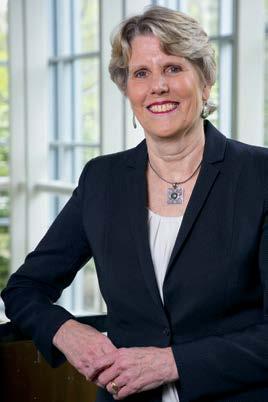
Wettach is the author of A Parents’ Guide to Special Education in North Carolina, School Vouchers in North Carolina, The First Three Years, and a contributing author of Special Education Advocacy and Guide to Student Advocacy in North Carolina. d
neil siegel, the David W. Ichel Professor of Law and professor of political science, served as special counsel for U.S. Senator Christopher Coons during the March confirmation hearings for U.S. Supreme Court Associate Justice Ketanji Brown Jackson.
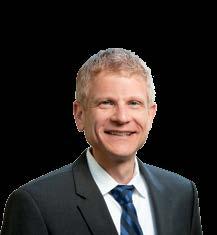
Siegel previously served as special counsel to Coons during the Supreme Court confirmation hearings of Associate Justices Amy Coney Barrett in 2020 and Brett Kavanaugh in 2018, and advised Coons during the confirmation hearing of Associate Justice Neil Gorsuch in 2017. Siegel also served as special counsel to then-Sen. Joe Biden during the confirmation hearings of Chief Justice John Roberts in 2005 and Associate Justice Samuel Alito in 2006.
A scholar of constitutional law, politics, and theory, Siegel teaches Duke Law students, undergraduates at Duke University, and judges in the Law School’s Master of Judicial Studies program. He also directs the Duke Law Summer Institute on Law and Policy. In July, he begins a two-year term as associate dean for intellectual life. d
Professor h. Jefferson Powell has published The Practice of American Constitutional Law (Cambridge University Press, 2022), his 14th book, in which he challenges the common belief that constitutional law arguments are, as a rule, substantively political. He explains the longstanding, shared practice of constructing and evaluating constitutional law claims in a way that transcends current political disagreements, describing how lawyers and judges identify constitutional problems by using a specifiable method of inquiry that enables them to agree on what the questions are, and thus what any plausible answer must address, even when disagreement over the most persuasive answers remains.
Powell is a leading scholar of constitutional law who has served in a variety of positions in federal and state government during his career, including in the U.S. Department of Justice as deputy assistant attorney general in the office of Legal Counsel and as principal deputy solicitor general. d
matthew adler, the Richard A. Horvitz Professor of law and professor of economics, philosophy, and public policy, has co-edited Prioritarianism in Practice (Cambridge University Press, 2022) with ole Norheim of the University of Bergen. Prioritarianism is an ethical theory that gives extra weight to the well-being of the worse off.
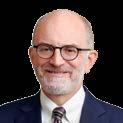
Based on the work of the Prioritarianism in Practice Research Network founded by Adler and Norheim, the book is the first to show how the theory can be used to assess governmental policies and evaluate societal conditions, and uses prioritarianism as a methodology to evaluate governmental policy across a variety of policy domains such as taxation, health policy, risk regulation, education, climate policy, and the CoVID19 pandemic. Contributors also demonstrate how the theory improves on GDP as an indicator of a society’s progress over time.
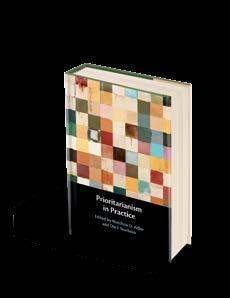
Adler’s previous works on prioritarianism and other policy-evaluation methodologies include Well-Being and Fair Distribution: Beyond CostBenefit Analysis (o xford, 2012), Measuring Social Welfare: An Introduction (o xford, 2019), and the Oxford Handbook of Well-Being and Public Policy (2016, editor, with Marc Fleurbaey). d

alex Zhang, the Archibald C. and Frances Fulk Rufty Research Professor of Law, associate dean of Information Services, and director of the J. Michael Goodson Law Library, is the co-editor, with Katherine Siler, of Global Animal Law Research: Strategies and Resources (Carolina Academic Press, 2022).
The book includes contributions from 12 research specialists with expertise in U.S., foreign, international, and comparative law research who identify and analyze research resources, strategies, and current and emerging legal frameworks on animal rights and welfare in the laws of more than 15 countries across five continents. They also discuss a diverse set of research methods in both common law and civil law legal systems, including regulatory, legislative, statutory, case law, international agreement, and comparative law research. Each chapter focuses on a particular legal topic, identifying unique problems within that topic and exploring effective approaches to address them.

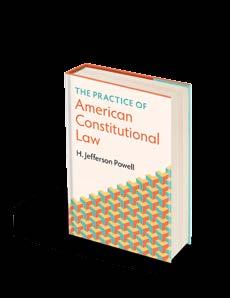
Zhang’s research interests include legal information and technology, law library management,

lawrence Zelenak, the Pamela B. Gann Professor of Law, is co-editor, with Ajay Mehrotra, of A Half-Century With the Internal Revenue Code: The Memoirs of Stanley S. Surrey (Carolina Academic Press, 2022). In addition to editing the former assistant secretary of the Treasury for tax policy’s professional memoirs, Zelenak and Mehrotra contribute an introductory essay on his professional life and his contributions to tax policy, as well as annotations offering background on the people and events Surrey discusses in his memoirs.
Surrey, who died in 1984, was the most prominent mid-20th-century American tax law academic and had a tremendous influence on tax policy in that capacity and through two “lengthy tours of duty in the service of the U.S. Treasury Department.” According to the book, Surrey’s influence on the federal tax system was deep, pervasive, and ongoing, with such contributions as his development of tax expenditure analysis, which since the 1970s has played a central role in a wide range of tax policy discussions.

Zelenak teaches Federal Income Taxation, Corporate Taxation, and Tax Policy. His publications include numerous articles on tax policy issues and a treatise on federal income taxation of individuals. d

Professor sara sternberg greene has been elected as a member of the National Academy of Social Insurance. Greene, whose teaching and research interests include poverty law, housing law, consumer law, bankruptcy, family law, contracts, qualitative research methods, and law and sociology, uses primarily qualitative empirical methods to study the relationship between law, poverty, and inequality. Her work focuses on how low-income families understand, experience, and interact with the law, how legal institutions may inadvertently perpetuate poverty and inequality, and how structural conditions create barriers to accessing law and justice for low-income families.
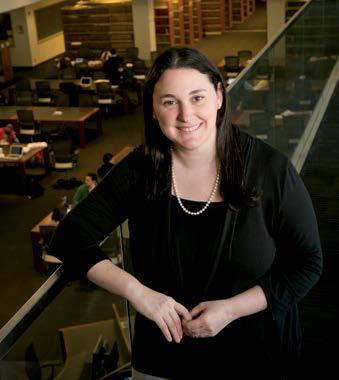
The academy advances solutions to challenges facing the nation by increasing public understanding of how social insurance contributes to economic security. “This mission encompasses established social insurance programs — Social Security, Medicare, Workers’ Compensation, and Unemployment Insurance — as well as related policy areas, including Medicaid, long-term services and supports, paid leave, other social assistance programs, and private employee benefits,” according to a January statement announcing the election of 48 new members. All were nominated by existing members on the basis of their professional contributions.
Greene’s recent work explores the connection between the use of personal data and economic insecurity in the United States. Two key projects involve investigating how gatekeepers understand and interpret the law related to personal data use when deciding how to allocate scarce economic resources, and how low-income victims of identity theft navigate the legal remedies available to them. d
nita Farahany JD/ma ’04, PhD ’06, the Robinson o. Everett Professor of Law and professor of philosophy, was appointed by North Carolina Gov. Roy Cooper, in April, to the Uniform Law Commission (ULC). Also known as the National Conference of Commissioners on Uniform State Laws, the ULC “provides states with non-partisan, well-conceived and well-drafted legislation that brings clarity and stability to critical areas of state statutory law,” according to its website. Appointed by each state and territory, members research, draft, and promote enactment of uniform state laws in areas of state law where uniformity is both practical and prudent.
Farahany is a leading scholar on the ethical, legal, and social implications of emerging technologies. She is the founding director of the Duke Initiative for Science and Society, the faculty chair of the Duke MA in Bioethics and Science Policy, and principal investigator of SLAP Lab. She is a member of the standing committee on Biotechnology Capabilities and National Security Needs at the National Academies of Sciences, Engineering and Medicine. d
Students honored Clinical Professor Jeff ward JD/llm ’09, the associate dean for Technology and Innovation and the director of the Duke Center on Law & Technology, with the Duke Bar Association’s 2022 Distinguished Teaching Award in April.
In presenting the award, DBA Academics Chair Benjamin Spencer ’24 read from nominations that lauded Ward’s support in and out of class.
“When I hit my mid-semester slump, was feeling unmotivated by school, and didn’t do very well on his final, I went to a meeting with him and couldn’t have walked out feeling better,” one student wrote of Ward. “He reminded me of the importance that lawyers play in our society and what kind of contributions I could make even while in law school, and assured me that everything was going to be okay moving forward. It wasn’t a generic speech — he truly cared about me and valued my experience being a positive one.”
Ward, who teaches Contracts as well as courses in law and technology, thanked his students for being “unbelievably gifted, hardworking, kind, always eager to grow.
Clinical Professor Jesse mccoy spoke at a Jan. 28 virtual event hosted by the White House and the U.S. Department of Justice on law schools’ response to the national housing and eviction crisis. The “Eviction Prevention Convening” followed an earlier call to action by the office of the Attorney General to the U.S. legal community to help address the crisis as federal and local eviction moratoriums expired around the country.
Nearly 100 law schools responded, including Duke Law’s Civil Justice Clinic, which created a walk-in Eviction Advice Clinic on Friday mornings at the Durham County Courthouse. The clinic, staffed by four to five students from either the Civil Justice Clinic, for which McCoy is the supervising attorney, or the broader student body, provided legal assistance to local residents facing eviction, often related to circumstances caused by the CoVID-19 pandemic and exacerbated after the federal eviction moratorium ended. (Read more, page 64.)
In addition to teaching and supervising clinic students, McCoy, a former staff attorney for Legal Aid of North Carolina, co-teaches the Social Justice Lawyering seminar at Duke Law. d
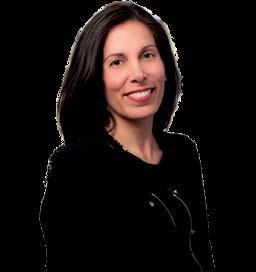
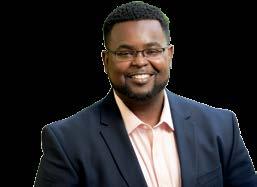

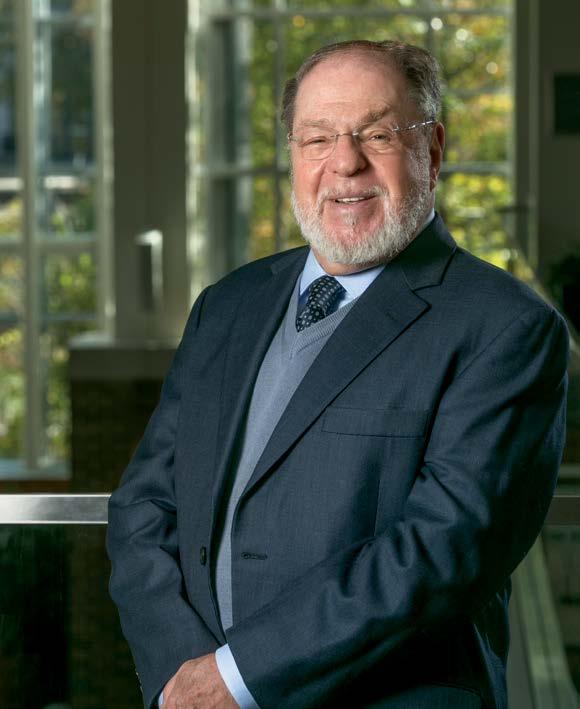
k EE p S p UbLISHING
JeRRy ReIchMaN, Duke’s Bunyan S. womble Professor emeritus of Law, was in his 40s when he began his academic career, a late start for a legal scholar. But he quickly made his mark in the fields of intellectual property law and innovation policy, producing, to date, 10 books, more than 85 articles, and myriad pathbreaking strategies to fairly resolve challenges arising from the grant of exclusive property rights that underpin IP law domestically and internationally.
the program for a 2019 conference at harvard Law School illustrates his influence: organizers chose six themes on which Reichman’s work is considered foundational, from the world trade organization’s multilateral agreement on trade Related aspects of Intellectual Property (the tRIPS agreement) and the role of IP rights in developing countries to the challenges facing the digital commons and the question of whether antitrust and competition law trust intellectual property law too much. and the leading academics and policymak-
ers from around the world who attended “Jerryfest” — many of them his research partners, co-authors, and former students — made it clear that his generosity, kindness, and humility as a mentor and colleague are part of his professional legacy.
Reichman, a member of the Duke Law faculty since 2000, has retired from teaching, but remains active as a scholar. he has multiple articles forthcoming on such topics as: using tRIPS agreement flexibilities and regional procurement centers to facilitate the production of medicines to combat coVID-19 and other illnesses in developing countries; addressing challenges with genetic-sequence data under the multilateral convention on Biological Diversity that provides for the sustainable and equitable sharing of biological resources and their benefits; and setting out a novel governance regime for sub-patentable innovation that is based on liability rules, which permit access to resources protected by intellectual property rights with the payment of state-set compulsory license fees, instead of exclusive property rights.
“It’s an incredible marriage of theory and actual real-world impact that we see in Jerry Reichman,” said elvin R. Latty Professor of Law arti Rai at an april celebration held in his honor at Duke Law. “his wide-ranging intellect and insatiable curiosity are really unparalleled.” Rai, who has co-authored three articles with Reichman, called him “an incredibly generous and passionate collaborator” who models what it is to be a true intellectual as well as a good human being. “that, I think, shows how truly sui generis you are, Jerry,” she said.
Reichman entered yale Law School at age 19 as a member of the class of 1958, fresh from the hutchins Program at the university of chicago, where the focus on the “great books” and use of Socratic dialogue in learning “changed my thinking,” he says. yale was then on the forefront of using the Socratic method in legal education, and it eventually became central to his own teaching.
he excelled in law school; peers and professors alike told him he should teach, but he had no interest in doing so, planning instead to write novels and establish a career in the arts. he secured a prestigious fulbright fellowship in India to follow his law school graduation, but in his final semester contracted the endemic h2N2 influenza virus and was hospitalized. unable to defer his fellowship to finish his law degree, he resolved to go to India without a clear plan to return but with a firm commitment from a yale associate dean that he could do so at any time. an overnight stop on the Italian Riviera on his way to India planted the seeds for an extended break, he says. “when I saw Genoa, I fell in love with Italy and decided that on my way back I’d stay.”
a year later, Reichman landed a lucrative position as chief editor for the turinbased agnelli foundation, established by the owners of fiat as a center-left think tank. on the side, he became involved with cabaret theatre in Milan that satirized politics, something that had fairly recently been subject to strict fascist censorship. when he organized a summer production of Milanese cabaret in a seaside town near Genoa, he expected modest success at best, but instead created a cause célèbre.
“as soon as we opened, the local police chief shut us down, using the old laws against free expression from the fascist period,” he says. “But the political parties intervened on our behalf with the chief police officer for the region and he deemed it free speech under the new laws.” extensive media coverage of the controversy ensured packed houses all summer at various stops along the Italian coast. he also produced music, another successful sideline, and was rewarded with Italian critics’ awards for best records of the year for two different albums, one a compilation of works by the noted actress and cabaret star carla Mignone, who performed as Milly.
Reichman had been in Italy for more than a decade when the agnelli foundation drastically scaled back its staff. unable to find a comparable job elsewhere in the country, he asked a contact at the united Nations about positions in Geneva. Despite such posts being hard to come by, he was essentially hired on the spot as an editor for the International trade center of the united Nations
conference on trade and Development (uNctaD/ Gatt) that was promoting exports from small developing countries to major european markets. the credential he was told that got him the job: he had been a comment editor on the Yale Law Journal
a few years later, Reichman was a senior editor at uNctaD/Gatt when he was recruited for a high-level position in the central legal office at the u.N. in Geneva. the one condition was that he complete his JD, for which he was a few credits short. that’s when he called in the long-ago promise that he could return to yale, this time in the class of 1979. Reichman jokes that he was the youngest entrant and oldest graduate of yale Law School.
the decision to let him return wasn’t without controversy, said u.S. Second circuit court of appeals Judge Guido calabresi, Reichman’s friend and 1958 classmate, who was then on the yale law faculty. Speaking at the april retirement celebration, calabresi recalled that the head of the admissions committee, who had given Reichman top grades in first-year Property decades before, initially declared him “too old” for law school. But once he returned, “Jerry did so well that everybody was stunned,” calabresi said. “More importantly, he realized that he had always wanted to be a scholar.”
Despite that, Reichman declined to take part in the academic “meat market” generally seen as the only path to a faculty position. But before returning to Geneva he gave a single job talk at the college of Law at ohio State, which had an unexpected opening and where another yale classmate was on faculty. By the time he arrived in Geneva he had an offer of a tenure-track position, which he took in spite of the fact that it paid almost $100,000 less than his waiting u.N. post.
Reichman quickly found his stride as a teacher and scholar, gaining tenure in short order at ohio State, where he stayed until moving to the Vanderbilt university Law faculty in 1986. he displayed the same versatility and vision in building his research agenda as he had in his earlier pursuits, with one branch using the expertise in multilateral trade agreements that he gained at the u.N. in making connections between intellectual property and international trade law.
“to a substantial degree, Jerry’s work has set the tone for the modern study and teaching of intellectual property, both in the united States and increasingly in the rest of the world,” said william w fisher III, the wilmerhale Professor of Intellectual Property Law and faculty director of the Berkman center for Internet and Society at harvard, during opening remarks at the 2019 harvard conference. fisher
noted Reichman’s continual emphasis on distributive justice and commitment to reducing the disadvantages faced by poor people and nations, his focus on the impact of intellectual property laws on scientists’ abilities to share information and build on each other’s work as well as to incentivize innovation, and his innovative global orientation.
fisher further highlighted Reichman’s argument, across a large body of work, that liability rules are preferential to property rules when defining the scope of rights over scientific information, data, traditional knowledge, and other elements of innovation. “Jerry has long argued that liability rules have important advantages, specifically in reducing transaction costs and reconciling the benefits of incentives for innovation with the need for sharing information and facilitating cumulative innovation,” he said.
those values and interests are evident in Reichman’s articles and books, including International Public Goods and Transfer of Technology Under a Globalized Intellectual Property Regime (cambridge university Press, 2005, editor with keith Maskus), which emerged from his work addressing the problems that developing countries face in implementing tRIPS and remains frequently cited; Governing Digitally Integrated Genetic Resources, Data, and Literature: Global Intellectual Property Strategies for a Redesigned Microbial Research Commons (cambridge university Press, 2016, with Paul f. uhlir and tom Dedeurwaerdere), which examines how scientists share collections of microbes and related data to advance research in such areas as medicine, agriculture, and climate change, and how current systems for facilitating that transnational exchange can be improved; and The World Blind Union Guide to the Marrakesh Treaty (oxford university Press, 2017, with Laurence R. helfer, Molly k. Land, and Ruth k okediji), which helps the 51 governments that adopted the Marrakesh treaty to facilitate access to Published works for Persons who are Blind, Visually Impaired or otherwise Print Disabled understand the options available to them for implementing it in ways that enhance the availability and dissemination of copyrighted materials in accessible formats.
Reichman was also involved in negotiating tRIPS agreement amendments that permitted limitations and exceptions to exclusive property rights in pharmaceuticals to facilitate their fair distribution globally. he is particularly proud of the work he has done that maps out efficient ways developing nations can implement those “flexibilities” through mandatory patent pools, shared regional production and supply centers, and a coordinated system to maximize administrative expertise. the first of two articles co-authored with Professor frederick abbott of florida State university college of Law and published
in the Journal of International Economic Law appeared in 2007; in a 2020 research paper, the pair urge the implementation of their strategy to address the pandemic. Reichman has other pieces forthcoming on the topic, including an essay titled “Infrastructure, Not waivers: Promoting access to Medicines in Developing countries,” in which he addresses, with evident frustration, recent requests by some of those nations that patent protections in coronavirus vaccines, treatments, and diagnostics, be waived entirely.
“the deeper problems arise from the fact that developing countries — with some notable exceptions — have often ignored the flexibilities codified in the tRIPS agreement, with the result that they have acquired relatively little cumulative experience in how to manage these compulsory licensing provisions efficiently,” he writes. “as a result, the international community and the developing countries as a group often lack needed infrastructure to render these flexibilities operational easily and efficiently on the domestic level.”
Reichman expresses no frustration with his longago decision to leave his life in europe for that of an american legal scholar and to spend more than two decades at Duke Law. “It’s a wonderful place and I’ve had wonderful colleagues,” he says. “I don’t think there are many places like Duke in the legal educational system. the most important decision of my life was to come to Duke.” d — Frances Presma
“It’s an incredible marriage of theory and actual real-world impact that we see in Jerry reichman. his wide-ranging intellect and insatiable curiosity are really unparalleled.”
— Professor Arti Rai
IN a tRIBute to Professor emeritus walter Dellinger III, who died on feb. 16 at the age of 80, President Joe Biden called him “the protector of american democracy.”
Dellinger, the Douglas B. Maggs Professor emeritus of Law, was a renowned constitutional lawyer, leading Supreme court advocate, and advisor to u.S. presidents who served as acting solicitor general and assistant attorney general during the clinton administration. a member of Duke Law School’s faculty since 1969, he served as acting dean of the Law School from 1976 to 1978 and retired from teaching in 2007.
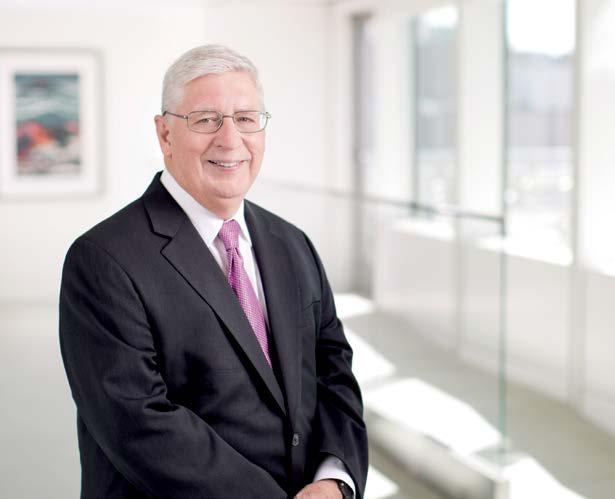
Recalling Dellinger’s leadership in advising his campaign before and after the 2020 election, Biden praised his “prodigious intellect,” his mastery of the law, and his “big heart.”
“he knew that to live the good life was the matter of a thousand little things that built character,” the president said. “the belief that everybody’s your equal. a head to know the difference between knowledge and judgment, and the heart to know what’s truly meaningful and what’s ephemeral. we all felt it in every piece of counsel he provided me and others.”
those sentiments were echoed by a host of public figures, faculty, and professional colleagues from Dellinger’s long career in academia, public service, and private practice, and former students in the days following his death and during a March 22 virtual memorial celebration co-hosted by Duke Law School and o’Melveny & Myers, where Dellinger was a partner. the event also celebrated the life of his wife, anne Maxwell
Dellinger ’74, a professor at uNc-chapel hill’s School of Government, who died in april 2021.
“walter was one of the most astonishingly brilliant, compassionate, and optimistic people to have ever walked this earth,” said kerry abrams, the James B. Duke and Benjamin N. Duke Dean of the School of Law. “he did more for the rule of law, the civil rights of individual people, and the well-being of his fellow humans in any one year of his life than most people do in a lifetime. But despite his brilliance and accomplishments he was genuine, humble, and helpful to people in all aspects of his life. he had the gift for touching each individual life and making each person feel incredibly important, worthy, and needed.”
Dellinger was a resident member of the faculty from 1969 until 1993, when President Bill clinton nominated him to be assistant attorney general and head of the office of Legal counsel (oLc) in the u.S. Department of Justice. the position is the department’s principal legal advisor to the attorney general and president. Dellinger was confirmed by the Senate and served in the role for three years.
In 1996, clinton tapped Dellinger to be acting u.S. solicitor general. Dellinger argued nine cases before the Supreme court during the 1996-97 term, the most for a solicitor general in 20 years. these included cases dealing with physician-assisted suicide, the line-item veto, the statute regulating cable television, the Brady handgun Violence Protection act, the Religious freedom Restoration act, and the constitutionality of remedial services for children attending parochial schools.
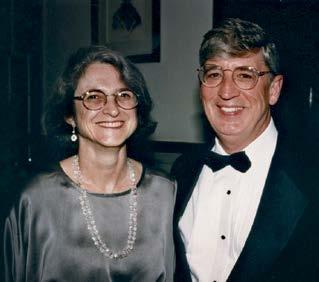
“he led the office of Legal counsel with great distinction, and was amazing as solicitor general,” clinton said, also noting the argument that Dellinger later made in an amicus brief in Lawrence v. Texas, in which the court struck down the texas law criminalizing sodomy. “It was just one example of how a man with a brilliant mind and a caring heart could use the power of law and the promise of american equality
advance the lives of all of us.”
after leaving government service and returning to Duke, Dellinger joined o’Melveny in washington,
where he led the Supreme court practice. his appearances before the high court would eventually total two dozen, including arguing the landmark 2008 gun-rights case, District of Columbia v. Heller. In 2013, Dellinger’s amicus brief in Hollingsworth v. Perry — which argued that proponents of california’s same-sex marriage ban lacked standing to appeal a lower court decision striking down the ban — was cited in the court’s opinion vacating and remanding the case, making marriage equality possible in the state.
In a statement, Justice Stephen Breyer said Dellinger “was a great lawyer and a valuable public servant. he was thoughtful, imaginative, and had a very good sense of humor. his positive contribution to law and to the rule of law in this country will be long remembered.”
to
“ he knew that to live the good life was the matter of a thousand little things that built character. The belief that everybody’s your equal. a head to know the difference between knowledge and judgment, and the heart to know what’s truly meaningful and what’s ephemeral. we all felt it in every piece of counsel he provided me and others.”
— President Joe Biden
» view the memorial celebration at duke.is/ba3qw.
Justice elena kagan remembered Dellinger as a great mentor and friend. “he gave the best advice when I became solicitor general, sharing everything he knew about the job,” she said in a statement. “he was generous and kind, and he made everyone he dealt with feel 10 feet tall. he was a phenomenal lawyer with an endless string of accomplishments, but he always gave the credit to others. I’ll miss his sense of humor, his clear-eyed optimism, and his passionate engagement with the world of law.”
Dellinger testified before congress more than 25 times, lectured at law schools and universities around the world, and addressed numerous judicial conferences and legal associations. his articles appeared in the Harvard Law Review, Yale Law Journal, Duke Law Journal, and other scholarly publications. he was frequently quoted in print and broadcast media, commenting widely on issues related to the Supreme court and the presidency, and had a longtime collaboration with journalist Dahlia Lithwick in the online magazine Slate. his most recent publication, a guest essay published feb. 3 in The New York Times, defended President Biden’s pledge to nominate a Black woman to the court to replace Justice Breyer.
“this practice of considering prospective justices’ backgrounds and demographic characteristics — engaged in by presidents of both parties over the decades — is not some form of ‘quota’ designed merely to appease political constituencies,” Dellinger wrote. “Rather, it stems from bedrock principles of democratic governance. after all, the Supreme court exercises immense power to issue decisions that affect and bind all americans. for that power to be legitimate, and for americans to continue placing faith in the court, its members must be representative of all of america.”
In 2020, Dellinger joined with two fellow former solicitors general, Seth waxman and Donald Verrilli, to advise Biden’s presidential campaign on possible post-election challenges. Last year, Biden named Dellinger to a presidential commission studying possible reforms to the Supreme court.
Dellinger won numerous awards for his advocacy and leadership. he was honored with lifetime achievement awards by the american constitution Society and The American Lawyer, and National Law Journal named him one of america’s 100 most influential lawyers. In 2010, he was inducted into the order of the Long Leaf Pine, the highest honor bestowed by the governor of North carolina.
a longtime resident of chapel hill, Dellinger was often seen reading the sports section at Sutton’s Drug Store on e. franklin Street. “and I don’t get very far beyond sports because I’m distracted by the breakfast counter conversation,” he told Lithwick.
Dellinger grew up in charlotte and often cited his childhood in the segregated South as an influence for his progressive values and his interest in law. he attended the university of North carolina-chapel hill, where he received the frank Porter Graham award for the senior with the most outstanding commitment to the ideals of equality, dignity, and community, and yale Law School, where he was an editor of the Yale Law Journal after graduation, he taught law at the university of Mississippi and then clerked for Supreme court Justice hugo L. Black during the 1968-69 term.
Dellinger is survived by his sisters, Barbara Dellinger and Pam Swinney, and sons hampton Dellinger, assistant attorney general in the Justice Department’s office of Legal Policy, and andrew Dellinger. Dellinger’s daughter-in-law, Jolynn Dellinger ’93, is a senior lecturing fellow at Duke Law.
faculty colleagues at the Law School, where Dellinger attended faculty meetings and workshops and spoke at lunchtime events even while maintaining a D.c. law practice, mourned his passing. charles S. Murphy Professor emeritus of Law and Professor emeritus of Public Policy christopher Schroeder, who followed Dellinger to the Justice Department in 1993, succeeded him as head of oLc, and is serving in that role again as
assistant
“ he was a phenomenal lawyer with an endless string of accomplishments, but he always gave the credit to others.”
— Justice Elena Kagan
attorney general in the Biden administration, said Dellinger was “one of a kind” at every point in his remarkable career.
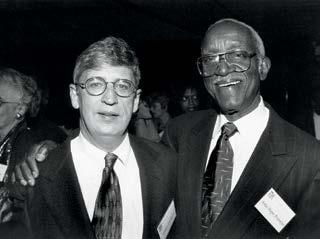
“he brought his sharp analytical and communication skills to all of these responsibilities, along with his wit and an upbeat disposition that could lighten the most somber conversation,” Schroeder said. “Speaking for his many students and his faculty colleagues, we have all had our lives enormously enriched by getting to know him, learn from him, and receive his wise counsel — often delivered with a twinkle or smile. he was a national asset and a true friend of Duke Law School.”
katharine Bartlett, the a kenneth Pye Professor emerita of Law, who served as dean from 2000 to 2007, recalled Dellinger’s outsized impact on people around him.
“everything about walter was over the top: his intellect. his personality. his wit. his appetite for ideas and good conversation. his loyalty to friends and colleagues. his affection for his family. his love for this country and his commitment to its democratic values,” Bartlett said. “It is hard to think of anyone who brought as much energy and devotion to both the public and the private dimensions of his life.”
Professor h. Jefferson Powell, who also joined Dellinger in washington, serving as a deputy assistant attorney general in the oLc in the clinton administration and later as principal deputy solicitor general, called Dellinger “an incomparable constitutional lawyer: passionate in his convictions, and equally passionate about the law as the common, essential inheritance of everyone in this country regardless of who they are and what they believe.
“walter’s commitment to the equal dignity of every person was not just a belief — it was who he was. and he himself was a great human being. as [Professor emeritus] David Lange, walter’s dear friend and mine, said: ‘everyone who knew him loved him.’”
added James coleman, Jr., the John S. Bradway Professor of the Practice of Law: “walter was special — a brilliant lawyer, an extraordinary writer, a compassionate colleague, and a very funny person. he never took himself too seriously.”
his sense of humor was evident, coleman said, in Dellinger’s discussion of uNc basketball during an email exchange with his son hours before his passing. “our colleague [Professor] trina Jones called walter a unicorn, and that captures him perfectly. heaven just landed a rare game-changing recruit.”
David f. Levi, the Law School’s dean from 2007 to 2018, recalled when he was chief judge of the u.S. district court for the eastern District of california and Dellinger appeared before him in a case.
“walter’s unique ability to frame a case and place the emphasis on the important points was on full display,” said Levi, now the Levi family Professor of Law and Judicial Studies and Director of the Bolch Judicial Institute at Duke Law. “he was a very creative lawyer and scholar. But what stands out even more is the personal: his unfailing kindness to everyone, his joy in the law and in life, his devoted care of his spouse, his commitment to the values he cared about, and his unrivaled gift for friendship.”
calling Dellinger her “steadfast friend and advisor,” Deborah DeMott, the David f. cavers Professor of Law, recalled his assistance on a friend-of-court brief to the Supreme court in 2011. while his law firm colleagues resisted her reference to herself on the brief as “amica,” given its alternate meaning as “courtesan,” Dellinger supported her word choice. “to deny my gender as the author seemed to deny the reality of centuries of progress in women’s roles in the law and its institutions, as well as the range of benevolent relationships between women and men,” DeMott said, adding that Dellinger’s autograph on her copy of the brief read to his “very good amica.”
Dellinger’s death also prompted an outpouring of tributes on social media, with comments from former students, fellow lawyers and scholars, prominent journalists, government officials, and members of congress.
“walter was my favorite prof, became a friend, hosted our wedding in his backyard, counseled me on my only Supreme court argument, and was one of the nicest and most genuine people I ever met,” tweeted Len Simon ’73, a member of the Law School’s Board of Visitors whose wife, candace carroll ’74, was also a student of Dellinger’s.
tributes to Dellinger appeared in the New York Times, Washington Post, Slate, ScotuSblog, Washington Monthly, and numerous other publications. d — Andrew Park












El E v E n scholars and t E ach E rs join th E faculty, bringing n E w E xp E rtis E , E xp E ri E nc E , and p E rsp E ctiv E s
uke Law SchooL typically welcomes a handful of new faculty each summer, but for the upcoming academic year, the welcome mat has had to be enlarged.
at press time, 11 scholars and teachers had accepted offers to join the faculty in 2022-23, a record for the Law School. they include well-established professors who are experts in their fields and noted for their teaching, promising young scholars with experience in cutting-edge methods of conducting research, seasoned practitioners with a wealth of insights from varied areas of practice, and a veteran jurist joining Duke Law from the federal bench. they are also a diverse group who bring an array of identities and backgrounds to their work and amplify many of the Law School’s existing faculty strengths, including corporate law, international law, intellectual property, and empirical research.
among the Law School’s new recruits are Veronica Root Martinez, an expert on corporate compliance and monitorships; christopher Buccafusco, a scholar of intellectual property law and innovation policy; and timothy Meyer, an international public law scholar who specializes in international trade, investment, and economic law. all three start July 1.
Joining the July arrivals is Jedediah Purdy, a renowned public intellectual and a prolific scholar of environmental, property, and constitutional law who is returning to Duke from columbia Law School. Purdy was on the Duke Law faculty from 2004 to 2019 and was a perennially popular teacher who won the Duke Bar association’s Distinguished teaching award in 2008.
Since arriving at Duke in 2018, James B. Duke and Benjamin N. Duke Dean kerry abrams has made retaining and recruiting excellent faculty a strategic priority. under her leadership, the Law School has hired 18 new professors, including 10 who are women and nine who are people of color, and people of color have increased from 12% to 20% of the tenure-track faculty.
abrams began the 2021-22 academic year with a goal of increasing the pace of hiring and growing in new directions following a number of retirements and departures. the result is unprecedented momentum in adding faculty.
“without a great faculty, we can’t continue to be a great school,” abrams says. “the faculty we hire today will shape the school for years to come and so it’s an incredibly exciting opportunity for me and for the faculty as a whole to think about the future of Duke Law and who we want to be and where we want to go.”
the Law School’s Lateral appointments and Promotions committee, chaired by harry R. chadwick, Sr. Professor of Law Laurence helfer, and entry-Level appointments committee, chaired by Pamela B. Gann Professor of Law Lawrence Zelenak, vetted hundreds of candidates and read thousands of pages of scholarship before inviting promising recruits to meet the faculty. the search committees
formed to identify candidates to lead the health Justice clinic and new criminal Defense clinic and the Bolch Judicial Institute were just as discerning.
the result is an extraordinary new cohort of professors who will have an immediate impact on the Duke Law community. In fact, the Law School was intentional about hiring “triple threats” who excel at teaching, scholarship, and service, says Lisa kern Griffin, the candace M. carroll and Leonard B. Simon Professor of Law and senior associate dean for faculty and research. In addition to being innovative scholars, those coming from professorships at other universities have records as “major institutional citizens” who directed centers, chaired committees, won teaching awards, or held significant administrative posts, she says.
Many of the recruits are already well known to the Duke faculty. Several have co-authored articles with Law School professors, contributed to journal symposia, or participated in the culp colloquium and emerging Scholars programs, mentoring programs established at Duke Law School that seek to increase the diversity of the legal academy overall by helping minority candidates advance in legal academic careers.
“at every stage of the hiring process, we were not only considering excellence in research but also potential as colleagues,” Griffin says.
Placing a premium on teaching and mentoring abilities, the committees involved students throughout the interview process and solicited their feedback on each candidate.
“I was really proud that every single candidate we brought in was one whom the students wanted to hire,” abrams adds. “we are a school that prides ourselves on the relationship between faculty and students, the classroom environment, and the whole student experience. Not all distinguished researchers care about that. So the student concurrence told us we were doing a good job of identifying the people who then would actually contribute well to our mission and culture.”
Read on to learn about the new faculty joining Duke Law School in 2022-23.


eRoNIca Root MaRtINeZ is one of the nation’s foremost academic experts on corporate compliance and the role of monitors. her scholarship focuses on professional and organizational ethics, compliance, monitorships, and diversity, equity, and inclusion.
Martinez comes to Duke Law from Notre Dame Law School, where she was the Robert & Marion Short Scholar and professor of law and the inaugural director of the school’s Program on ethics, compliance & Inclusion. She is the co-author, with Donna M. Nagy and Lisa M. fairfax, of the forthcoming casebook Securities Litigation, Enforcement & Compliance (west 5th ed. 2022). In 2021, she was appointed to a fouryear term on the National adjudicatory council of the financial Industry Regulatory authority (fINRa).
“Veronica Root Martinez’s work as a scholar has a distinct and innovative focus on structures and processes internal to firms that shape their compliance with law,” says David f cavers Professor of Law Deborah a. DeMott. “her inquiries extend to the roles that lawyers play within these processes. She’s keenly interested in how institutions function — and malfunction — as well as in how the law and regula-
tion might respond. She will add an important new dimension to Duke’s existing strengths in business law.”
Martinez, whose courses will include ethics, contracts, and Securities Litigation, enforcement, and compliance, has received numerous awards, including two this year, for her overall contributions to student life at Notre Dame and her work as an advisor to the school’s Black Law Students association. During a fall 2021 visit to Duke she received raves from students after a guest lecture on compliance in a Business associations class taught by Professor Gina-Gail fletcher.
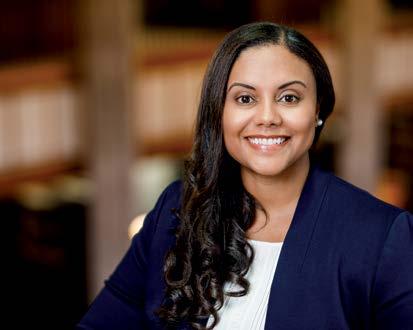
“She found a way to bring in some of the themes and topics that we had been talking about and show the students from a practical, real-world perspective how these theories of fiduciary duties and oversight liabilities can come up,” fletcher says. “and the students really loved it. they were completely engaged with her and her teaching methodology. I actually had a couple of students write me to praise her and say they would be thrilled if she were to join the faculty. She’s a prolific scholar and a deep thinker, and she’s a fantastic professor who cares about her students.”
a graduate of the university of chicago Law School, Martinez’s interest in corporate compliance and oversight is rooted in her academic background and practice experience. She majored in marketing and management at Georgetown university’s McDonough School of Business, gaining exposure to business disciplines such as organizational behavior that are germane to her current research. Prior to joining the Notre Dame faculty in 2012, she focused on regulatory work, internal corporate investigations, and governmental investigations in the washington, D.c. office of Gibson Dunn.
“I think that when you look at compliance concerns you must also consider ethics issues in tandem,” Martinez says. “Some people think that conversations about ethics should be saved for the business school setting, and the technical, legal, and


regulatory stuff is more for the legal academic. But if you’re not thinking through concepts of ethics while you’re creating your compliance program, you’re probably setting yourself up for some problems down the line.”
She makes that point in numerous articles, including “complex compliance Investigations,” 120 Columbia Law Review 249 (2020), where she argues that complex corporate structures such as multinational firms are often burdened with information silos that hinder internal communication, and that they should focus on process-based reforms that augment compliance structures and bolster their ability to respond to information about compliance failures.
In “the Government’s Prioritization of Information over Sanction: Implications for compliance,” 83 Law & Contemporary Problems 85-111 (2020), she examines why federal regulators and prosecutors fail to fully exercise their ability to sanction firms for engaging in misconduct. She argues that federal agencies have prioritized information gathering from firms regarding the nature of their compliance failures rather than punishing firms for them, yet have not created any mechanism for analyzing and disseminating that data to help other firms adhere to best practices.
“when the federal enforcers fail to harness and share the insights they gather from firms, it wastes a unique opportunity to curb corporate misconduct in a broad-based manner by strengthening the very compliance programs they purport to incent,” Martinez writes. “Government prosecutors and regulators should consider how they might utilize information garnered as a result of firms’ cooperation in a manner that might improve the effectiveness of firms’ compliance on a widespread basis.”
“She thinks very deeply about the link between compliance and ethics and bridges areas that were not necessarily thought of as being connected,” says fletcher, who first met Martinez when both were associates at Gibson Dunn. “that makes her exciting and unique as a scholar.”
a large segment of Martinez’s scholarship examines the role of monitors: independent parties who oversee compliance with court orders or other remediation efforts after an organization has had a significant compliance failure or been found to have engaged in serious misconduct.
Monitors help organizations to assess where the failure occurred, take steps to ensure it doesn’t fail again, and hold them to account. yet, as Martinez writes in an article forthcoming in the Harvard Law Review, monitors themselves receive little oversight and the public often is not privy to the results of a monitorship and the success or failure of a remediation effort, even when it is of public concern. In the paper, titled “Greater Publicness in Monitor Reporting,” she proposes federal interventions to increase public access to information on the results of monitorships.
L. Neil williams, Jr. Professor of Law Brandon Garrett, who has written widely on corporate compliance and prosecution, says Martinez’s scholarship, which brings together research from a variety of disciplines and deep insights from practice, is helping to cement corporate compliance as a dynamic field.
“Many of our students and alums have developed wonderful careers in corporate compliance, and they will all benefit from Veronica’s vision and superlative scholarly contributions,” he says. “with the addition of Veronica’s energy in the classroom and as a researcher, there is no better place to study white collar law and corporate compliance than Duke Law.”
a key theme of her work is searching for the right incentives to encourage people within organizations to behave with integrity and ensure that those organizations operate at a high level, Martinez says.
“Most of us spend the majority of our lives in our workplaces, and if we think our workplace is dysfunctional in some way, if it’s engaged in illegal, unethical, or discriminatory conduct, it’s going to have a spillover effect in other areas of our lives. while my work looks at a variety of areas and subjects, at core I am trying to
help organizations function better so that the people within them can fully live out their lives with dignity.”

In two recent pieces Martinez addresses the business, legal, and ethical perspectives of corporate diversity, equity, and inclusion (DeI) practices. her essay “equality Metrics” (Yale Law Journal Forum, June 2021), co-authored with fletcher, calls for systematized corporate disclosure of workforce and supply chain demographics and proposes a set of five specific, measurable steps that firms can enact to identify and address racial bias and discrimination within their organizations.
In “the Diversity Risk Paradox” (Vanderbilt Law Review, february 2022), Martinez addresses the tension between the risk exposure created when a firm fails to adopt more than the minimum legally required DeI standards, and the risks created if it publicly commits to more ambitious initiatives and then fails to meet them. Since the end goal of DeI programs shouldn’t be merely to increase demographic diversity, but to create an equitable and inclusive culture, those initiatives that lead to such a culture should be prioritized. Diversity initiatives should then be assessed within that framework in terms of their relative risk, she writes.
with burgeoning interest in her fields of research, Martinez says she looks forward to honing her scholarship with trusted Duke colleagues like fletcher and others she knows through her longtime participation in the culp colloquium and emerging Scholars Program, initiatives sponsored and hosted by the Law School to develop a diverse pool of legal academics. on a recent visit, she was impressed by the level of engagement by the faculty during her presentation, and the specificity of input they offered.
“the Duke Law faculty has the greatest intellectual complement to the sort of work I do of any faculty in the country,” Martinez says. “I’m excited to be in a place that’s really going to push me in my scholarship. It is going to be a wonderful opportunity to take my work to the next level.” d — Jeannie Naujeck
“
vE ronica r oot Martin E z’s work as a scholar has a distinct and innovativ E focus on structur E s and proc E ss E s int E rnal to fir M s that shap E th E ir co M plianc E with law.”
— Professor Deborah DeMott

hRIStoPheR BuccafuSco is a scholar of innovation, creativity, and intellectual property law who applies empirical methods and social science research to a vast array of subject areas, with a special focus on how law can optimize human well-being.
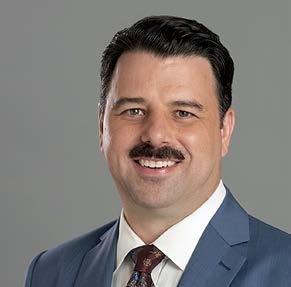
he joins the Duke Law faculty from yeshiva university’s Benjamin N. cardozo School of Law, where since 2015 he has taught courses on torts, copyright, innovation and intellectual property, and design law, and directed its Intellectual Property & Information Law Program. he also has served as associate dean for faculty development.
Buccafusco is a graduate of Georgia tech and the university of Georgia School of Law and earned a master’s degree in the history of culture from the university of chicago. from 2009 to 2015 he was a faculty member of chicago-kent college of Law at the Illinois Institute of technology, where he won the university-wide excellence in teaching award in 2013.
In the fall semester, Buccafusco will teach copyright and torts, and he will teach Design Law next spring.
“chris has an incredibly broad scholarly skill set, and his body of work reflects sophisticated doctrinal, empirical, experimental, and theoretical work in a number of substantive areas,” says Lanty L. Smith ’67 Professor of Law Joseph Blocher.
“he is such a provocative, insightful scholar,” adds william Neal Reynolds Professor of Law James Boyle. “his work on design has been very influential, as has his empirical work on everything from the concept of ‘tarnishment’ to the special value that creators assign to their own creations.
“Just as importantly, chris is a wonderful colleague. he is, famously, one of the nicest people in legal academia. he is a great teacher and a good friend — the kind of person who makes an institution better. we are so lucky to have recruited him.”
Raised in augusta, Ga., Buccafusco’s parents were both scientists, a path he pursued for a short time at Georgia tech before switching to an interdisciplinary humanities program. at his father’s urging he applied to law school, where his studies didn’t click until he discovered an intellectual kinship with certain faculty members.
“I was a really grumpy first-year student who just didn’t get it at all and didn’t do well,” he recalls. “and then I met some faculty members who I started talking to about research and I realized, ‘this is pretty cool. you get to write and think about ideas and it’s not just abstract — it matters to people’s lives.’”
Buccafusco laid the groundwork for his own academic career during his master’s program at the university of chicago, where he developed connections between law and other disciplines that form the basis for much of his scholarship. he also met frequent collaborators John Bronsteen and Jonathan Masur, with whom he has teamed on scholarship that applies findings from the social sciences to questions of public policy, including crime and punishment.
their book Happiness and the Law (university of chicago Press, 2015), which advocates for well-being analysis as the proper measurement of human welfare, is an extension of previous scholarship that incorporates the relatively new field of happiness research. this includes “well-Being analysis vs. cost-Benefit analysis,” 62 Duke Law Journal 1603 (2013), and “welfare as happiness,” 98 Georgetown Law Journal 1583 (2010), in which they argue, “[w] ell-being is neither preference-satisfaction nor nature-fulfillment but rather happiness or positive affect — feeling good. ... If we are right that happiness constitutes well-being, then law and public policy should turn their attention in that direction insofar as they aim to improve people’s lives.”
Matthew adler, the Richard a horvitz Professor of Law and professor of economics, philosophy, and public policy, calls Happiness and the Law “a pioneering text” that explores what it would mean to center legal doctrines and institutions on happiness. adler says Buccafusco’s scholarship on happiness adds to a body of revisionary literature developed over the last several decades that is having a significant influence on governmental practice in some countries.

By nature an interdisciplinary scholar and bridge-builder, Buccafusco plans to organize a conference at Duke Law on the relationship between health, innovation, and well-being, and how the ways in which health and innovation are regulated improves — or fails to improve — people’s lives.
“I think it’s an important project for the law to take on,” he says, noting that adler and elvin R. Latty Professor arti Rai are among the leading scholars working at the intersection of administrative law, health law, and intellectual property.
In “Drugs, Patents, and well-Being,” 98 Washington University Law Review 1403 (2021), he and Masur write about how the patent system incentivizes the development of innovations, especially in the pharmaceutical industry, that make money for their inventors rather than improve human welfare. they propose reorienting pharmaceutical incentives “toward drugs that will have a significant impact on welfare, particularly for poorer and underserved populations, and away from drugs that are profitable but do little to improve human life.”
ance for price increases rose, and explored the implications for behavioral economics, pricing practices, and legal reform.
for the 2021 paper, “Measuring Brand congestion in Bordeaux: too Many towers, hills, and crosses?” Buccafusco, Masur, and Ryan whalen conducted an empirical analysis of more than 12,000 wine producers in Bordeaux, france, finding a high prevalence of similar names: More than 28% of the producers have an identical or virtually identical name to at least one other producer. this creates difficulty for new producers entering the market and confusion among wine consumers, they write. further study on the topic is underway that will shed light on how similar or distinctive names affect wineries’ abilities to benefit from their investments, improve their products, and improve their sales.
Buccafusco has written widely on intellectual property rights in product and fashion design, and how design protection regimes can balance incentives and competition. In “Disability and Design,” 95 New York University Law Review 9521021 (2020), he reviews how antidiscrimination and social welfare laws have driven accessibility design and discusses how policymakers can utilize incentives to encourage innovation in accessible technology.
In “Intelligent Design,” 68 Duke Law Journal 75 (2018) he, Masur, and Mark Lemley point to failures in IP law’s screening regime that make it too easy for designers to gain protections that are overly broad and propose a new design protection framework that would balance incentives and competition.

Buccafusco is a frequent commentator on issues of copyright infringement in popular music, and in the essay “there’s No Such thing as Independent creation, and It’s a Good thing, too,” forthcoming in the William & Mary Law Review, he rethinks the current standard of originality and copying in copyright law, rejecting the independent creation doctrine as based on outmoded and disproven psychological assumptions about how human brains and memory work. the source of creation is essentially unknowable by outsiders, he says, and the doctrine’s central role in copyright law privileges plaintiffs’ claims over those of defendants. he proposes treating each party’s assertion of independent creation equally or eliminating the doctrine from copyright law altogether.
“Rather than asking whether an author copied earlier works, we might simply ask whether the work is sufficiently different from earlier works that copyright law wants to treat it as valuable — i.e., valid or non-infringing,” he writes. “this change would focus the law’s attention on what matters most, while removing the distortion and expense of litigating independent creation.”
Much of Buccafusco’s research involves employing empirical and experimental methods to test the real-world effects of laws, legal policies, and practices. In “framing Vaccine Mandates: Messenger and Message effects,” forthcoming in the Journal of Law and the Biosciences, he and co-author Daniel hemel surveyed u.S. adults on a new coVID-19 employer vaccine requirement and found approval rose by about 13 percentage points when the policy was recast as an agency testing mandate rather than the president’s vaccine mandate. and in “Price Gouging in a Pandemic,” forthcoming in the Ohio State Law Journal, he and co-authors hemel and eric talley surveyed consumers to find the conditions under which their toler-
applying research methods to topics of broad interest has brought Buccafusco notice outside academia. a 2014 article he cowrote for Slate on the economics of reclining seats on airplanes received widespread media coverage and is still referenced when the perennial hot-button topic comes up. he co-authored a commentary for Billboard magazine arguing that unlike previous forms of “payola” — paying radio programmers to play songs without disclosing the payment — allowing artists to give up royalties to get their songs on Spotify playlists benefits consumers by providing them with more musical variety. Buccafusco and co-author kristelia Garcia expand on the topic in “Pay-to-Playlist: the commerce of Music Streaming,” forthcoming in UC Irvine Law Review, analyzing the history of payola and its application to modern-day digital music streaming platforms to argue that regulators should adopt a hands-off approach.
“chris Buccafusco is one of the most exciting thinkers in our field,” says clinical Professor Jennifer Jenkins ’97, who directs the center for the Study of the Public Domain. “I have followed his work for years — particularly his empirical work challenging commonplace assumptions about creator and consumer behavior, and about the public domain. I’m ecstatic that he will be bringing his energy and talent to our community.”
Buccafusco notes that relocating to North carolina has several advantages: more room for his wine collection, Durham Bulls games, and proximity to atlanta, where he has close family and a favorite baseball team. he also is looking forward to making connections across disciplines at a world-class university and being part of a law faculty he calls “brilliant, collegial, thoughtful, creative, and collaborative” in many ways.
“It’s exciting to feel like I’m joining a community where people take their scholarship and their studies really seriously, but are also respectful and friendly,” he says. “I’m looking forward to being a part of that and getting to play with ideas with a new group of students and colleagues.” d — Jeannie Naujeck
“
c hris has an incr E dibly broad scholarly skill s E t, and his body of work r E fl E cts sophisticatEd doctrinal, EMpirical, ExpEriMEntal, and th E or E tical work in a nu M b E r of substantiv E ar E as.” — Professor Joseph Blocher


oR MoRe thaN a DecaDe, Mara Revkin has been conducting immersive field research on legal systems and social change in conflict-torn societies in the Middle east and North africa. her goal, she says, is to use empirical research to help policymakers and practitioners develop evidence-based strategies to build peace, security, and respect for human rights, and mitigate the root causes of violence and armed conflict.
Revkin, who is fluent in arabic and earned both a JD and PhD in political science at yale, has focused much of her empirical research on the experiences of Syrian and Iraqi civilians who were living in areas captured in 2014 by the Islamic State (IS), an Islamist insurgent group that established an authoritarian system of governance purportedly based on the original seventh-century “caliphate.” having earlier worked and conducted research in oman and egypt before and during the arab Spring and more recently with united Nations agencies and other humanitarian organizations in Iraq and Syria, she has crafted an ambitious research agenda that incorporates international and comparative law, human rights, transitional justice, criminal law, and property.
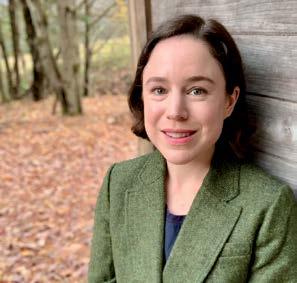
Revkin is joining the faculty as an associate professor after completing a fellowship at Georgetown university’s center on National Security and the Law. while at Georgetown, Revkin took a service leave of absence for six months to serve as an advisor to the united Nations in Iraq. Based in Baghdad, she led the drafting of an interagency assessment to inform the u.N.’s engagement with the Iraqi government’s efforts to repatriate more than 30,000 Iraqi nationals with perceived or actual IS ties, including many children and wives of IS fighters, who have been confined to closed camps and prisons in northeast Syria since the group’s defeat there in 2019.
“Mara Revkin is recognized globally for her exploration of some of the most cutting-edge questions in national security and international and comparative law — from how proscribed groups like IS use governance to gain legitimacy to how human rights violations by governments make populations more sympathetic to these groups to the role of multilateral institutions like the u.N. in developing relevant norms,” says clinical Professor Jayne huckerby, who directs the International human Rights clinic. “we will benefit immensely
from her unique insights on fact-finding, ethics, standard-setting, scholarship, and advocacy on these and more questions.”
Revkin will teach a seminar on transitional justice in the fall semester and Property in the spring. her research has identified property rights and ownership as important factors in state-building, migration and displacement decisions, and peacebuilding processes in Iraq, Syria, and other conflicts where airstrikes have resulted in mass casualties and catastrophic damage to buildings and infrastructure, prompting civilians to demand accountability and compensation.
a native of New haven, conn., home to a major resettlement program for refugees since 1982 and one of the first “sanctuary cities” to adopt policies that protected the rights and safety of undocumented immigrants, Revkin grew up in a community that took pride in welcoming people from around the world who had fled violence and economic hardship in their countries of origin. after the terrorist attacks of Sept. 11, 2001, when Revkin was in her first week of high school, the wars in afghanistan and Iraq brought a growing number of afghan and Iraqi refugees to New haven, which contributed to her interest in the Middle east and conflict-related migration. as an undergraduate at Swarthmore college, she studied arabic, spent a semester in cairo, egypt, and reported on immigration issues as an intern for The American Prospect after college, Revkin spent a year living in oman on a postgraduate fulbright fellowship, where she interviewed female poets who were writing about the changing role of women in omani society and
who also sometimes used their art to “subtly and creatively express dissent” amid pervasive government censorship of the media.
Revkin’s fulbright project confirmed her commitment to field research and furthered her interest in the ways citizens organize outside of the state when they have grievances with their governments. as a junior fellow at the carnegie endowment for International Peace at the start of the arab Spring in 2011, she explored legal and constitutional reforms spurred by these largely peaceful protest movements, the focus of several early published works. one article, which emerged from fieldwork in egypt’s Sinai Peninsula during her 1L summer in 2013, when she interned for the cairo office of human Rights watch, found that residents of North Sinai often preferred to resolve disputes through non-state Islamic courts due to their “growing disillusionment with state and tribal judiciaries, which are often viewed as complicit in the disenfranchisement of the Bedouin and expropriation of their lands.”
the rise of IS, coinciding with the start of Revkin’s legal and doctoral studies, led her to shift the focus of her research from peaceful activism to movements that use violence to purse their political goals. her work shows how IS exploited the grievances many Iraqis and Syrians held towards their governments, which were failing to meet citizens’ most basic needs for security and services while also engaging in repression and sectarian discrimination against Sunni arabs. (Both the Iraqi and Syrian governments are Shia-led.) “IS used the perceived failure of the arab Spring to argue that peaceful activism is ineffective and violence is the only way to achieve social and political change,” she says.
But through a series of empirical studies, including a door-to-door survey of more than 1,400 residents of Mosul, which IS captured in 2014 and controlled as its capital until 2017, Revkin demonstrated that violence was not the group’s only tool. Rather, it gained acceptance and cooperation from local populations through
by IS victims as “collaborators” even if they were only cooperating in order to stay alive and did not directly participate in violence.
while the prospects of reconciliation seem dim in such places as Sinjar, where IS committed a genocide against the yazidi ethnoreligious minority, Revkin found in two related co-authored studies that preferences for punishment and reintegration of different types of “collaborators” depended heavily on their closeness to the group and on the severity and voluntariness of their association. wives of fighters and cooks who prepared food for fighters, for example, were treated more harshly than IS municipal service workers who did not work directly with fighters. Revkin contrasts these nuanced perceptions with the blunt “one-punishmentfits-all” approach taken by the Iraqi government, which detained more than 19,000 Iraqis on terrorism-related charges between 2014 and 2018 in what many perceive as collective punishment. her research warns that new grievances with state-perpetrated injustice increase the likelihood of future conflict.
those insights have made Revkin’s research relevant to u.N. agencies in Iraq and Syria. Since 2017, she has conducted research with and advised u.N. agencies on a range of topics including transitional justice and the prospects for reintegration of children recruited by armed groups, security sector reform through community policing, and community-based reintegration of Iraqis with family ties to IS.
its development of a system of governance that promised a reprieve from the past and an improvement in their lives.
“IS offered an alternative system of law, order, and governance — including its own courts, police, and legislation-like rules — that initially appealed to a critical mass of Syrians and Iraqis whose governments were failing to provide justice, basic services, and security,” Revkin writes in her job talk paper, “Insurgent Legality: the Rise and failure of the Islamic State in Iraq and Syria,” which she is also developing into a book. “however, these same institutions ultimately contributed to the Islamic State’s collapse as the group failed to fulfill its ambitious promises and became increasingly corrupt, repressive, and discriminatory over time.”
the elements of IS statecraft Revkin has studied include its constitution-like “charter of the city,” which set out reciprocal obligations between the self-described caliphate and its citizens. one award-winning paper charted the uptick in burdensome and coercive revenue-raising policies the group implemented in Syria as it faced increased military pressure.
Revkin’s comprehensive study of IS also included in-depth interviews with more than 300 Iraqis and Syrians who lived under its rule, observation of trials of alleged IS members, and the door-to-door survey of 1,458 residents of Mosul that resulted in several publications. one on displacement decisions in Mosul found that even though many residents of the city were opposed to IS, it was very difficult for them to leave due to IS’s severe restrictions on travel and because they feared leaving property and family members behind. these “stayers” were then widely perceived
“as an academic, it has been the learning experience of a lifetime to play a very small part in supporting the work of humanitarian practitioners and policymakers in Iraq and Syria,” she says. “I am very excited to bring what I have learned to Duke through my teaching and look forward to mentoring students with research or career interests in human rights, peacebuilding, and transitional justice.”
Revkin’s work relating to IS maps a new research agenda for the study of insurgent groups’ legal systems. “the key policy implication is that until states are perceived as legitimate by their citizens, which will require major reforms to address corruption, strengthen rule of law, and protect human rights, violent non-state actors like IS will continue to exploit citizens’ grievances to build support for their alternative systems of order,” she says.
In addition to advancing that seminal research at Duke, she is bringing a host of other projects to her faculty post, including one that examines the effects of the american civil war on the development of police institutions and a co-authored multi-country study of the effects of racial and gender bias on citizen-police relations in uganda, Liberia, the united States, and Iraq.
“I am incredibly lucky to be joining the law faculty at Duke and will do my best to pay this opportunity forward to my students and colleagues,” Revkin says. d — Frances Presma

“Mara rE vkin is r E cogniz E d globally for h E r E xploration of so ME of th E M ost cuttingE dg E qu E stions in national s E curity and int E rnational and co M parativ E law.”
— Clinical Professor Jayne Huckerby


oNathaN SeyMouR’S research focuses on the distinct legal culture of bankruptcy courts that he encountered over five years as a litigator and how the unwritten practices of judges and practitioners influence the governance of both commercial and consumer reorganizations.
Seymour, who has taught and researched at Duke for the last three years through the Law School’s Visiting assistant Professor (VaP) program, is joining the Duke Law faculty as an associate professor of law. he will teach contracts and continue a seminar he has taught for the last two years, current Debates in Bankruptcy Law.
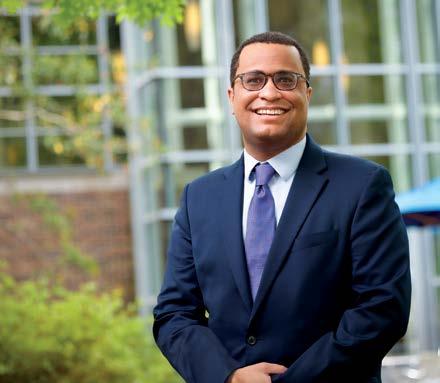
“having had the pleasure of mentoring and also co-authoring an article with Jonathan, I find him a highly gifted young scholar who combines keen intellect with real insight and judgment,” said Steven L. Schwarcz, the Stanley a. Star Distinguished Professor of Law & Business. “unlike most other scholars in the field, he addresses both corporate
and consumer bankruptcy as well as important comparative insolvency-law issues. furthermore, Jonathan’s a truly delightful and empathetic colleague who epitomizes the ethical definition of wisdom, ‘who is wise? he who learns from all people.’” a native of the united kingdom and a graduate of oxford university and George washington Law, Seymour developed an interest in bankruptcy during a judicial internship his 1L summer. (an early assignment was a memo on Stern v. Marshall, a 2011 Supreme court decision that curtailed the power of bankruptcy judges on constitutional grounds.) as a first-year associate at wilmerhale in washington, D.c., he found himself engaging with bankruptcy scholarship as he researched a policy report on proposed reforms to chapter 11 of the Bankruptcy code. Later, as he litigated cases on behalf of creditors, he wondered why bankruptcy judges weren’t more uniform in their application of the law and why his clients often lost at trial in bankruptcy court but won on appeal.
“I kept building up this store of unanswered threads in my head that I wanted to keep pulling on,” he says. “academia seemed like the place where I could continue to think and research and write about bankruptcy without the time constraints that I had in practice, and where I’d get to teach as well, which is something that I really enjoy doing.”
Seymour has developed a research agenda informed by his time in practice, when he saw how “judges and lawyers in a purportedly uniform federal system in fact frequently talk past each other.” Bankruptcy courts have developed practices that give judges the flexibility to manage intricate cases, resolve them quickly, and maximize value for stakeholders, he says. But in business bankruptcy, this
unwritten law tends to favor sophisticated litigants who appear frequently and can maneuver the case in a direction that favors their clients. It can also produce “rough justice,” in which decisions made in pursuit of the most efficient outcomes don’t jibe with broader legal principles or methods of interpreting statutes, including those followed in appellate courts and the Supreme court.
In “against Bankruptcy exceptionalism,” 89 University of Chicago Law Review (forthcoming 2022), Seymour uses the court-approved reorganization plan of Purdue Pharma to illustrate the problem. the plan included a third-party release that shielded the controlling Sackler family from future civil liabilities relating to Purdue’s role in the opioid crisis, including thousands of lawsuits in which states and individuals are seeking trillions of dollars in damages. critics of the company objected and the district court rejected the release on appeal, setting up a high-stakes decision from the court of appeals later this year, but such protection from third-party claims isn’t unusual in large and complicated bankruptcies, Seymour notes.
“Purdue’s plan straightforwardly cohered with deeply-rooted norms within bankruptcy culture on the best approach to resolving complex bankruptcy disputes, and likewise reflected the direction in which Purdue, as debtor-in-possession, had been steering the case from the beginning,” he writes. “In the bankruptcy world, it is the district court’s decision, not the proceedings in bankruptcy court, that is the outlier.
“everywhere in bankruptcy, judges alter rights, create remedies, and steer cases out of fidelity to unwritten norms that seek to advance what those within the bankruptcy culture understand to be the better and more efficient functioning of the bankruptcy system.”

In the article, Seymour discusses a variety of potential solutions to the problems created by the special treatment of bankruptcy, including reforming the appeals process, changing venue rules, and balancing the bench with judges from other areas of practice. But his scholarship has not been limited to examining the exceptional nature of bankruptcy.
In “corporate Restructuring under Relative and absolute Priority Default Rules: a comparative assessment,” 2021 University of Illinois Law Review 1, he and Schwarcz analyze a european commission proposal that courts handling corporate insolvencies, in contrast to u.S. bankruptcy courts, have the option of allowing junior creditors or shareholders to recover payment even before senior claims have been paid in full, so long as senior classes have been treated more favorably. they write that the european rule, known as relative priority, would be “antithetical to fairness,” and “will scramble the usual incentives that shape bargaining in insolvency, which takes place in the shadow of an absolute priority rule default rule.” Seymour, who spent a year studying German law at the university of Bonn as an undergraduate, says he hopes to apply a comparative lens to other bankruptcy questions with future projects.
his writing on consumer bankruptcy issues also builds on his practice experience. In “the Limited Lifespan of the Bankruptcy estate: Managing consumer and Small Business Reorganizations,” 37 Emory Bankruptcy Developments Journal 1 (2020), he examines the court’s supervision of debtors’ assets following reorganization, which in some jurisdictions lasts for the duration of the debtor’s five-year repayment plan. Seymour argues for a “light-touch approach” that minimizes court oversight and thereby reduces the burdens and costs on debtors as they attempt to rebuild their finances.
“Duke Law School is extraordinarily lucky to have Jonathan Seymour join us,” said Professor Sara Sternberg Greene, who studies the relationship between law, poverty, and inequality and teaches a course focused on the consumer bankruptcy system. “Jonathan’s fantastic bankruptcy work is informed by his years of practice experience and it shows. his insights are novel and important. Jonathan is also a true pleasure to have as a colleague and I am thrilled he will be joining us.”
Seymour, who says a unifying theme of his research in the commercial and consumer spheres is a belief in “modesty about what bankruptcy’s role is,” plans to explore the implications of a light-touch bankruptcy system in future projects. he thinks bankruptcy would ultimately benefit if it weren’t seen as a space apart from the law that is too complex for other practitioners and courts to understand, and instead was in constant conversation with other areas of the law about, for example, statutory interpretation.
“we can have a workable Bankruptcy code and a Bankruptcy code that may work better than the code we have now if we use the same methods of statutory interpretation that the Supreme court uses cutting across federal statutes, and that with some margin of appreciation, district courts and courts of appeals use in non-bankruptcy statutory interpretation cases,” he says.
“If I’m right in that claim, then bankruptcy obviously has a lot to learn from how other fields do statutory interpretation. But I also think generalist statutory interpretation could be sharpened by looking at some of the kind of really hard problems that you get when you’re trying to deal with an integrated statute, like the Bankruptcy code.”
when Seymour arrived at Duke in 2019, he didn’t know that his time in the VaP program — which supports emerging scholars interested in appointment as tenure-track members of a law faculty with research support and feedback and an opportunity to hone their teaching skills — would coincide with a pandemic. But, he says, he wouldn’t hesitate to recommend the program to other aspiring academics.
“the wonderful thing has been how many people on the faculty were interested in reading my work, talking about my work, and supporting me on the job market, and that experience persuaded me even before I went on the market [that] the dream situation at the end of the day would be an offer to stay on a Duke,” he says. “Very happily, that’s where things ended up.” d — Andrew Park
“
j onathan’s fantastic bankruptcy work is infor ME d by his y E ars of practic E E xp E ri E nc E and it shows. h is insights ar E nov E l and i M portant.”
— Professor Sara Greene

oN PetkuN uses large-scale data sets to study the legal and economic organization of such public institutions as federal and state civil justice systems and the military. his goal: to help improve their efficiency, service, equitability, and accessibility to all.

Petkun, a veteran of the u.S. Marine corps who holds a JD from yale Law School and a PhD in economics from the Massachusetts Institute of technology, joins the faculty in July after completing a clerkship with Judge Jeffrey a. Meyer of the u.S. District court for the District of connecticut. he previously clerked on the u.S. court of appeals for the District of columbia circuit, first for the late Judge Stephen f williams and then for chief Judge Sri Srinivasan and several other circuit judges. he has also been serving as a senior research affiliate at yale’s arthur Liman center for Public Interest Law, having initially joined the center in 2019 as the Senior Liman Research fellow in Residence.
“we are extremely fortunate to welcome Jon Petkun to the Duke Law community,” says Michael frakes, the a kenneth Pye Professor of Law and professor of economics. “he is an innovative and dynamic scholar who draws on his training as both an economist and a lawyer to bring a rich analytical toolkit to his studies.”
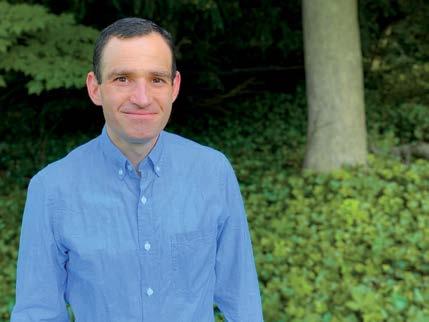
Petkun, who taught Legal writing and analysis at yale Law during his fellowship, will teach civil Procedure in the fall semester. for his job talk at Duke Law, Petkun presented “Nudges for Judges: an empirical analysis of the “Six-Month List.” the list in question is a congressionally mandated report published semi-annually since 1990 that identifies district court judges who have civil motions pending on their dockets for six months or longer. Sometimes called the “list of shame,” it is intended, he says, to exert pressure on judges to move cases through the system quickly, rather than allowing them to get delayed because of scheduling and other logistical issues. an earlier version of this study formed a chapter of his PhD dissertation, titled “essays in the Law & economics of Public Institutions.” for the study, Petkun constructed a data set of nearly 500,000 federal district court motions filed in federal civil cases from 2005 to 2014 to determine whether the list had its desired effect — causing judges to process motions more quickly — and what effect the list had on the outcomes of those motions. Did judges cut corners in an effort to decide cases more quickly? while Petkun found the list “surprisingly effective” at moving motions along, he saw little evidence that it negatively impacts the quality of judgements. But he found that it creates an “unequal burden” on judges: young judges, women judges, and judges of color were more responsive to it, while older, white, male judges were less so.
Petkun proposes a handful of reforms that he says would help “even out the effects of the list,” such as adjusting it to record the number of overdue motions a judge had at any time in the previous six months, not just at the time of publication of the list. he also suggests reporting the average or median number of months individual judges take to adjudicate motions, so as to give them credit for overall timeliness.
“Sometimes, in a really complex case, there are good reasons for a judge to take longer than six months to resolve a motion, and we wouldn’t want to encourage
the judge to cut any corners,” he says. “when judges get credit for their overall timeliness, they may not feel so much pressure to prematurely resolve one or two of the legitimately complex motions.”

Petkun also proposes including additional metrics to showcase a judge’s overall productivity, such as the number of written opinions the judge issued or the number of times oral arguments were heard during the reporting period.
“I’m really passionate about using digital docket data to map out the allocation of judicial resources, and with that, to think about whether there are procedural reforms or even substantive legal reforms that could result in better allocation of judicial resources and improve access to justice for everyone,” he says. “In my research, I am interested in gaining a better understanding of how lawyers really practice and how judges actually judge.”
Petkun is also seeking ways to make systems both more efficient and accessible. his study of the six-month list arose, he notes, from a concern that it could incentivize judges “to deprive litigants of their full opportunity to be heard.” two of his ongoing projects on court procedures and practices are similar in inspiration and in methodology. one examines the utility and impact on litigants in civil cases of court filing fees which, he argues, make only a negligible contribution to court administration costs yet can be prohibitive for poor litigants. the other seeks to “empirically map the distribution of complexity and resource-intensivity of federal civil litigation,” with a view to better understanding whether civil procedure rules and court practices favor elite lawyers and litigants.
“Reforms to the judicial process need to be considered holistically,” Petkun says. “they should be expeditious and relatively inexpensive to implement, but they should also lead to the right outcomes and give people an experience of dignity.”
Petkun says that he is more interested in exploring the questions and learning what the data he uncovers in his research presents, rather than making immediate value judgments.
“Legal academics tend to want to be able to say, ‘This is the right answer, and these are the policy implications,’” he says. “I place a lot of value on empirical rigor and feel that if we look for easy answers, we sometimes end up with bad policy solutions. So what I want to do with research largely is just get more information out there and let various stakeholders use it to develop better policies.”
“Jon Petkun’s work stands to make significant contributions to literatures about judicial behavior, civil procedure, federal courts, and access to justice,” says Professor Marin Levy, a scholar of federal courts and judicial procedure. “he further stands to inform debates among policymakers and even members of the judiciary themselves on key questions ranging from case management to court structure.”
two papers included in Petkun’s PhD dissertation emerged from studies, conducted with colleagues, that examine separate aspects of military policy and practice: whether the u.S. army’s use of cash re-enlistment incentives facilitate the retention of the most qualified individuals (they often don’t); and whether housing stipends paid to members of the military result in higher housing costs for civilians living close to bases. “we find evidence they do,” he says.
Petkun refers to his own four years of service in the u.S. Marine corps as a logistics officer and foreign military advisor, followed by two more in the Marine corps Reserve, as an enormous privilege. he was in high school at the time of the Sept. 11, 2001, terrorist attacks, and those events motivated him to enlist following his 2007 graduation from Swarthmore college.
“I was part of a generation that felt very acutely impacted by those events,” he says. “I developed the feeling very early on that it was my duty to serve in some way.
“I think it’s really important to have a military that is diverse and representative of the country that it serves. I also think everyone has the duty to make our institutions as representative as possible. I don’t think military service is the only way to serve by any means. that was just the way that I chose to serve. and I loved it.”
Petkun, who attained the rank of captain, received a Navy and Marine corps commendation Medal, a Navy and Marine corps achievement Medal, and campaign medals for his tours of duty in Iraq and afghanistan. while studying law at yale, he worked with the Veterans Legal Services clinic, helping clients access Va benefits and navigate issues arising from their unfavorable discharge statuses, which were often the product of service-connected PtSD, traumatic brain injury, or experiences of military sexual trauma.
he retains an interest in the military bureaucracy as an element of his research agenda, including how it impacts the labor market. “young people in high school see the military as a job option,” he says. “that maybe shapes some of the choices they make.”
Petkun notes that he loves teaching, and says he is looking forward to advancing his research as a member of the Duke Law faculty. “In addition to the extraordinary faculty and students, the school’s reputation speaks for itself,” he says, pointing to the work on procedure and the judiciary being done by faculty scholars and at the Bolch Judicial Institute and the wilson center for Science and Justice. “Duke Law is going to be a really wonderful place for my research to grow and for me to learn.” d —
Maria Bajgain
“
j on pE tkun’s work stands to M ak E significant contributions to lit E ratur E s about judicial b E havior, civil proc E dur E , f E d E ral courts, and acc E ss to justic E .”
— Professor Marin Levy

LaNa foGeL, a VeteRaN PuBLIc DefeNDeR who has practiced at both the state and federal levels, is joining the faculty as a clinical professor of law and inaugural director of its new criminal Defense clinic.
as a trial attorney at federal Defenders of San Diego since 2017, fogel represented indigent persons accused of criminal offenses in federal court. She earlier served as a public defender in Boston and as a fellow in the criminal Justice Policy Program at harvard Law School. a california native, fogel is a graduate of New york university and Nyu School of Law.
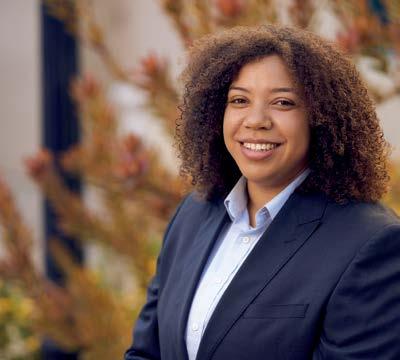
“elana fogel’s career trajectory has demonstrated her firm commitment to actualizing justice for clients and teaching law students through their experiences as advocates and counselors,” says clinical Professor Ryke Longest, director of clinical and experiential programs. “her leadership will create wonderful opportunities for Duke Law students, and strategic support to put science-based criminal defense to work in our community.”
“elana is committed to creating a clinic that is rooted in the Durham community and responsive to local needs,” adds clinical Professor kate evans, director of the Immigrant Rights clinic, who led the director search. “I’m thrilled about the experience she brings in state and federal criminal defense and her commitment to working with students on concrete proposals for reforms.”
when it launches in the spring 2023 semester, the criminal Defense clinic will be the 12th in the Law School’s clinical program. funded with a $2.5 million

commitment from the Barton family foundation, the clinic will train students in direct representation of clients in criminal cases, provide them with a grounding in scientific methods and data analysis, and educate them to become leaders in ending racialized mass incarceration. (Read more, page 6.) the clinic builds on the Law School’s existing strengths in criminal law, including the wilson center for Science and Justice, the wrongful convictions clinic, the center for criminal Justice and Professional Responsibility, the appellate Litigation clinic, and interdisciplinary collaborations with faculty and students throughout the university.
“elana fogel will bring to our new criminal defense clinic deep trial experience in a range of jurisdictions, work with diverse populations of defendants, policy experience and vision, dedication to local collaboration, and powerful enthusiasm for the transformative possibilities of clinical legal education in Durham and beyond,” says L. Neil williams, Jr. Professor of Law Brandon L. Garrett, who directs the wilson center. “we are so thrilled to welcome her as a colleague and to launch this impactful new clinic.”
fogel says the new clinic will be on the cutting edge of training new attorneys to do “necessary, urgent, and important” work.
“the unique emphasis of this clinic and the groundbreaking space that Duke Law is filling by incorporating data and science at the trial advocacy level as well as in policy reform is especially exciting,” fogel says. “this interdisciplinary approach is the vanguard of criminal defense and expands the impact that trial-level attorneys can have. the Law School’s focus on collaboration and innovation and the opportunity to empower students to be creative advocates for justice drew me to this position.
“I’m especially looking forward to joining the existing criminal justice centers and clinics and expanding upon the broad expertise that they have developed with our focus on trial-level advocacy. these collaborations will enable students to develop literacies and tools that we can share with the larger community of practicing criminal defense attorneys.”
fogel entered Nyu Law as a public interest scholar with a strong interest in addressing racial inequities in the legal system and in policing. “examining the human impacts of mass incarceration and the racial disparities in the criminal justice system really motivated me to focus in that space,” she says. “Diving into the doctrinal complexities of criminal law, and the gaps between ideals and reality, just deepened that passion.”
her experiences in Nyu’s criminal and community Defense clinic, where she worked at the Neighborhood Defender Service of harlem, and in its children’s Rights clinic, where she assisted juvenile clients in delinquency and child welfare cases, laid the practical foundation for translating the interests of a self-described young idealist into a rewarding career, fogel says. advocating for nationwide criminal justice policy reform as an intern at the acLu’s Initiative to combat Mass Incarceration and providing indigent clients with criminal defense and immigration support during an internship at the Bronx Defenders offered further opportunities for experiential learning.
as a post-graduate fellow at harvard’s criminal Justice Policy Program, fogel’s work included advocating for oversight and transparency in the use of emerging science and technologies in policing and data-driven approaches to combating mass incarceration. She says she has been fortunate to be part of organizations that prioritize science-based defense strategies and looks forward to imparting them to a new generation of lawyers.
“foundational trial advocacy skills absolutely will be a focus of the clinic,” she says. “But understanding both the larger context of mass incarceration that defines the cases the students will handle and extrapolating from their individual case experience to think systemically about how to use data and science both as an individual client advocate and from a reform perspective is what will make the clinic unique and such a powerful experience for the students that join us.
“I’m really looking forward to helping students understand that data is not meant to displace some of the more traditional or foundational modes of client representation but to enhance them and add another tool in the advocacy toolkit.” throughout her career fogel has welcomed opportunities to mentor and teach. She credits a high school basketball coach with sparking a love of teaching by encouraging her to be a coach herself for a summer. During and after college she volunteered at Girls for Gender equity in Brooklyn, where she mentored young women of color in an advocacy and leadership program and joined in efforts to address gender-based violence. as a legal fellow at harvard she led two weekly seminars and directed law students in bail policy reform initiatives and advocacy around the oversight of new science and technology in policing. and in her most recent position she conducted trial skills trainings for peers and new law graduates and law school interns on topics such as cross-examination, closing arguments, and building trust with clients.
In her teaching fogel says she aims to create a collaborative space where the skills, context, and background that instructors provide is complemented by students’ ideas and perspectives.
“Mentors have played a tremendously important role in my own career. Providing that same guidance to future advocates for justice is one of the chief reasons that I’m so excited to take on this role at Duke Law.
“It’s so rewarding to foster the exponential skill growth that younger attorneys can have,” she says. “I find it to be a symbiotic process where students learn from our practice skills and experience while bringing new energy and ideas. together, we can keep pushing the bar forward.” d — Jeannie Naujeck

“Elana is co MM itt E d to cr E ating a clinic that is root E d in th E d urha M co MM unity and r E sponsiv E to local n EE ds.”
— Clinical Professor Kate Evans


LLISoN koRN began her legal career at the Bronx Defenders, where she represented parents at risk of losing custody of their children as part of an interdisciplinary team of attorneys, investigators, social workers, and advocates. the experience applying the New york public defender organization’s model of “holistic defense,” korn says, taught her the value of collaboration, creativity, and “trying to push against systems and find justice in places where it doesn’t seem like justice exists,” and it has informed her subsequent career as both a lawyer and a teacher.
korn becomes director of the health Justice clinic in July after serving as assistant dean for experiential education and director of the food Law and Policy clinic at ucLa School of Law. She succeeds clinical Professor allison Rice, who is retiring after 28 years on the Duke Law faculty.
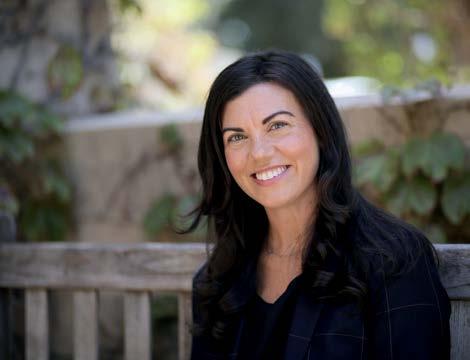
known as an innovator in clinical pedagogy and experiential curriculum design, korn oversaw the rapid growth of opportunities for hands-on learning
at ucLa, which has over the last five years added more than a dozen clinics and practicum courses over the last five years and the expansion of trial advocacy and externship programs. She serves on the Best Practices committee of the clinical Legal education association, and during the pandemic, she led workshops for the american association of Law Schools on adaptive teaching methods and confronting structural barriers perpetuated by the legal profession through clinical legal teaching and practice.
“allison is a respected leader in the field of clinical legal education with a strong and visible commitment to centering social justice and race in the curriculum,” said clinical Professor Michelle Nowlin JD/Ma ’92, co-director of the environmental Law and Policy clinic, who led the search committee. “her practice and clinical background are grounded in the varied causes of health inequities — such as food insecurity, environmental injustice, and lack of affordable housing — making her uniquely qualified to bring an interdisciplinary approach to our health Justice clinic.”
the health Justice clinic offers students the opportunity to develop practical lawyering skills through direct representation of low-income clients facing serious illness. It has been providing free legal assistance to indigent clients with hIV since 1996 and began serving clients with cancer in 2015. Supervised by clinical faculty, students help clients access Social Security and private disability benefits, develop end-of-life documents such as wills, powers-of-attorney, advanced directives, and those relating to guardianship for their children, and address claims relating to insurance, privacy, and discrimination.
korn’s interest in public interest law and clinical education was galvanized during law school at the university of Mississippi as a co-founder of the Student hurricane Network, which organized student trips to the Gulf coast to help people whose lives had been upended by hurricane katrina. the trips were her first experience serving clients, being part of a legal team, and connecting theory she had learned in the classroom to the practice of law on the ground. “I really responded to the emergency room quality of direct action and saw that I could have an immediate impact,” she says.
after graduation, she joined the new family defense practice at the Bronx Defenders, where she represented clients facing child welfare proceedings in family court. Later, at National advocates for Pregnant women, she litigated on behalf of women who experienced chemical dependencies while pregnant, fought legislation aimed at pregnant women and parents, and led a grassroots campaign against an anti-abortion referendum in Mississippi.
korn’s academic career began when she was recruited to work in the revitalized clinical program at her alma mater. while there, she designed and taught Legal Problems of Indigence, a seminar and practicum examining the intersection of poverty and the legal system, an experience that would lead her to embark on a career in clinical legal education.
“I loved being in the classroom,” she says. “I felt like teaching gave me the same sort of rush, the same sort of sense of accomplishment and impact that I had when I was in court.”
During a two-year fellowship at the university of Baltimore School of Law, korn taught and supervised students in the school’s family Law clinic. the clinic provided direct services to clients in divorce, custody, and adoption matters, but also undertook advocacy projects in the community and at the Maryland state legislature. as much as she enjoyed teaching students to stand up in court, though, korn relished the opportunity to help them contextualize their direct legal work with broader advocacy strategies that could effect systemic change. that realization led her, following the fellowship, to accept the position at the ucLa clinic.
“this was an opportunity to build on individual lawyering experiences and collaborate with communities to tackle the longstanding problems that undergird their involvement with the justice system,” she says, adding that food law and policy lacks the polarization that can be an impediment to change in other practice areas in which she has worked. “we all have a story about food, we all have a connection to food — once everybody’s at the table acknowledging these connections, it’s easier to have challenging conversations.”
korn describes the clinic as doing “integrated advocacy” in which students weave together different strategies to resolve a problem and address food law and policy as it intersects with health, labor, immigration, the environment, criminal justice, and other issues. So in addition to drafting legislation and doing policy or statutory analysis, students partner with community groups or nonprofits, often within communities that have been neglected or discriminated against, so that they can see the legal work through the lens of people it affects the most. the clinic’s projects have ranged
from reforming school meals programs, reducing food waste, and improving access to healthy foods to supporting farmworkers and domestic laborers in the food industry, encouraging farmers to embrace safer and more sustainable agricultural practices, and holding corporations accountable for dangerous pesticide use.
“allison has an expansive view of health, and thereby an expansive view of health justice,” said Barak Richman, the katharine t. Bartlett Professor of Law and professor of business administration and a scholar of health care economics and policy. “She is at the very front lines of health policy — finding ways to improve population health in a world where wealth is criminally unequal and where resources are egregiously misallocated. Perhaps best of all, she understands how much lawyers and good cause lawyering can help.”
korn says she is excited to build on the “deep and rich legacy” of Duke’s health Justice clinic, the first in the modern era of clinical legal education at the Law School, as well as the clinic’s history of pairing direct legal services with impact work at the local, regional, and national levels. She also hopes to continue the clinic’s interdisciplinary approach and engagement with both faculty at the Law School and across Duke who are interested in health justice and related areas.
“I’m thrilled about joining Duke,” she says. “the more I understood the history of the health Justice clinic and got to know the extraordinary faculty here that engage in health law, it occurred to me that the most meaningful work I’ve done as a practitioner and law teacher has been in advancing health justice. My clinic projects with the greatest impact on students and client communities have been those concentrated on health and health justice. these projects aspire to make it easier for individuals and communities to access food, access health care, and be free from environmental harms. they’ve also been designed to attack the systemic and structural issues that have long-exacerbated barriers to access.”
“I can’t wait to leverage these experiences and continue the health Justice clinic’s commitment to serving the community and doing justice — to help students learn to resolve their individual clients’ immediate situations while developing strategies to facilitate transformative change.” d —

Andrew Park
“a llison is a r E sp E ct E d l E ad E r in th E fi E ld of clinical l E gal E ducation with a strong and visibl E co MM it ME nt to c E nt E ring social justic E and rac E in th E curriculu M .”
— Clinical Professor Michelle Nowlin

NIteD StateS DIStRIct couRt JuDGe Paul w. Grimm of the District of Maryland, a 2016 graduate of Duke Law School’s Master of Judicial Studies program, has been named the David f. Levi Director of the Bolch Judicial Institute effective Jan. 1, 2023. Grimm, who also will join the Duke Law faculty as a professor of the practice, succeeds David f. Levi, who will step down as director at the end of 2022.
“Judge Grimm will be an inspiring leader for the Bolch Judicial Institute and an outstanding addition to the Duke Law faculty,” says kerry abrams, James B. Duke and Benjamin N. Duke Dean of the School of Law. “he not only brings a judge’s experience and insight gained from 25 years on the federal bench but also a scholar’s commitment to the study of the judiciary and judicial processes. under David Levi’s leadership, and in just a few short years, the institute has become a leading voice for strengthening the rule of law, advancing judicial independence, and studying and improving the administration of justice. Judge Grimm brings the experience, enthusiasm, and vision needed to take it into its next phase. I look forward to working with him.” when he retires from the bench at the end of 2022, Grimm will have served 25 years as a federal judge; he was a magistrate judge for 15 years prior to his appointment to the district court in 2012. a widely recognized expert on electronic evidence, discovery, and civil procedure, Grimm has served on the advisory committee for the federal Rules of civil Procedure and has taught courses on evidence and civil procedure at the university of Maryland School of Law and the university of Baltimore School of Law. he is a retired lieutenant colonel of the u.S. army and served as a Judge advocate General’s (JaG) corps officer on active duty and in the u.S. army Reserve.
“It is an enormous honor to be joining this extraordinary faculty, led by such a dynamic dean, and to be able to work with them and the students at Duke,” said Grimm. “Moreover, to be able to work with the Bolch Judicial Institute to promote and further the visionary accomplishments that David Levi has achieved is the opportunity of a lifetime. with the strong support of the institute’s advisory Board, the institute’s flagship programs — such as the judicial master’s program, which I had the good fortune to attend, Judicature, and many conferences and symposia — will continue to thrive, and I look forward to bringing on board new initiatives that will strengthen the rule of law and judicial independence, both at home and abroad.
“I am profoundly grateful for the generosity of carl and Susan Bolch, who have made it possible for the institute to have achieved so much in such a short time,” he adds. “and I am truly looking forward to working with the exceptional staff of the institute, whose dedication and skill are instrumental in achieving the goals of the institute.”

Levi, the former dean of Duke Law School, has served as the institute’s director since it was established in 2018 by carl Bolch, Jr. ’67 and Susan Bass Bolch.
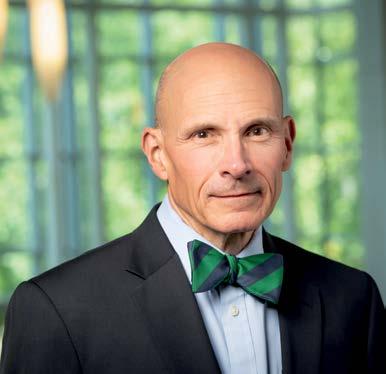
“I am so proud of what we have built in the Bolch Judicial Institute, and I can’t think of a more capable, thoughtful, or dedicated leader to continue the institute’s work than Judge Paul Grimm,” Levi says. “he has tremendous enthusiasm for the institute’s mission and a creative vision for building on our work to further advance the rule of law, support judicial independence, and strengthen the connection between the academy and the bench as we seek to improve the administration of justice. he brings deep expertise in law and technology, a broad view of the work of the judiciary, and a practical sense of the ways in which we can further support judges in their work — all of which will help him create new and exciting connections and opportunities for the institute, for the judiciary, and for Duke Law faculty and students. he is an outstanding leader and a terrific fit for the institute.”
Grimm was first appointed to the u.S. District court for the District of Maryland as a magistrate judge in february 1997; he served as chief magistrate judge from 2006 to 2012. In 2009, he was appointed by chief Justice John G. Roberts, Jr. to serve on the advisory committee for the federal Rules of civil Procedure; he chaired the subcommittee on discovery until September 2015.
when he was nominated to serve as a district court judge in 2012, Grimm was particularly recognized as an expert in law and technology. During his confirmation hearing, Maryland Sen. Ben cardin lauded Grimm’s expertise in civil procedure and discovery, noting that as a “nationally recognized expert on cutting-edge issues” and the author of “numerous authoritative opinions, books and articles on the subjects of evidence, civil procedure, and trial advocacy,” he brought “a wealth of experience” to his new role.
in discovery. he explored the same topic in his 2016 thesis for his Duke master’s degree, “are we Insane? the Quest for Proportionality in the Discovery Rules of the federal Rules of civil Procedure ” In another recent publication, Grimm and his co-authors explore the growth of artificial intelligence and the unique challenges of verifying the validity and reliability of aI evidence in court.
Grimm also brings substantial teaching experience to his new role at Duke Law, having taught not only at the university of Maryland and the university of Baltimore but also in continuing legal education programs for judges and lawyers around the country. he received the outstanding adjunct Professor of the year award from the university of Maryland School of Law in 2002, 2006, and 2013, the Maryland Bar foundation’s Professional excellence award in 2001, and the Maryland Institute for continuing Professional education of Lawyer’s Distinguished Service award in 1998, among other honors.
a member of the american Law Institute, Grimm has lectured widely and written books and articles on topics relating to evidence, civil procedure, discovery, and electronically stored information (eSI). he has also authored several landmark opinions on inadvertent disclosure of eSI and waiver of privilege, proper methods for search and retrieval of eSI, and the duty of counsel and parties to cooperate during pretrial discovery to reduce cost and burden.
“I’ve worked with Judge Grimm for over 20 years,” says Judge Lee Rosenthal, chief judge of the u.S. District court for the Southern District of texas and a member of the institute’s advisory Board. “we began working together in the early days of e-discovery, when it was quickly clear that he was among the very few who understood what was going on and the potential it presented. his great talent for solving present problems while anticipating future needs will be wonderful for the Bolch Judicial Institute. he combines devotion to solid scholarship with a pragmatic and practical mind. his wide-ranging knowledge and keen intellect allow him to see the potential promise in new questions and problems. his practical judgment and disciplined mind make him determined to accurately understand existing problems and devise practical, effective solutions.
“the Bolch Judicial Institute needs both the discipline and abstraction of scholarship and a practical and flexible sense of problems in the world,” Rosenthal adds. “Paul gets both. he’ll bring an infectious enthusiasm and passion to the Bolch Institute’s mission and work. I can’t wait to work with him.”
at Duke Law, Grimm led the steering committee that developed the latest edition of the institute’s Guidelines and Best Practices for Implementing the 2015 Discovery Amendments Concerning Proportionality (3rd edition, april 2021), a set of recommendations developed by judges, scholars, and practitioners for the practical application of amendments to the federal Rules of civil Procedure addressing proportionality
“Judge Grimm has been a very influential judge, an excellent teacher, and a tireless contributor to the betterment of the courts and the rule of law,” says Jack knight, the frederic cleaveland Professor of Law and Political Science at Duke Law, a faculty advisor to the institute, and chair of the search committee for its new director. “the search committee was especially impressed with his extraordinary enthusiasm and his thoughtful vision for the future of the Bolch Judicial Institute. with Judge Grimm as the director, the institute is very well situated to build on the foundation established by David Levi.”
Grimm studied classical rhetoric in college, graduating summa cum laude from the university of california-Davis, where he also served in the Reserve officer training corps. he earned his JD, magna cum laude, at the university of New Mexico School of Law, where he was on law review and a member of the order of the coif. he served in the u.S. army from 1973 to 1979, was a captain in the JaG corps, and earned a parachutist badge, meritorious service medal, army commendation medal, and army achievement medal. he served in the u.S. army Reserve from 1979 to 1984 and 1988 to 2001, when he retired with the rank of lieutenant colonel. after law school, Grimm practiced law in Maryland, mostly in commercial litigation, and served as an assistant attorney general for the state of Maryland (1981 to 1984) and as an assistant state’s attorney for Baltimore county (1980 to 1981).
Grimm and his wife, Lynne, have three children and three grandchildren. an avid fly fisherman who says his enthusiasm far exceeds his skill, Grimm looks forward to getting to know the rivers and trout of North carolina. d — Melinda Vaughn

“
j udg E g ri MM has b EE n a v E ry influ E ntial
judg E , an E xc E ll E nt t E ach E r, and a tir E l E ss contributor to th E b E tt E r ME nt of th E courts and th E rul E of law.”
— Professor Jack Knight
Jedediah Purdy rejoins the Duke Law faculty in July from columbia Law School, where he has been the william S. Beinecke Professor of Law since 2019. Purdy, who had spent the previous 15 years at Duke where he held the Robinson o everett Professorship, is a leading scholar and teacher of environmental, property, and constitutional law, as well as legal and political theory. a prolific author, his most recent book is Two Cheers for Poliltics: Why Democracy is Flawed, Frightening — and Our Best Hope (Basic Books, 2022). he will teach Property in the spring semester. d

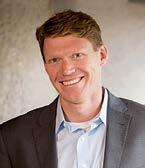
Timothy meyer comes to Duke Law in July from Vanderbilt Law School, where he is a professor of law and director of the International Legal Studies Program. an expert in public international law with specialties in international trade, investment, and environmental law, Meyer’s current research examines how international economic agreements relate and respond to concerns about economic opportunity and inequality and the role of the constitutional separation of powers in u.S. economic policymaking. he will teach International arbitration and International environmental Law in the fall semester. d
shu-yi Oei, who teaches and writes in the areas of tax policy and economic regulation, will join the faculty in January after serving as a professor and the Dean’s Distinguished Scholar at the Boston college Law School. her recent scholarship has focused on international taxation, particularly on empirical analysis of global tax developments and on transparency and privacy in international tax enforcement. She has also written extensively on technology, data and information, regulation of the gig economy, human capital investment, and social insurance. d
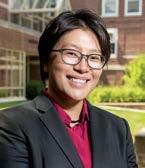

uke Law also welcomes these scholars and teachers who will be featured in the next issue of Duke Law Magazine.
FoR aRLINDa LockLeaR, the practice of law is also personal. a member of the Lumbee tribe of North carolina, Locklear is one of the nation’s foremost attorneys in federal Indian law and was the first Native american woman to argue before the u.S. Supreme court.
Locklear has built her 45-year litigation career representing tribes on issues including land and water rights, reservation boundaries and sovereignty, and federal recognition of tribes. that includes the Lumbee, who for 133 years have sought the federal recognition that would grant them legal status and access to funding, benefits, services, and protections enjoyed by 574 other tribes in the united States that are federally recognized. Locklear has devoted more than three decades to that effort.
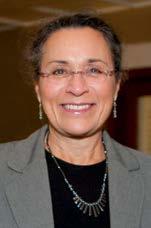
She delayed thoughts of retiring after the 2020 election, noting the election or re-election of three Native representatives to the u.S. house of Representatives, and the subsequent confirmation of Debra haaland to lead the Department of the Interior, making her the first Native american cabinet secretary in u.S. history.
“It’s exciting to work with people who actually care about and are willing to be proactive on Indian issues, so I’m going to stick it out for a little while longer,” Locklear says.
Locklear recently spoke to Duke Law Magazine about her practice, the Lumbee Recognition act, the landmark 2020 Supreme court ruling in McGirt v. Oklahoma, and issues to watch in federal Indian law.
Duke Law Magazine: since 1988, 29 lumbee recognition bills have been introduced with strong bipartisan support, yet none have passed the senate. Is there anyone in particular standing in the way of these bills passing, or do they tend to generally rise and fall with the political process?
arlinda locklear: the 2021 Lumbee Recognition act passed the house of Representatives by a historic margin so it gave us some nice momentum going over to the Senate, but the problem in the Senate is that Indian bills are just never considered important enough to get their own floor time. Indian bills are always passed as an amendment to some other major legislation, so that’s what we were trying to do.
I’ve never seen the partisan divide that exists now on the hill. we have, in the past, generally enjoyed bipartisan support for the bill within the State of North carolina but unfortunately the bill often gets caught up in partisan politics and that has prevented us from getting it over the finish line.
DLM: In McGirt v. Oklahoma, the supreme court ruled 5 to 4 that much of eastern Oklahoma, including parts of Tulsa, was never disestablished by congress as reservation land, and thus is out of the state’s criminal jurisdiction. It impacts some 1.8 million people, including many non-Indians.
al: People get really exercised about that — unduly, I think, because they don’t understand how much the Supreme court has already cut back on tribal sovereignty power and jurisdiction over
a member of the lumbee Tribe of north carolina, l ocklear was the first Native American woman to argue before the u. s. supreme court.
non-Indians. a tribe’s ability to influence the life of non-Indians on their reservations is very limited to begin with. and with most reservations, the governing tribe will go out of their way to maintain a respectful relationship with the local non-Indian governments. they resolve their differences by agreement and it’s generally a productive relationship. It’s just that a lot of the states don’t like it as a matter of principle and don’t even want to make the effort to negotiate with tribes on the basis of equality and on a governmentto-government basis.
there’s a reason why Justice [Neil] Gorsuch went out of his way to say, “you may not like this but you have the political means to try to adjust it. Go to congress and make your case, but until congress tells us otherwise we’re going to respect the reservation boundaries.”
DLM: how far-reaching are the ruling’s implications? Oklahoma claims it has thrown the criminal justice system into chaos, and is pushing to have the court overturn it, apparently pinning its hopes on Justice amy coney barrett.
al: I think they are overstated because in the criminal context, for example, to the extent the state loses jurisdiction the feds acquire jurisdiction. and as a general proposition, states don’t lose jurisdiction over non-Indians. If it’s a crime only involving non-Indians, then states retain criminal jurisdiction under particular federal statutes generally, and under a federal common law rule that the Supreme court adopted.
what the state does face, though, is more narrow criminal jurisdiction over Indians, particularly if it involves another Indian, but in those cases the federal government has very clear jurisdiction, so it’s not as though there’s a gap that’s been created in the criminal justice jurisdiction jurisprudence so that crimes will go unpunished or uncharged.
Indian issues don’t generally follow the usual political or philosophical breakdown on the court between liberals and conservatives. I think it’s also true that Native issues have an opportunity to really play on the sympathy of those judges that consider themselves originalists because so many of the doctrines we rely on really trace back to basic fundamental principles that are reflected in the constitution. So we remain hopeful, and particularly given the recent trend of this issue in this court, I think there’s going to be a disinclination to revisit it.
DLM: A number of recent rulings reaffirming tribal sovereignty on various issues have cited McGirt, including a seventh circuit case you won just three weeks later for the Oneida nation — Oneida Nation v. Village of Hobart. The nation’s sovereignty was being challenged by a village that wanted to impose its ordinance on a festival on what the court found to be undiminished Oneida reservation. That’s quite a feat of timing.
al: we were still waiting for the decision in McGirt and I was worried. one of the judges on my panel asked me whether they should stay their hand until McGirt was decided and I said no, because that involved a unique set of statutes that related only to Indian territory or oklahoma and the issue in Oneida involved the General allotment act, which is the statute that applies outside oklahoma to govern allotments of Indian reservations. I told
the court they wouldn’t get any guidance from Supreme court’s interpretation of that unique set of distinct statutes in terms of how they should interpret the General allotment act. fortunately the court did not listen to me. they did wait, and fortunately Justice Gorsuch started with a general discussion of the background of the General allotment act and allotment as applied outside oklahoma. It was that discussion, I think, along with a couple of other points he addressed that convinced the Seventh circuit that there had been what it referred to as a readjustment of the standard such that, as the court put it in Oneida, the village’s position was a loser before the McGirt decision and after McGirt it was borderline frivolous. So I was glad that the court did wait.
DLM: besides McGirt, what other issues should we keep an eye on?
al: you should watch what the united States does. the united States appeared as amicus in a Mille Lacs disestablishment case where in their brief they describe McGirt as having adjusted the standard that applied to these cases. that is a major thing, particularly when it reaches the court of appeals level, because the solicitor general’s office at Justice makes the ultimate judgment about whether the united States will weigh in on those cases. So if that becomes the formal view of the united States that carries a lot of weight. an important issue that is underreported is water rights. the Supreme court has developed a body of law that applies there that is very protective of tribes’ water rights even if they’ve not been quantified, and as the 17 western arid states get drier and drier that unlimited reservoir of federal reserved water rights becomes more and more important. I think that warrants a lot of attention and scrutiny and I think we’re going to see more of it in the next 10 years or so.
DLM: Practicing Indian law really seems to be a long game.
al: I have a lot of the same clients from years ago. for example, I’ve represented my water client for 35 years now because these things take time. Like the Lumbee recognition bill, it’s just a question of sticking to it and trying to get things done. Judges change and there is usually a subtle adjustment in attitudes on the hill, which is something we have to pay a lot of attention to, but other than that it’s pretty much the same.
My son’s master’s degree is in international affairs and my daughter’s is in women and gender studies and public administration, so they are not following me into law. I think they watched me over the years and said, “oh my goodness, I don’t know why Mom keeps beating her head against some of these stone walls.” But every now and then there’s a crack. d — Jeannie Naujeck
“Indian issues don’t generally follow the usual political or philosophical breakdown on the court between liberals and conservatives.”
— Arlinda Locklear
EuGeNe y. Lao has held a number of top legal positions at high-profile companies in the tech industry, including yahoo!, Zynga, auction.com, and DocuSign. Now the president and chief legal officer of Prime trust, which provides financial infrastructure for fintech and digital asset companies, Lao credits his success to continually growing his professional network.
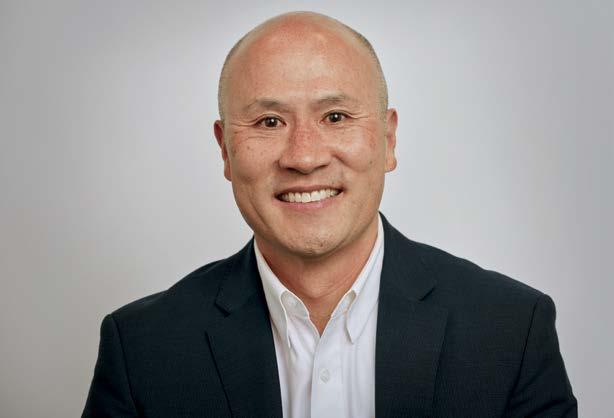
“My previous job was literally the only one I’ve ever had in my career where I didn’t know a single person at the company,” he says, referring to his post as general counsel at Reltio, which provides cloud and data management solutions. he landed his first job as an associate at hunton & williams thanks to an introduction made by his roommate while at Duke Law, and others came about through connections he made professionally. “I’ve just been super lucky.”
Prime trust provides aPIs — application programming interfaces, which help technology and websites communicate — and widgets for fintech providers, such as crypto and digital wallet providers, creators of non-fungible tokens, crowdfunding platforms, alternative trading systems, and more. the company is part of a rapidly growing sector.
when Lao started with the company last fall as the chief legal officer, he was tasked with creating systems for the legal team to
work more efficiently and at scale — something he had done for other companies.
“then my boss, who I’ve been friends with for a long time, said, ‘I can’t believe you could get the department up to speed and doing all this stuff so quickly. why don’t you do it for the whole company?’” Lao recalls.
Now, in addition to the legal team, the ceo chief-of-staff team, the regulatory affairs team, the audit team, and human resources all report to him. he is overseeing these operations while the company is also experiencing rapid growth; he projects the staff to grow to more than 400 by the end of the year, up from 150 when he was hired.
“we’ve been growing at 100 percent year-over-year for the last five years,” he says. “for 2020, our revenue target was $40 million, up from a little more than $19 million the year before that, and we did $60 million.”
Identifying opportunities though Lao has had a long career in tech, he describes himself as “industry agnostic.”
“It wasn’t like, ‘oh, I want a crypto job,’” he says of his move to Prime trust. “the reality is that my old friend came to me with a great opportunity. I looked at the company, and I was like, ‘this is amazing. I think they’re doing awesome things, and I believe that I can help. I believe I can make a difference here.’
“when I look at opportunities, it’s more about ‘what can I do to move the needle?’”
even his decision to go to law school was an opportunity spotted. Lao says he had plans to be a psychiatrist when entered the university of North carolina at chapel hill, but over time came to question the kind of impact psychiatry can have on people with serious mental illness.
But he liked talking to and helping people. he was considering a career in business when a friend convinced him to go to law school. “he said, ‘a businessman can’t be a lawyer, but a lawyer can be a businessman.’”
after graduating with a Ba in psychology, international studies, and asian Studies, Lao worked for a year at a law firm in taiwan. he had a strong interest in international law when he started at Duke Law, where he also pursued an LLM in international law and comparative law. “In my heart of hearts, I wanted to be at the u.N.,” he says.
he instead wound up at some of the biggest tech companies during the sector’s boom of the early 2000s. and as a sideline, in 2012 he co-founded Red Dog capital, a venture capital firm that specializes in early-stage software companies. the firm got started after he and a couple of friends made some successful investments, and others wanted to get involved.
“It started to get complicated because you don’t want dozens of people all investing at the same time on one thing, so we said, ‘hey, why don’t we just officially start a fund that people can invest into?’” he says. the company has now grown to include three funds, but it’s still “a nights and weekends thing” for Lao and most of his partners.
at 53, Lao says that his position at Prime trust will likely be his last, so he is looking at his “end game.”
“I would say over the last couple of years, and certainly as coVID has hit, my definition of success for my career has turned away from, ‘oh, I did this big deal,’ or, ‘I led this initiative,’ or, ‘I participated in a congressional hearing’ — all of which I’ve done,” he says. “Now, I care more about the leaders that I’ve been able to make. there are a lot of examples where I am so proud of people that I’ve turned in a different direction or put on a path that has allowed them to really expand their careers and go on to be Gcs themselves.”
he currently works with a Duke Law grad, Bob Zhao ’17, whom he mentored. he has also worked with Duke’s asian Pacific american Law Students association, making himself available for talks and networking. at an aPaLSa-sponsored event in March, he emphasized to students the importance of being open to opportunities, learning to network, and “learning to be likable.“
“I’ve hired a lot of people over the course of my career, and I came to the conclusion — after probably too long — that I would rather hire for attitude than for skills,” he says. “the skill part is learnable. the attitude part is not.”
he notes that lawyers work long hours on hard problems. “you want to be in that trench with somebody that you like. when I think about hiring people, that’s one of the standards I use: If I’m locked in a room with this person for a week working on a deal, am I going to want to kill them? are they going to want to kill me? or are we going to come out of it laughing?”
while he doesn’t discount the ability needed to do a job well, “it’s the likability that gets you in the front door,” he says.
Lao, who is chinese american, also reflected on his experience as an asian american in the legal profession at the aPaLSa event, recalling that he was one of only two asian people at his orientation for hunton & williams. “It did occur to me that might have been why they were sending me to hong kong,” instead of putting him to work in the New york office where he was originally hired, he told the students.
“It’s actually only in the last five or six years that I’ve started thinking more about it and more about the disparity,” he says in a subsequent interview. “there are a lot of asian americans that are entering into the legal profession. yet when it comes to firm leadership, when it comes to Gcs, there are quite a bit fewer. why?”
through his mentorship, Lao encourages students and young attorneys to be “a little bit louder” — to be more confident and to promote their own skills and accomplishments in a way that feels authentic and genuine to each individual.
“folks have to find a way to be able to talk about that and not just say, ‘My work speaks for itself.’ you have to do more than that,” he says.
as he looks toward the end of his career, Lao says he’ll continue to work on his investment fund, while enjoying spending time with his family — his wife of 15 years, his son, 13, and his daughter, 11 — and hobbies like running, reading, and rooting for the tar heels.
But he’s also looking to his legacy and thinking about how he can help the next generation of legal leaders. “I’ve made tons and tons of mistakes and errors in my career, which has equated to tons and tons of pain,” he says in his characteristically straightforward manner. “If there’s anything I can do to help anybody avoid that, to learn a lesson without having to go through the pain, nothing would make me happier.” d —
Maria Bajgain
“I would rather hire for attitude than for skills. The skill part is learnable. The attitude part is not.”
— Eugene Lao
TeN afGhaN faMILIeS evacuated from kabul in august are starting new lives in Durham and Greensboro with help from Duke Law’s Immigrant Rights clinic, which is assisting them with legal needs including filing applications for asylum. among the clinicians is one who has intimate knowledge of their situation: Sebghatullah Jalali.
Jalali, an afghan national, was evacuated in the same massive airlift as the asylum-seekers he is now helping to resettle in North carolina. Since he started a nine-month fellowship with the clinic in December, his familiarity with afghan culture and language has proven invaluable to the clinic’s work with evacuees housed at fort Pickett, near Blackstone, Va.
“Jalali brings empathy and understanding, in addition to exceptional coalition-building skills, to the clinic’s efforts to respond to the needs of afghan evacuees and their families,” says clinical Professor kate evans, the clinic’s director.
Jalali never intended to come back to the united States so soon. after graduating from Duke’s LLM program, he returned to his home country to work in peacebuilding and conflict resolution, despite warnings from friends and family about the deteriorating situation in the country.

“everyone called me and said, ‘Please don’t come back to afghanistan,’” he says. “‘everyone is putting everything on the line to get out of afghanistan and go to europe or the uSa to work there and live there. Don’t come back.’ I said, ‘No, it’s impossible.’
“So I went back to afghanistan and every day was fun, every day was good to work. But I had to leave and come back to the uSa.”
Like most of the nearly 130,000 people evacuated in the two-week international airlift last august, Jalali faced an abrupt and harrowing departure from afghanistan. following the capture of kabul by the taliban on aug. 15 and the u.S. decision to accelerate its withdrawal, he joined the crowds of afghans outside kabul airport trying to leave the country.
“Nobody cared about anybody,” he says, recalling the chaotic crush of hot, hungry, and increasingly desperate people outside the airport gates. “we were just people pushing each other. the amount of pressure was like a mountain.
“But the most painful thing was not even for a second did they open the door. they weren’t letting people in.” with his employer, the u.S. Institute of Peace, coordinating his departure with the taliban and the u.S. Marines, Jalali made six attempts to leave, each time returning to his apartment discouraged. on the seventh day he, his colleagues, and their families made it through the gates and boarded a military transport plane to Qatar. they underwent a three-day processing, then flew to one of the Virginia military bases where thousands of evacuees have begun their initial resettling process before fanning out across the u.S., including nearly 2,000 who are resettling in North carolina.
as Jalali helps his countrymen adjust to their new lives, he understands the displacement they may feel: when he started his LLM program at Duke he went through a difficult time that he later understood to be culture shock. connecting with classmates, who like him were all graduates of law schools in other countries, helped him to recover his passion for studying human rights and constitutional law, and bring his learning back to afghanistan.
“from designing and launching a project aimed at assisting afghan evacuees to prepare their future asylum applications and ongoing communications with our existing afghan clients, to serving afghans currently residing on u.S. military bases, Jalali has played a critical role in the Immigrant Rights clinic’s overall response to the legal needs of the afghan community,” says Senior Lecturing fellow Shane ellison, supervising attorney for the clinic.
“his depth of knowledge and direct relevant experience has proven vitally important to our work. we are incredibly fortunate to have him on our team.”
“Everything goes back to Afghanistan”
Jalali is also collaborating with clinical Professor Jayne huckerby, director of the International human Rights clinic, on a paper addressing how the international community can provide humanitarian relief to afghanistan while the taliban government is under sanctions. after his nine-month fellowship at the Immigrant Rights clinic ends this fall he plans to enroll in a master’s or PhD program that combines his legal background with policy studies. Driven by what happened in his home country, he wants to understand why governments fail.
“everything goes back to afghanistan,” he says. “I’m grateful to the uSa and to u.S. people. I’ve been supported and I have been educated but I always think about that country. that is why I’m thinking about studying the past 20 years.
“trillions of dollars were spent and hundreds of thousands of lives were lost. what went wrong? why can’t that country become better? where is the mistake that nobody has put their finger on? are they destined to be this miserable and unfortunate or is there something we are missing? I want to know.”
Jalali hopes americans will remember the afghans left behind who are suffering amid the country’s economic crisis. More than half the population is experiencing extreme hunger and nearly a quarter face famine in a growing “humanitarian catastrophe,” according to uNhcR, the u.N. refugee agency.
on feb. 26 Jalali gave a tedX talk at Duke that used his own journey from afghanistan to the u.S. to illustrate his argument that failure to change — whether by a country, a company, or individual — inevitably leads to chaos.
“either you suffer the pain of change and become better and stronger at the end of the journey or you go through chaos and lose everything,” he said. “that’s what happened in afghanistan. our leaders thought that everything would stay the same, that their nepotism, their corruption, their deception would work to the end of the day. and that didn’t work. things changed. the international community changed their mind and chaos followed at the expense of millions of people.
“had they changed, had they learned, and had they expected and planned and prepared that this day would come, I think we would have been in better shape. If you are a leader and you don’t change, people will suffer. and if you are a person and you don’t change, you will suffer.”
d — Jeannie Naujeck
“Jalali brings empathy and understanding, in addition to exceptional coalition-building skills, to the clinic’s efforts to respond to the needs of afghan evacuees and their families.”
— Clinical Professor Kate Evans, director of the Immigrant Rights Clinic
At the eND of heR SecoND yeaR at Duke Law, Britta Momanyi started working as a case investigator for the office of Police conduct Review (oPcR) in Minneapolis. She then developed a faculty-mentored externship through which she was able to continue her engagement with this work through her final year of law school.
Looking into allegations of misconduct by members of the Minneapolis Police Department (MPD) has represented “a once-ina-lifetime opportunity to do impactful work at an incredibly influential place in an unbelievably historic time,” says Momanyi, who grew up in nearby Bloomington, Minn. “George floyd’s murder reverberated in hearts and minds around the world. the choices we make in this moment will not be lost on our future as a nation.
“this work is necessary, impactful, and central to the core of why so many pursue a legal education in the first place — to advocate for justice for those from whom it has been systemically deprived.”
Momanyi’s oPcR investigations include reviewing officers’ body camera video and interviewing complainants, witnesses, and the officers whose conduct is under investigation. her investigative reports are submitted to a review panel consisting of two MPD officers and two civilians who subsequently make recommendations regarding the merits of the complaint to the chief of police.
Minneapolis is one of just a few police oversight jurisdictions in the united States that allow civilians access to police records, Momanyi explains, adding that oPcR also stands out for having both investigative and audit power: “that is to say they can receive public complaints, initiate their own investigations, and conduct large-scale audits of police conduct and policy through quantitative research and analysis.”
During her externship, which was supervised by the head of the civil Rights Department, Momanyi took on additional duties designed to enhance her legal skills, such as presenting in public
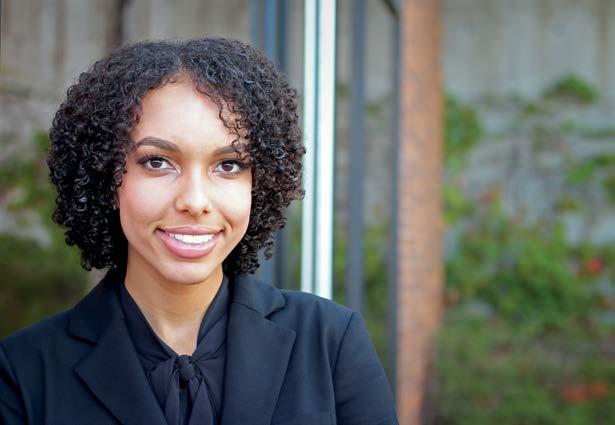
forums like the Police conduct oversight commission, which audits and studies the police department to make recommendations on its policies and procedures, and working with the complaint Investigations Division on employment discrimination matters.
“fortunately, I had just taken employment Discrimination in the spring 2021 semester, so I was able to apply the relevant case law with ease,” she says.
Jerome M. culp Professor of Law trina Jones, who teaches employment Discrimination, calls herself “extremely fortunate” to have engaged with Momanyi both in that course and as her faculty mentor during her oPcR externship. “Britta’s intellect is exceptional,” says Jones. “It is matched by her demonstrated commitment to service and to fighting injustice. the paper that she produced, advocating for greater transparency in governmental data practices statutes, is a must read and will be tremendously useful to both jurists and policymakers concerned with securing greater accountability for police misconduct.”
Momanyi says she couldn’t pass up the opportunity to engage in the work of oPcR in her home state at this particular moment. “I need to have a personal connection to my work to feel fulfilled and to stay motivated in public service.”
a graduate of the university of Minnesota, where she double majored in political science and the sociology of law, criminology, and deviance, Momanyi was drawn to study law from a desire to advocate with and for people affected by systemic discrimination.
“Growing up, I had seen a lot of racial and class-based oppression and it bothered me deeply,” she says. Some hit particularly close to home, such as her father’s experience of racial discrimination in the workplace and her mother’s reluctance to pursue treatment or compensation for a workplace injury because of her reliance on her employer’s goodwill and recommendation to secure future positions.
“In my opinion, her socioeconomic struggles had essentially infiltrated her sense of agency and made it feel like she couldn’t possibly win even if she had a valid claim,” says Momanyi. “this infuriated me because it was horrible to see my mother suffering when she had a valid claim, but I understand that sometimes it’s not just lack of knowledge that prevents people from pursuing legal action but years of systemic oppression that makes them identify with a state of suffering.
“these experiences made me realize that I had the privilege of my education, that my parents had sacrificed for, and the power of my personal experience with these issues, and I felt called to use that privilege to advocate with those who had been systemically oppressed.”
having joined the Minnesota army National Guard as a college freshman after recruiters she served at olive Garden explained the education and tuition benefits available to members, Momanyi served for six years as a paralegal specialist, attaining the rank of
sergeant. Immediately prior to starting law school she was deployed for eight months to kuwait and Jordan as an administrative law paralegal, conducting investigations on a range of non-criminal matters, educating soldiers about sexual harassment, and reviewing command policies. “My deployment is where I found my true love for investigations,” she says, noting that it ended just two weeks before she began her Duke Law orientation.
at Duke, Momanyi earned an equal Justice america fellowship, clerked at Legal aid of North carolina, and acted as co-director of the Veterans assistance Project at Duke Law. She found Social Justice Lawyering to be a favorite course; co-taught by clinical Professor anne Gordon, the director of externships, and clinical Professor Jesse Mccoy, the supervising attorney of the civil Justice clinic, the course shows students how lawyers interested in social justice can work with communities, individual clients, social and political causes, and legal systems for change.
“Due to our society’s tendency to hold lawyers up on a pedestal and the lack of attention to the value and benefit that community members can provide to solving issues, many perpetuate harmful hierarchies because they view themselves as the sole providers of value in these exchanges,” Momanyi says. “I realized that my calling to public service was less about the specific work I was doing, and instead it was about the community I was working with.”
Now a newly minted Duke Law graduate, Momanyi is happy to be launching her legal career at oPcR.
“the horrific images [of George floyd’s murder] brought to mind a reality that many failed to see — the reality that systemic racism is a collection of deliberate choices,” she says. “Specifically, the choice to take the easy way out and adhere to how it’s always been, to stand by silently and not say anything, to not do anything. well, here I am trying to do something. I am trying to utilize my personal experience and the privilege of an elite legal education to make a difference in Minnesota.” d — Frances Presma, with reporting from Sean Rowe
“ britta’s intellect is exceptional. It is matched by her demonstrated commitment to service and to fighting injustice.”
— Professor Trina Jones
This section reflects notifications received September 1, 2021 through March 31, 2022.
Donald messinger and his wife Sally were honored by the Cleveland Jewish News in December as “2021 Difference Makers” who have made a “significant difference” both in and beyond the the Northeast ohio Jewish community. An article noted their longstanding support for, among other institutions, the Free Medical Center of Greater Cleveland (now Circle Health Services) which Don served as a board member for more than 40 years, including a term as president. Don continues to practice corporate law as a partner of Thompson Hine, which he joined immediately upon graduating from Duke Law.
ned Donoghue has authored “The Albrecht-Mekeel Family, World War II and the Making of Arthur J. Mekeel’s The Quakers and the American Revolution,” Quaker History 38 (Fall 2021). Ned is a freelance writer and advisor on philanthropy, following a 27-year career at Dechert in Philadelphia and working as a fundraiser for the Philadelphia orchestra Association and the Academy of Music. He has been re-elected as secretary of the board of trustees of the Princess Grace Foundation-USA, a nonprofit that recognizes and supports emerging talent in theater, dance, and film in the United States.
scott Johnson was named a 2021 “Broadcaster of the year” by the Alabama Broadcaster’s Association and named to its Hall of Fame in
recognition of his long service to the association as its legal counsel. He has spent his career as a commu nications law attorney, representing mass media clients, including radio and television station owners, broad cast networks, and satellite program distributors, as well as universities and cities with respect to telecom munications needs and funding.
Peter seibel has been honored by the ohio State Bar Association for 50 years of service to the community and the legal profession. Peter is a private practitioner in Defiance focusing on criminal defense, domestic, and custody cases. He previously served as the elected prosecuting attorney for Defiance County for 16 years.
John sherrill, one of the first lawyers to practice alternative dispute resolution in Atlanta, has been honored with the 2021 Chief Justice Harold G. Clarke Award from the Supreme Court of Georgia Commission on Dispute Resolution and the Dispute Resolution Section of the State Bar of Georgia. Now a full-time arbitrator and mediator, John was a trial lawyer in Georgia for over 40 years until retiring from his firm in 2014.
steven wasserman has authored the book, Grasping at Straws: Letters from the Holocaust (Sola Hill Press, November 2021). The book about Steve’s mother’s family and their efforts to escape from Germany in 1938 is based on dozens of letters sent between family and friends between 1938 and 1946 that detail their lives before and during the Holocaust and the war.
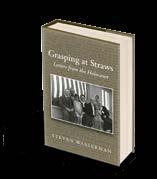
Justin klimko, president and CEo of Butzel in Detroit, has been named to Michigan Lawyers Weekly’s Hall of Fame Class of 2022. His practice includes securities regulation, corporate financing, mergers and acquisitions, corporate governance, and general corporate matters.
John yates was named, in February, as one of Atlanta Magazine’s “Atlanta 500: Professionals.”
John is a partner at Morris, Manning & Martin, where he launched the firm’s technology practice more than 38 years ago.



Paul russell hardin, president of the Robert W. Woodruff Foundation, Joseph B. Whitehead Foundation, Lettie Pate Evans Foundation, and Lettie Pate Whitehead Foundation, was named, in February, as one of Atlanta Magazine’s “Atlanta 500” leaders in the area of nonprofit organizations. The foundations, which primarily support organizations in metro Atlanta, were created by Robert W. Woodruff, the former president of the Coca-Cola Co., and the family of Joseph B. Whitehead, one of the original Coca-Cola bottlers.
robert Fuller has been named to the “Power Players: outside Counsel” list by Sports Business Journal. An attorney in the Charlotte office of Robinson Bradshaw, he is one of three lawyers in the firm who serve as outside general counsel to the Southeastern Conference.
The following alumni have been recognized by their peers for excellence in their respective specialty areas as listed in such publications as Best Lawyers in America, Super Lawyers, Chambers USA, Law360, BTI Client Service All Stars, D Magazine, and Thomson Reuters This list reflects notifications received by March 31, 2022, and includes such designations as “Rising Stars.”
Justin klimko ’80 robert Fuller ’83 kirk warner ’83 brian rubin ’87 r. Joseph morris ’88 caryn coppedge mcneill ’91 amy meyers batten ’92 andrew weiler ’93 Jackson moore ’95 geoff krouse ’97 geoffrey adams ’98 claibourne harrison ’03 Joshua bryant ’04 ryan mcleod ’07 Isaac linnartz ’09 Toby coleman ’10 Taren greenidge ’10 adam Zwecker ’10 Joseph apatov ’11 michele Dunsky adams ’13 Tori simmons ’13 Jonathan hayes ’15
Janine brown was named, in February, as one of Atlanta Magazine’s “Atlanta 500: Professionals.”
She is the partner in charge of Alston & Bird’s Atlanta office, with experience handling multibillion-dollar domestic and international transactions focusing primarily on M&A, joint ventures, and strategic alliances.
lyndall huggler has joined the Pittsburgh office of McNees
Wallace & Nurick as of counsel and a member of its real estate, corporate and tax, and construction and procurement law practice groups. Before joining McNees, he was a partner at Blumling & Gusky in Pittsburgh.



stephen labaton was named executive vice president of communications for the NBCUniversal News Group in october. He was previously executive vice president of corporate affairs for Booz Allen Hamilton.
lawrence wright and his Philadelphia firm Wright & o’Donnell, which was established in 1995, have joined the firm of Rawle & Henderson, where Lawrence began his legal career. Rawle & Henderson, established in 1783, specializes in insurance defense, handling a broad array of matters throughout the mid-Atlantic region.
christopher Petrini retired, in June, as the Framingham, Mass., city solicitor. He served as Framingham’s principal legal officer for more than
20 years, first as town counsel from 2001 to 2017, and then as city solicitor since 2018. In his two roles, he represented the city in over 500 lawsuits and other major matters. Chris is a past president of the Massachusetts Municipal Lawyers Association and has received its Presidents Award, and currently is a regional vice president of the International Municipal Lawyers Association, representing the First Circuit.
brian rubin’s article, “Inconceivable: The Princess Bride Fences with SEC and FINRA Enforcement Matters,” was selected as “Best of NSCP (National Society of Compliance Professionals) Currents 2021.” Brian is the Washington, D.C. office leader of the Eversheds Sutherland U.S. litigation group and the head of the firm’s SEC, FINRA, and state securities enforcement practice.
Jody Debs was named, in December, chief administrative officer and legal counsel at Water For People, a global NGo committed to providing sustainable water, sanitation and hygiene systems, and services to underserved communities. The 30-year-old organizataion operates in nine countries in Africa, Latin America, and India. Jody was most recently the general counsel for HDR, Inc., an international engineering and architecture firm. She is a member of the American College of Construction Lawyers and has served on the board of Engineers Without Borders, including as president.
liisa anselmiDalton has been appointed to the board of directors of the Wyoming Humanities Council for a three-year term. Liisa served in the Wyoming legislature as a state senator from 2017 to 2021 and is currently a commissioner on the Wyoming

Water Development Commission and a member of the Wyoming Wildlife Taskforce. She has been named a Rocky Springs (Wyo.) Businesswoman of the year.
shawn lochinger has been named a partner at Sweet, Stevens, Katz & Williams, a firm specializing in Pennsylvania education law. He represents clients in all areas of education law, including special education and labor and employment.
Phoebe kornfeld has authored Passionate Publishers: The Founders of the Black Star Photo Agency (Archway Publishing, 2021), which traces the lives of the agency’s co-founders, Ernest Mayer, Kurt Safranski, and Kurt Kornfeld, German Jewish refugee-émigrés who helped ignite a photojournalism revolution. Phoebe is a retired international lawyer and Kurt Kornfeld’s granddaughter.
Dara redler has joined H&R Block, Inc., as chief legal officer. She previously was the first general counsel and corporate secretary for Tilray Inc., a global cannabis firm, and earlier held legal roles of increasing responsibility over 17 years at The Coca-Cola Company.

sanford stark has joined the Washington, D.C., office of Gibson, Dunn & Crutcher as partner and co-chair of the firm’s newly-formed global tax controversy and litigation practice group. He formerly was with Morgan, Lewis & Bokius.
Tony Jeffries is one of two Wilson Sonsini partners overseeing the firm’s establishment of an office in Boulder, Colo, that focuses on the region’s life sciences sector. Now
dividing his time between Boulder and Palo Alto, Tony’s practice focuses on corporate, securities, governance, and related matters for technology and life sciences companies.
michael sherman has been named executive vice president and chief legal officer of Genesis HealthCare. From 2009 to 2021 he served as the company’s senior vice president and general counsel. He now manages the company’s development and acquisition activity in addition to its legal affairs.
Donald Tunnage was sworn in as an associate judge of the Superior Court of the District of Columbia on Feb. 25 after being nominated by President Joe Biden and being confirmed by the U.S. Senate. He was previously an attorney in the U.S. Department of Justice’s Civil Rights Division, where he litigated lawsuits in federal district courts to enforce the Fair Housing Act and Title II (Public Accommodations) and Title VII of the Civil Rights Act.
brian kelly has joined the intellectual property and technology and entertainment practices of Greenberg Traurig as a shareholder in the firm’s Los Angeles office. He previously was a partner in the digital and technology group of Manatt, Phelps & Phillips.
carol brown has been appointed as an independent director on the board of directors of SL Green Realty Corp. Carol is a tenured real estate law professor at the University of Richmond School of Law, where she teaches and writes in the areas of property, land use planning, real estate transactions, and housing law. She is also a fellow with the American College of Real Estate Lawyers and has served as the chair of the Association of American Law Schools’ Section on Real Estate Transactions and Section on Property Law.
Jason erb has been promoted to vice president, chief legal officer at Hyundai Motor North America. Jason joined Hyundai in 2002 as senior counsel. Most recently, he served as assistant general counsel and executive director, litigation.
masahiro kihara has been appointed president of Mizuho Financial Group Inc. He previously served the Japanese bank as senior executive officer.
kevin Patton rejoined Maynard Cooper & Gale in Birmingham, Ala., in August as a shareholder in the firm’s litigation practice. He practiced at the firm from 1996 to 2008, when he joined Regions Bank as head of litigation.
Teresa Pearson has been appointed by the judges of the U.S. Court of Appeals for the Ninth Circuit as a bankruptcy judge on the U.S. Bankruptcy Court for the District of oregon, with chambers in Portland. Her 14-year term began oct. 4, 2021. Teresa previously had been a partner at Miller Nash with a practice focused primarily on insolvency, reorganization, and creditor’s rights.
John barlament has joined the Milwaukee office of Reinhart Boerner Van Deuren as a shareholder in its employee benefits group, where he counsels plan fiduciaries, employers, multi-employer plans, pharmacy benefit managers, insurers, insurance brokers, third-party administrators, and other plan service providers on a range of employee benefit matters. He was previously a partner at Quarles & Brady.
Odetta macleish-white, director of Georgia Initiatives for the Center for Community Progress, was named, in February, as one of Atlanta Magazine’s “Atlanta 500” leaders in the area of government and infrastructure. The publication cited her leadership in creating partnerships and strategies for
improving vacant, abandoned, and deteriorating properties. A longtime leader in community development, odetta was managing director for the TransFormation Alliance.
guy rotkopf, former director general of the Israel Ministry of Justice, has been named chairperson of Cellebrite DI Ltd.’s ethics and integrity committee. Headquartered in Petah Tikva, Israel, Cellebrite is a global leader in digital intelligence solutions for the public and private sectors.
Jill steinberg has joined the white collar defense/internal investigations group of Ballard Spahr as a partner in its Philadelphia and Washington, D.C. offices. Jill spent more than a decade handling high-profile white collar and violent crime matters for the U.S. Department of Justice and served in its senior leadership as associate deputy attorney general in the office of the Deputy Attorney General.
Jocelyn strauber took office on Feb. 28 as the commissioner of the New york City Department of Investigation, by appointment of Mayor Eric Adams. Most recently, Jocelyn was a partner at Skadden Arps. She previously spent eight years at the U.S. Attorney’s office for the Southern District of New york, where she held numerous roles, including co-chief of the terrorism and international narcotics unit, and supervised investigations and prosecutions involving terrorism and national security, arms trafficking, money laundering, and global narcotics trafficking.
Jon Taylor has been named managing partner at Koenig, oelsner, Taylor, Schoenfeld & Gaddis (Ko Law Firm) in Denver and Boulder, Colo. Jon guides the firm’s strategic vision and oversees its day-to-day operations. He continues his corporate transactional law practice.
1999Tim Dadson has been promoted to general counsel of SoundExchange, a technology solutions company, where he oversees the comprehensive legal functions of the organization and is chief legal advisor. He joined the company in 2012 and previously served assistant general counsel and deputy general counsel.
kyle Jefcoat has been elected partner in the Washington, D.C., office of Latham & Watkins, where he is a member of the white collar defense and investigations practice in the litigation and trial department. Previously of counsel to the firm, his practice focuses on government contracts, including on transactional and compliance matters.
monty sarhan has been named CEo of SkyShowtime, the Europe-focused streaming service of Comcast and ViacomCBS. Now based in London, he joined Comcast Cable in December 2019 as senior vice president, content acquisition, responsible for a multi-billion dollar content budget.

Zephyr Teachout, an associate professor at Fordham University School of Law, has taken a leave of absence from the school to join the New york Attorney General’s office as a special advisor and senior counsel for economic justice.
Jason webber has joined Latham & Watkins’ New york office as a partner in the mergers and acquisitions and private equity practices, and as a member of the corporate department. He advises private equity firms and other investors in the develop-

ment or acquisition and divestiture of infrastructure and energy businesses. He previously practiced with White & Case in New york.
licha nyiendo has joined Human Rights First as its inaugural chief legal officer. Her hiring is part of the organization’s strategy to equip and activate skilled leaders to address and abolish oppression in the United States and worldwide. She most recently served as commissioner for the New york State Division of Human Rights.
Dustin rawlin has joined Nelson Mullins Riley & Scarborough as the managing partner opening the firm’s new Cleveland office. Previously a partner at Tucker Ellis, Dustin is a litigator who represents clients in complex litigation matters and appeals involving product liability, breach of contract, business tort, breach of warranty, consumer fraud, professional negligence, and commercial disputes.
scott Thompson was named acting co-director of the Philadelphia Regional office of the Securities and Exchange Commission on Feb. 10. He joined the agency in 2007 and most recently served as associate director of enforcement for the Philadelphia office.

kamla alexander has joined dentsu international, a marketing solutions company, as general counsel for the Americas. She previously was with The Coca-Cola Company for 15 years.

mark bieter has joined the Stoel Rives litigation group as of counsel in the Boise, Idaho office. He represents clients


in commercial litigation in state and federal courts in matters involving securities fraud, contract disputes, class actions, franchise agreements, and breach of fiduciary duty, among others. He previously practiced with Groom Law Group.
rodney bullard, vice president of corporate social responsibility for Chick-fil-A and executive director of the Chick-fil-A Foundation, was named, in February, as one of Atlanta Magazine’s “Atlanta 500” leaders in the area of nonprofit organizations. He leads the company’s and foundation’s community-engagement, philanthropic and sustainability strategies.
ken craycraft, the James J. Gardner Family Chair of Moral Theology at Mount St. Mary’s Seminary & School of Theology, has authored an opinion piece, “Why Capital Punishment is ‘Inadmissible,’” in the october issue of The Catholic Telegraph.
randy katz has been named special counsel to the U.S. Attorney for the Southern District of Florida. An assistant U.S. attorney since 2005, he has also joined the adjunct law faculty at Nova Southeastern University’s Shepard Broad School of Law.
Jesse linebaugh, a partner in the Des Moines office of Faegre Drinker, has been appointed co-leader of the firm’s national financial services industry team. He focuses his practice on defending insurance
and annuity companies, banks, and broker-dealers, as well as handling non-compete litigation and internal investigations.
claibourne harrison has been elected partner in the London office of Gibson Dunn & Crutcher, where his practice focuses on private equity, real estate private equity, and mergers and acquisitions.
bridget O’connor has joined the Washington, D.C., office of Jones Day as a partner in the firm’s business and tort litigation practice. She previously was a litigation partner at Kirkland & Ellis.
catherine Peshkin has been appointed assistant dean for the Harvard Law School graduate program and international legal studies. She has served as the graduate program’s director of admissions and financial aid since 2012.

Washington, D.C. Prior to joining the firm, she served as general counsel of the Small Business Administration (SBA), appointed in 2020 to manage the legal needs that arose from the SBA’s role as a lead agency in the federal government’s economic response to CoVID-19. As the SBA’s chief legal officer and third-highest-ranking official, Britt led the SBA’s legal function, managing 140 lawyers and staff across the country.
scott edson has joined the Atlanta office of Jones Day as a partner in the firm’s business and tort litigation practice. Previously a partner in the trial and global disputes practice at King & Spaulding’s Washington, D.C., office, Scott represents clients in complex litigation and is a frequent writer and lecturer on various aspects of law and legal practice. on Jan. 1, he began a three-year term on the Florida Bar’s Standard Jury Instructions Committee — Civil Cases, by appointment of the Florida Supreme Court.
Trever asam has been named to Hawaii Business Magazine’s “20 for the Next 20.”

Trever is a partner at Cades Schutte in Honolulu, where he represents taxpayers in tax controversies and disputes with the IRS and the Hawaii State Department of Taxation. He is also the president of Volunteer Legal Services of Hawaii.
britt whitesell biles has joined Womble Bond Dickinson as a partner in the business litigation group in

Omar rashid has been named to the board of directors of the American Cancer Society Cancer Action Network, the advocacy affiliate for the American Cancer Society, which pursues evidence-based public policy and legislative solutions designed to eliminate cancer as a major health problem nationwide. His term began on Jan. 1. omar, who also completed his MD at Duke in 2006, practices general surgical oncology and general surgery in South Florida.
Teddy schwarzman, founder and CEo of Black Bear Pictures, an independent studio, has joined the board of directors of the Gotham Film

& Media Institute. Black Bear, the company behind “The Imitation Game” and “I Care A Lot,” has been nominated for 13 Academy Awards and 10 BAFTAs and launched a television arm, Black Bear Television, in 2021.
amy curry, a partner at Frost Brown Todd, has been named a Louisville Business First’s “Forty Under 40.”
landon Zimmer, managing partner of Zimmer Development Company in Wilmington N.C., received a “40 Under 40” award from StarNews Media and the Wilmington Chamber of Commerce in September.
natalie hirt adams has joined the Tampa, Fla., office of Bradley Arant, where she is a partner in the firm’s government enforcement and investigations practice group. She advises clients on criminal matters, complex civil litigation, and internal investigations. Natalie previously served for nine years as an assistant U.S. attorney in the Middle District of Florida. abby Dennis has joined the Federal Trade Commission as senior trial counsel in the Bureau of Competition. She previously was a partner at Boies Schiller Flexner and co-chair of the firm’s hiring committee.
burr eckstut has joined the New york office of White & Case, where he is a partner in the technology transactions practice within the firm’s global M&A and global IP groups. He advises clients on legal matters involving software, data, media, and other intellectual property. He previously was with Covington & Burling.
michael sopko has been promoted to captain in the U.S. Air Force and remains assigned to Patrick Space Force Base in Florida. Mike has also completed training and
is now a judge advocate. He continues work at his civilian job at the Board of Veterans’ Appeals in Washington, D.C.
sarah hawkins warren, associate justice of the Supreme Court of Georgia, served this spring as the University of Georgia School of Law’s Hines Juristin-Residence, an honorary teaching position. As part of her residency, she co-taught a weeklong seminar titled “Persuading the Judge and Jury” and met with students in small groups to discuss issues related to appellate practice in Georgia. Sarah also spoke as part of UGA’s 38th Annual Edith House Lecture on Feb. 1.
Joshua schmidt has been appointed chief legal officer and corporate secretary of InterDigital, Inc., a mobile and video technology research and development company. He joined InterDigital in 2015 and has since served in a series of roles within the legal department, most recently as deputy general counsel.
kristin cope has joined o’Melveny as a partner in the firm’s new Dallas office. Formerly a partner at Baker Botts in Dallas, she has handled a wide range of complex commercial litigation, as well as appellate matters.
steven lee has joined Meta (previously Facebook) as associate general counsel, based at the company’s headquarters in Menlo Park, Calif. He previously was product counsel at Sony PlayStation.
matthew Peters has been promoted to counsel in the Washington, D.C., office of Latham & Watkins, where he is a member of the securities litigation and professional liability practice in the litigation and trial department.
2009sarah keeton campbell was confirmed as a justice on the Tennessee Supreme Court in February by a joint session of the General Assembly after being nominated by Gov. Bill Lee. She was previously associate Tennessee solicitor general and special assistant to the attorney general.

rafael marquinez has been promoted to partner in the Panamanian law firm Aleman, Cordero, Galindo & Lee (Alcogal), where he specializes in corporate law and capital markets.
carla reyes was appointed chair, in September, of the Texas Work Group on Blockchain Matters, which is charged with considering policy priorities related to blockchain technology in that state. An assistant professor of law at Southern Methodist University Dedman School of Law, Carla’s scholarship focuses on issues raised by the intersection of business law and technology. She was named a fellow of the American Bar Foundation in June 2021 and named a Women of Legal Tech 2020 by the ABA Legal Technology Resource Center.
kip nelson, a partner at Fox Rothschild in Greensboro, N.C., has been included on the Triad Business Journal’s “40 Under 40 2022,” and the 2022 “Legal Elite (litigation)” list by Business North Carolina magazine.
adam Zwecker has joined the real estate practice at Holland & Knight as a partner in the firm’s Miami office. He previously was a partner at Akerman.
Travis buchanan has been promoted to partner in the Wilmington, Del., office of young Conaway Stargatt & Taylor, where he is a member of the firm’s bankruptcy and restructuring group.
andrew galdes has been promoted to counsel in the Washington, D.C., office of Latham & Watkins, where he is a member of the white collar defense and investigations practice in the litigation and trial department.
benjamin gibson has been promoted to counsel in the San Diego office of Latham & Watkins, where he is a member of the environmental regulation and transactions practice in the environment, land and resources department.
Josh roling has been promoted to partner in the Milwaukee office of Foley & Lardner, where he is a member of the firm’s real estate practice group as well as the energy and sports industry teams. Josh represents real estate developers, investors, owners, and tenants in all aspects of commercial real estate transactions.
John rudd has been elevated to partner in the Raleigh, N.C., office of Hutchison PLLC, where his practice focuses on mergers and acquisitions, corporate finance and corporate law. Prior to joining Hutchison in 2018, John was an associate in the mergers and acquisitions group of Jones Day’s Tokyo office.
Dana sheahan has been promoted to vice president, corporate legal at Warner Music Group, where she manages and advises on domestic and international transactions and investments, and negotiates and advises on commercial technology, data, and other agreements. Dana also advises WMG on corporate governance matters.
sarah vacchiano has joined United Talent Agency as a motion picture business affairs executive in Los Angeles. She most recently served as vice president of business and legal affairs at FilmNation Entertainment in New

york, where she negotiated production, finance, and development deals for the company’s slate of feature film and podcast productions.
nathan Fonda has been elected partner in the St. Louis, Mo., office of Thompson Coburn, where he is a patent attorney and intellectual property litigator with experience representing plaintiffs and defendants in federal litigation and before arbitration and administrative bodies.
serena rwejuna has joined the energy, infrastructure, and project development and finance practice in the Washington, D.C., office of White & Case, where her practice focuses on advising energy companies on a range of regulatory, compliance, administrative litigation, and enforcement issues. She previously practiced at Jones Day. In April, she received the Duke Law Alumni Association’s young Alumni Award.
Tori simmons has been elected a shareholder in the Tampa, Fla., office of Hill Ward Henderson, where she is a member of the firm’s litigation group, focusing on complex commercial litigation. She represents clients in a variety of business disputes and class action litigation in state and federal court.
gabriela bersuder has joined Burford Capital in New york as a vice president. She previously practiced as a litigator at Patterson Belknap Webb & Tyler, where she represented Fortune 500 companies, food and beverage manufacturers, and large corporations in complex commercial litigations, arbitrations and mediations.
renee cohn Jubelirer has been elected president judge of the Commonwealth Court of Pennsylvania for a five-year term. She has served on the court for more than two decades. As president judge, she oversees administrative matters of the court, including budgeting, oversight of administrative offices, scheduling, special sessions, education, and bench-bar interaction.
Jesse kobernick has joined the business and corporate team in Miller Nash’s Vancouver, Wash., office. He represents clients on a range of transactional matters including mergers and acquisitions, joint ventures, stock and asset purchase agreements, and restructurings, as well as corporate governance. He previously was supervising lawyer for the Entrepreneurial Law Clinic at the University of Washington School of Law.
austin maloney has been promoted to partner at Hunton Andrews Kurth’s Richmond, Va., office, where he is a member of the corporate group. He advises clients in connection with domestic and cross-border acquisitions and dispositions, including representation of private equity funds and institutional clients. Austin married Anne Peyton Leitch on Sept. 19, 2020, in Richmond, with a celebration on Sept. 18, 2021.
Tg Falcon has joined Smith Anderson in Raleigh, where he advises clients on intellectual property matters and tech-related issues such as development, licensing, marketing, acquisitions, and use of assets. Prior to joining Smith Anderson, he served as associate corporate counsel for Amazon.
Jonathan hayes has been elected shareholder at Tallahassee, Fla.based Ausley McMullen, where he practices in the areas of litigation, appellate practice, probate, trust and estates, business law, health care, employment law, corporate law, and government.
chauneice Davis yeagley is an MBA candidate (Class of 2023) at the Wharton School of the University of Pennsylvania. She previously was an associate at two New york City firms, and most recently clerked for a judge on the U.S. District Court for the Eastern District of Pennsylvania.
erin mack, an associate in McGuireWoods’ debt finance department in Charlotte, has been selected as a member of the Leadership Council on Legal Diversity 2022 Pathfinders Program. The program fosters professional development of lawyers early in their careers. At McGuireWoods, Erin handles corporate lending transactions, including syndicated lending, multicurrency financing facilities, and acquisition financings.
Jennifer Thurston has been confirmed by the U.S. Senate as a judge on the U.S. District Court for the Eastern District of California. She has served as a U.S. magistrate judge in the Eastern District of California since 2009, and as chief U.S. magistrate judge for the district since october 2020.

carla archie assumed the role of senior resident superior court judge for the 26th Judicial District of North Carolina (Mecklenburg County) on Sept. 1. She was first elected to the

bench in 2014, after a varied career including as deputy executive director and first general counsel of the N.C. Education Lottery.
mark rothrock has joined Smith Anderson in Raleigh where he practices general business litigation and advises clients in complex business disputes across multiple sectors, including the construction industry. Prior to joining Smith Anderson, Mark served as a clerk for Judge James c. Dever III ’87 on the U.S. District Court for the Eastern District of North Carolina.
Jonathan bass has joined Smith Anderson in Raleigh, where he works with the corporate group assisting clients with M&A transactions and advising start-ups and venture capital investors. Prior to joining Smith Anderson, he was a consultant at FiscalNote, a software, data and media company in Washington, D.C.

Reflecting notifications received between September 28, 2021 and april 15, 2022
Class of 1958 william kellam Oden, Jr. october 31, 2021
Class of 1959 lawrence D. munns January 24, 2022 bernard harold strasser November 10, 2021
Class of 1960 wade hampton Penny, Jr. November 21, 2021
Class of 1962 Douglas F. Debank January 18, 2022 richard w. metz November 19, 2021
Class of 1963 John boyd gordon april 3, 2022 harold robert hampson November 5, 2021
David a. ross January 23, 2022
Jerry grant Thorn January 21, 2022
w. laurens walker III april 13, 2022
Class of 1964 richard h. rogers September 1, 2021
Class of 1965 Peter burns archie february 17, 2022
Class of 1966 Thomas b. Pitcher october 4, 2021 k. morgan varner III october 20, 2021
Class of 1967 stuart george barr october 3, 2021
Homer G. Sheffield, Jr. august 24, 2021
Class of 1968 stuart nye “buzz” hutchison III September 25, 2021
Class of 1970 hal c. hedrick, Jr. November 15, 2021
Frank b.w. “bill” mccollum November 28, 2021
Class of 1972 Thomas sands Parks November 21, 2021
Class of 1973 Palmer clarkson hamilton october 15, 2021 lawrence I. heller March 20, 2022
Class of 1975
Douglas w. seitz September 13, 2021
Class of 1978 coralynn harward marshall January 9, 2022
Class of 1980 nat salvatore amadeo february 9, 2022
Sally Brenner Wolfish april 5, 2022
Class of 1986 John michael mallette, Jr. December 11, 2021 michael martin marnell September 5, 2021
Class of 1991 Timothy Thomas leach September 13, 2021
Class of 2015 lauren a. sampson January 30, 2022
Over the past academic year, Duke Law student volunteers spent more than 250 hours helping Durham residents who faced eviction due to the CoVID-19 pandemic understand their legal options and determine whether they qualified for assistance from an emergency fund established by the city and county governments.
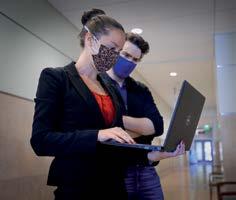
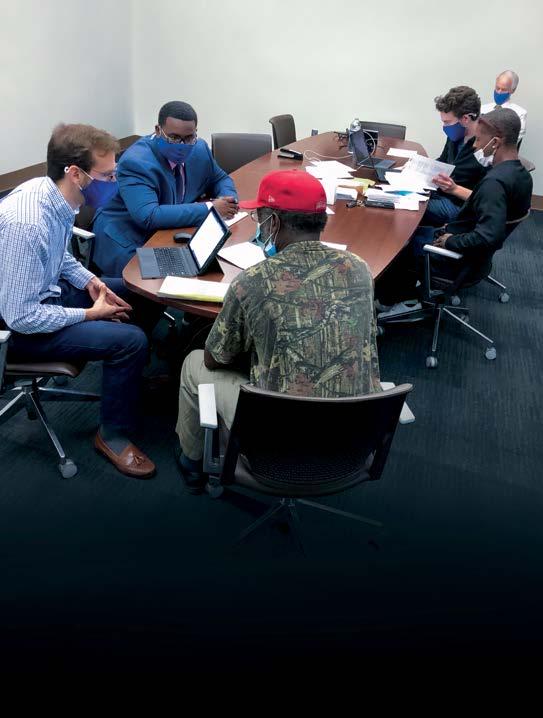
Forty law students helped about 120 tenant families who sought assistance at Duke’s Friday morning walk-in Eviction Advice Clinic at the Durham County Courthouse between mid-September and late January, when funding for the Durham Emergency Rental Assistance Program expired. They were supervised by Clinical Professors Charles Holton ’73 and Jesse McCoy, the director and supervising attorney, respectively, of the Civil Justice Clinic. Amanda Joos ’23 served as the clinic coordinator.
Finding ongoing high demand from tenants for advice on evictions since the expiration of the federal eviction moratorium, the Civil Justice Clinic team restarted the weekly courthouse pop-up clinic in late April in association with Legal Aid of North Carolina and the North Carolina Central University Law School’s Civil Litigation Clinic. d



During Reunion weekend in April, the Law Alumni Association and Dean Kerry Abrams honored the following members of the Duke Law community for their accomplishments, service, and dedication to the Law School. The Law Alumni Association Awards are among the highest honors given by Duke Law School.
a.
sebastián guerrero ’99
Founder

y oung a lu M ni a ward
o utstanding v olunteer s ervi C e a ward
serena agaba rwejuna ’13 Partner, White & Case Washington, D.C.

lila hope ’02 Partner, Cooley Palo Alto, Calif.
 J. Michelle Childs ’16 Judge, United States District Court for the District of South Carolina Columbia, S.C.
Charles s . Murphy a ward for aC hieve M ent in Civi C s ervi C e
david f. levi Levi Family Research Professor of Law and Judicial Studies Director, Bolch Judicial Institute
Kenneth pye award for exCellenCe in eduCation
Marc e. elias ’93
Founder, Elias Law Group and Democracy Docket Washington, D.C.
Charles s . r hyne a ward for p rofessional aC hieve M ent
and partner, Guerrero Garces Founder, Ganémosle a la Calle Santiago, Chile
i nternational a lu M ni a ward
J. Michelle Childs ’16 Judge, United States District Court for the District of South Carolina Columbia, S.C.
Charles s . Murphy a ward for aC hieve M ent in Civi C s ervi C e
david f. levi Levi Family Research Professor of Law and Judicial Studies Director, Bolch Judicial Institute
Kenneth pye award for exCellenCe in eduCation
Marc e. elias ’93
Founder, Elias Law Group and Democracy Docket Washington, D.C.
Charles s . r hyne a ward for p rofessional aC hieve M ent
and partner, Guerrero Garces Founder, Ganémosle a la Calle Santiago, Chile
i nternational a lu M ni a ward
